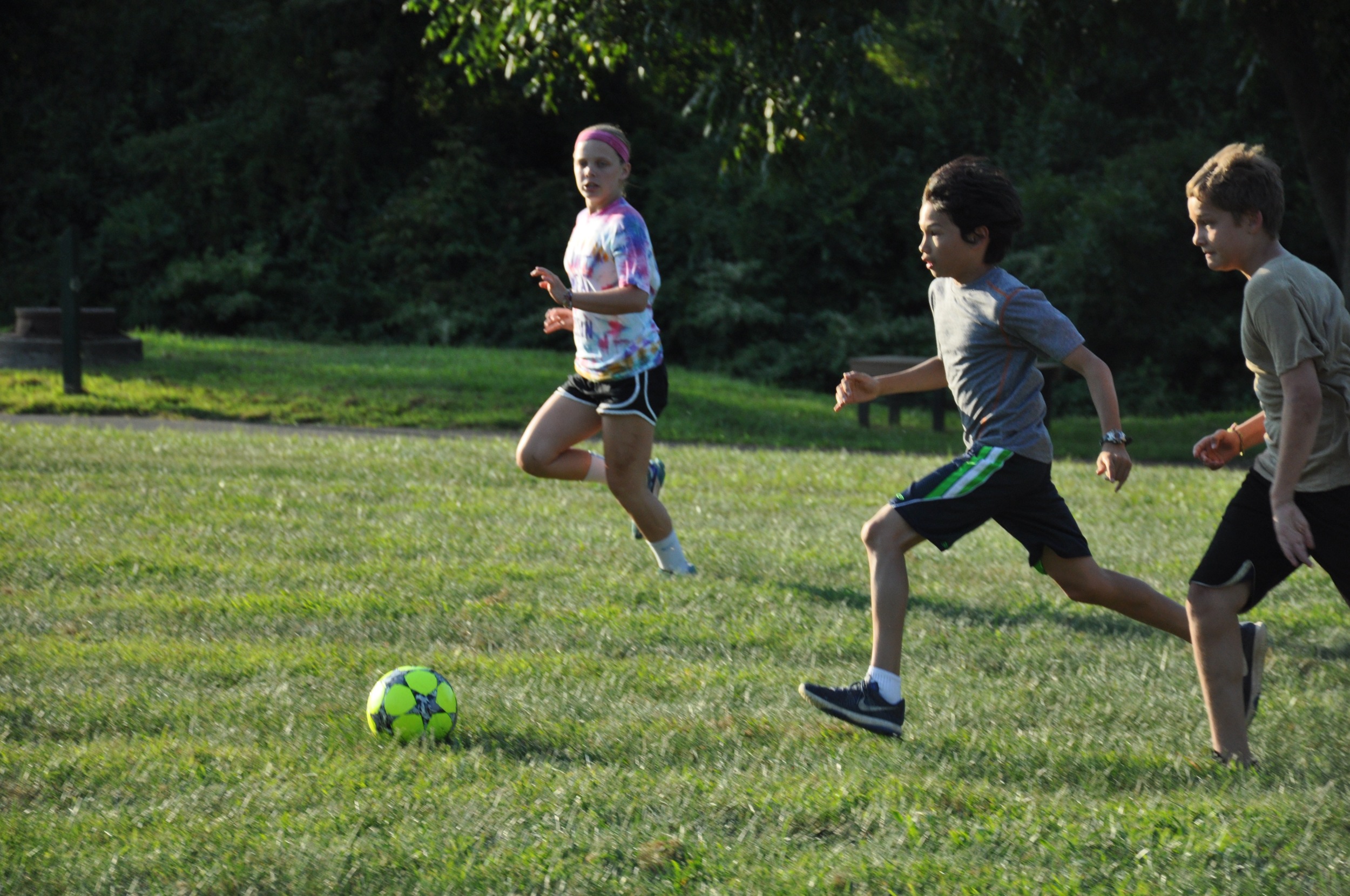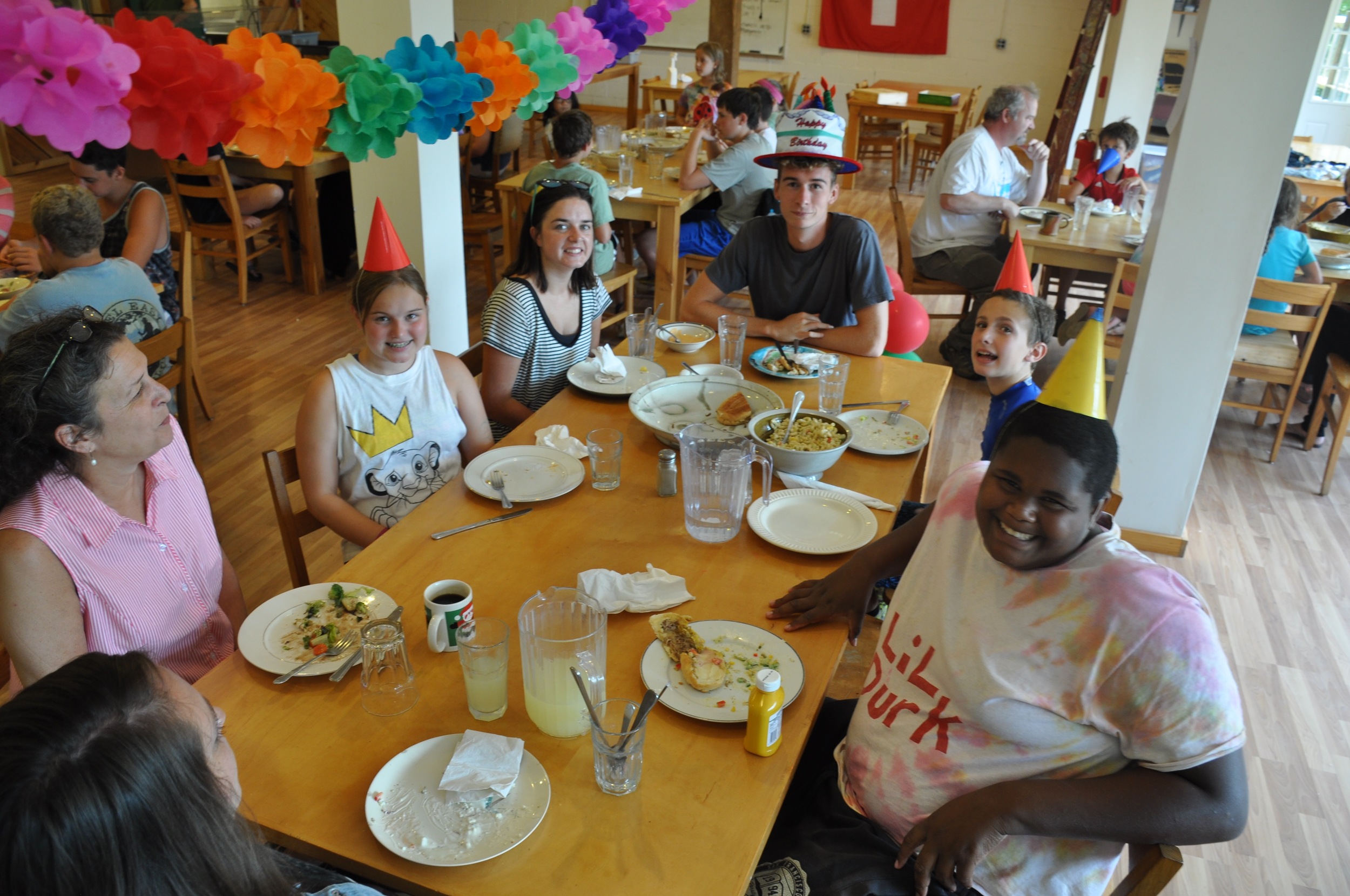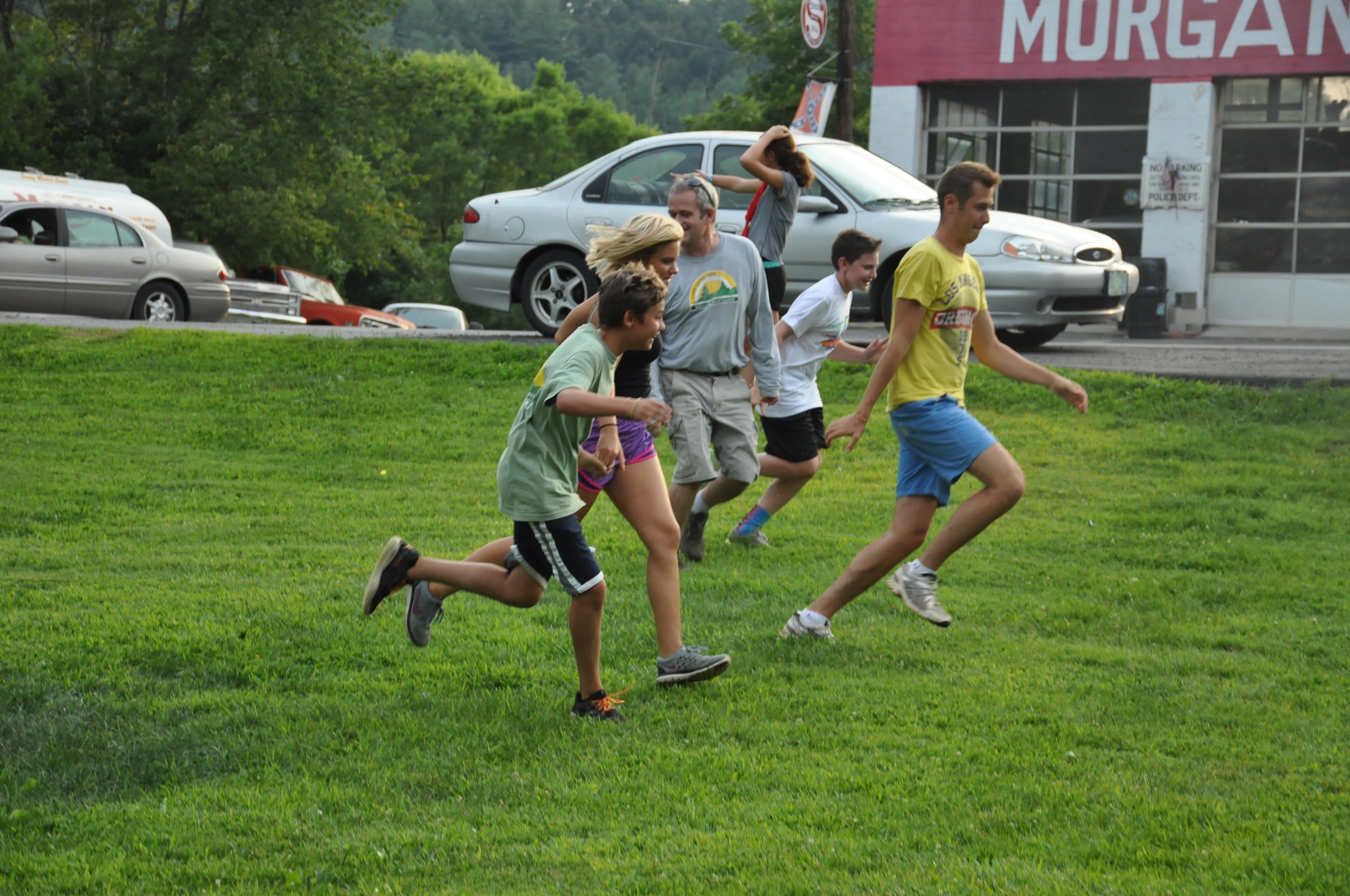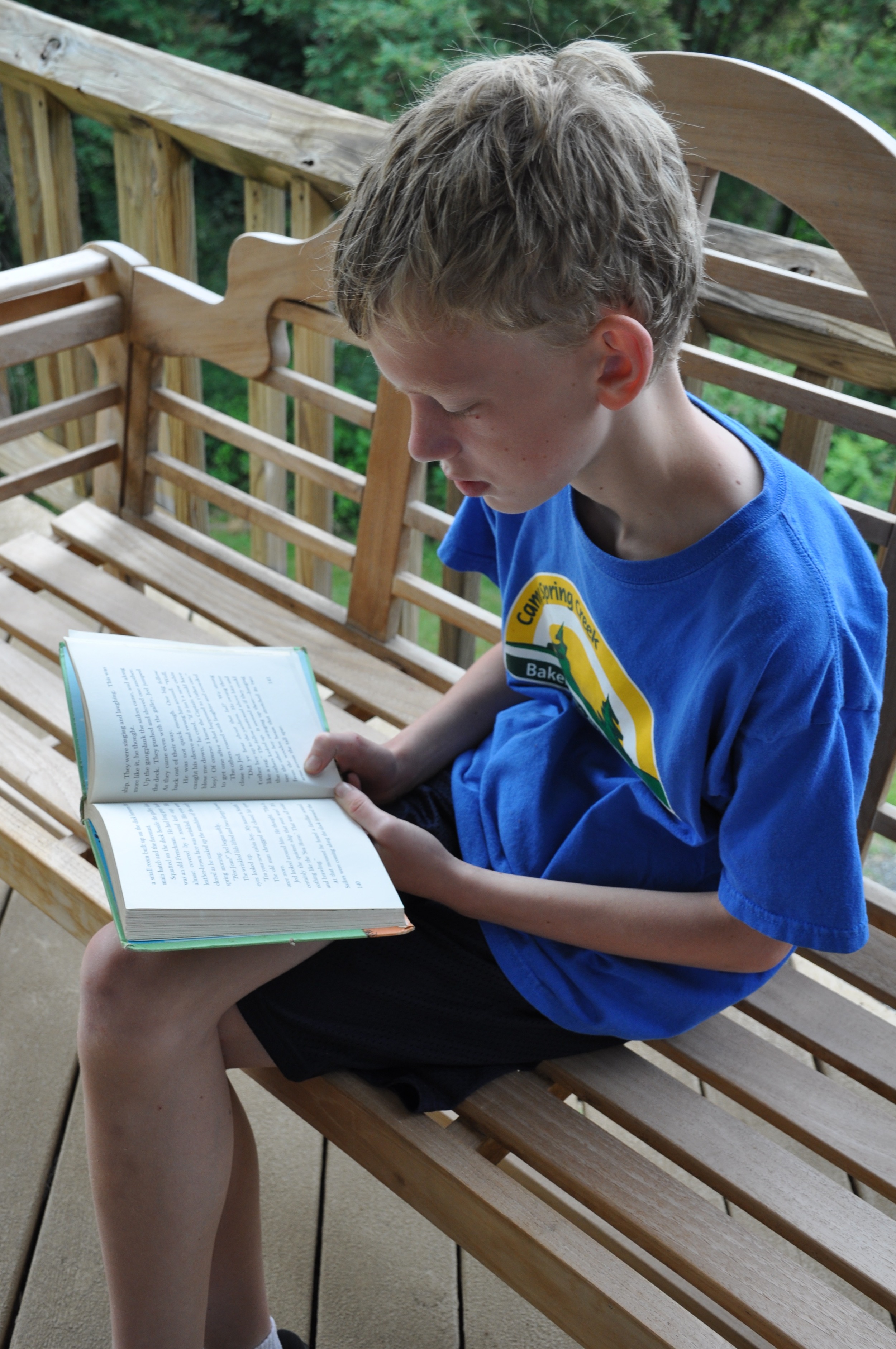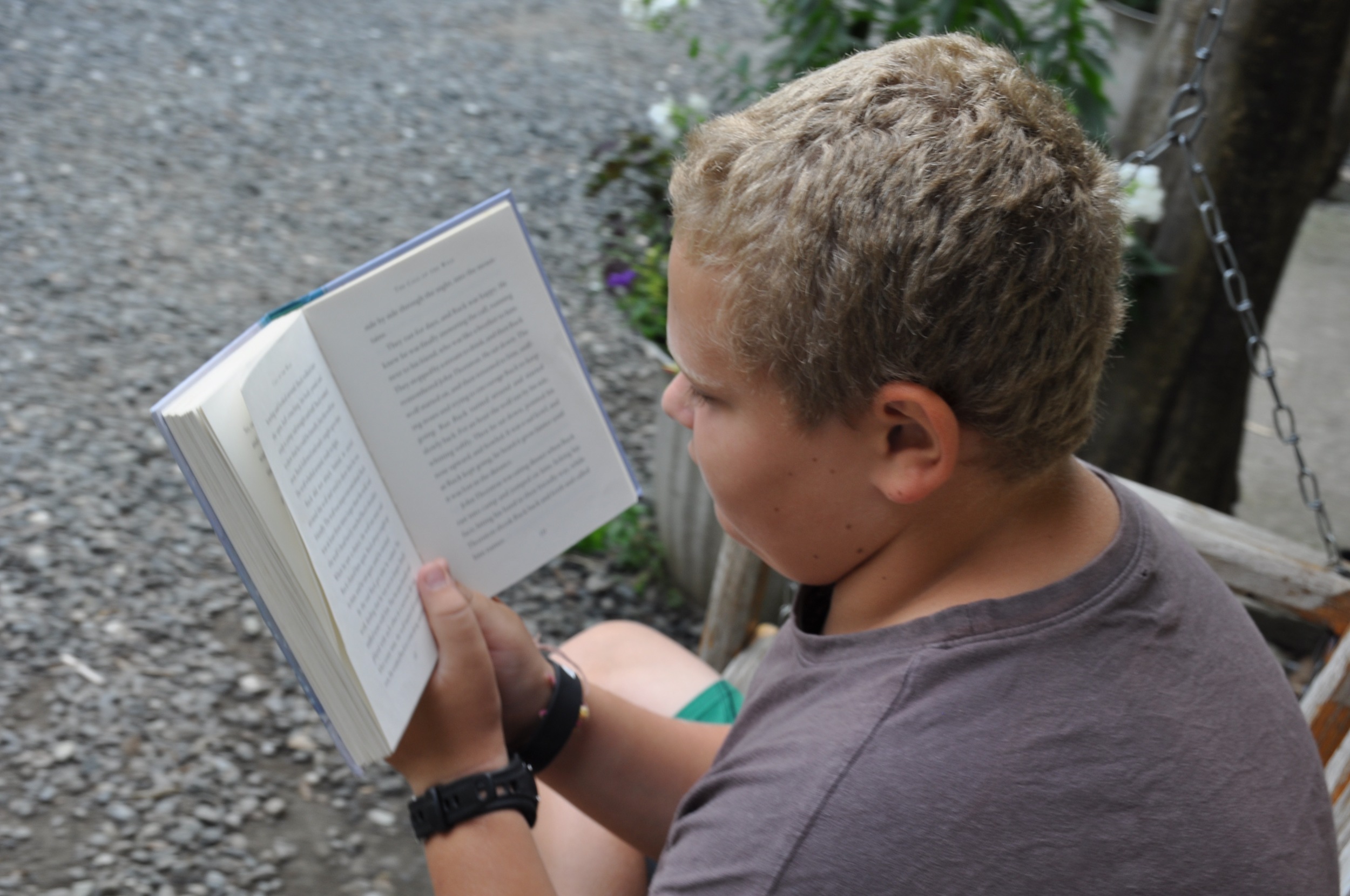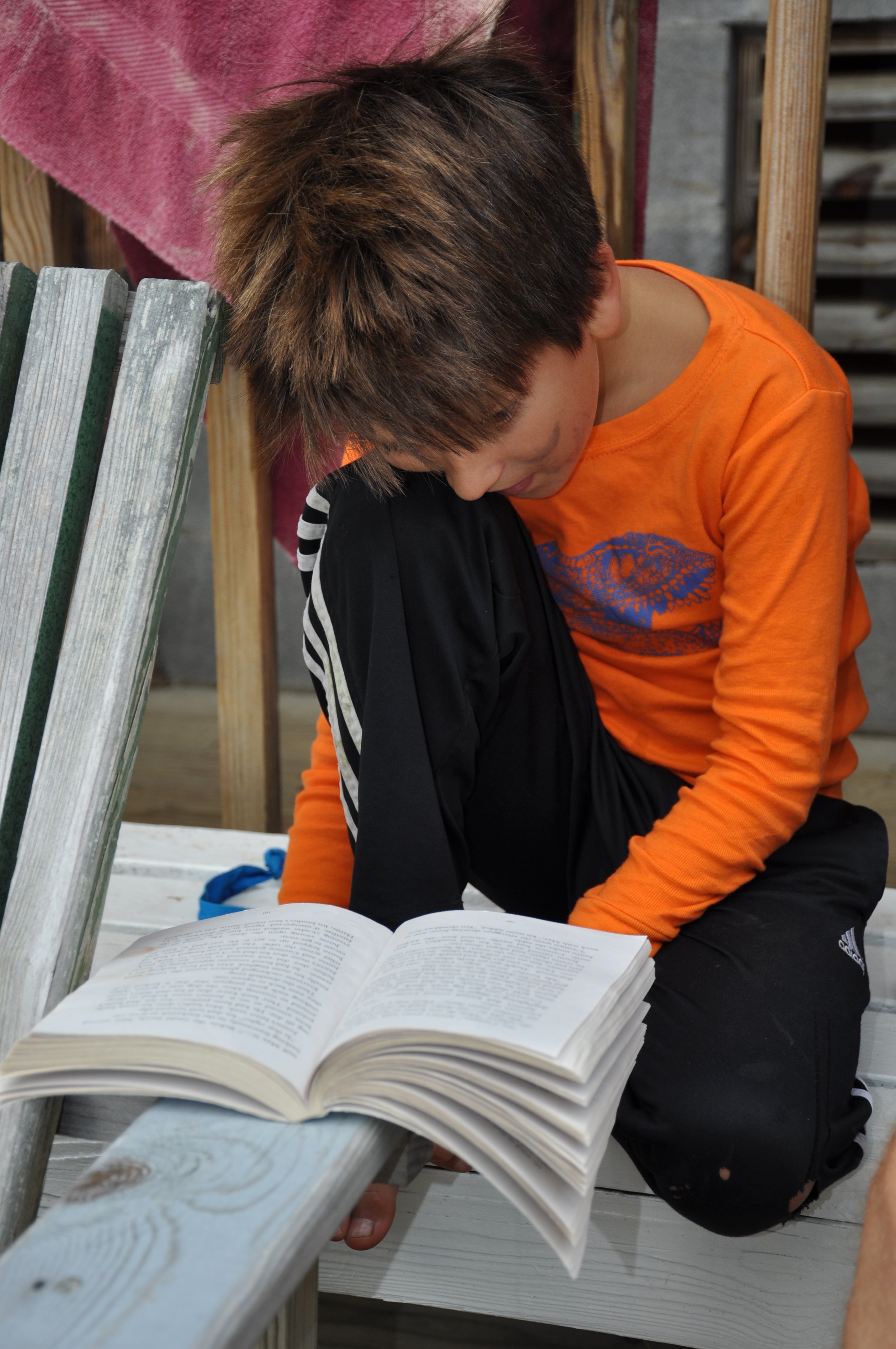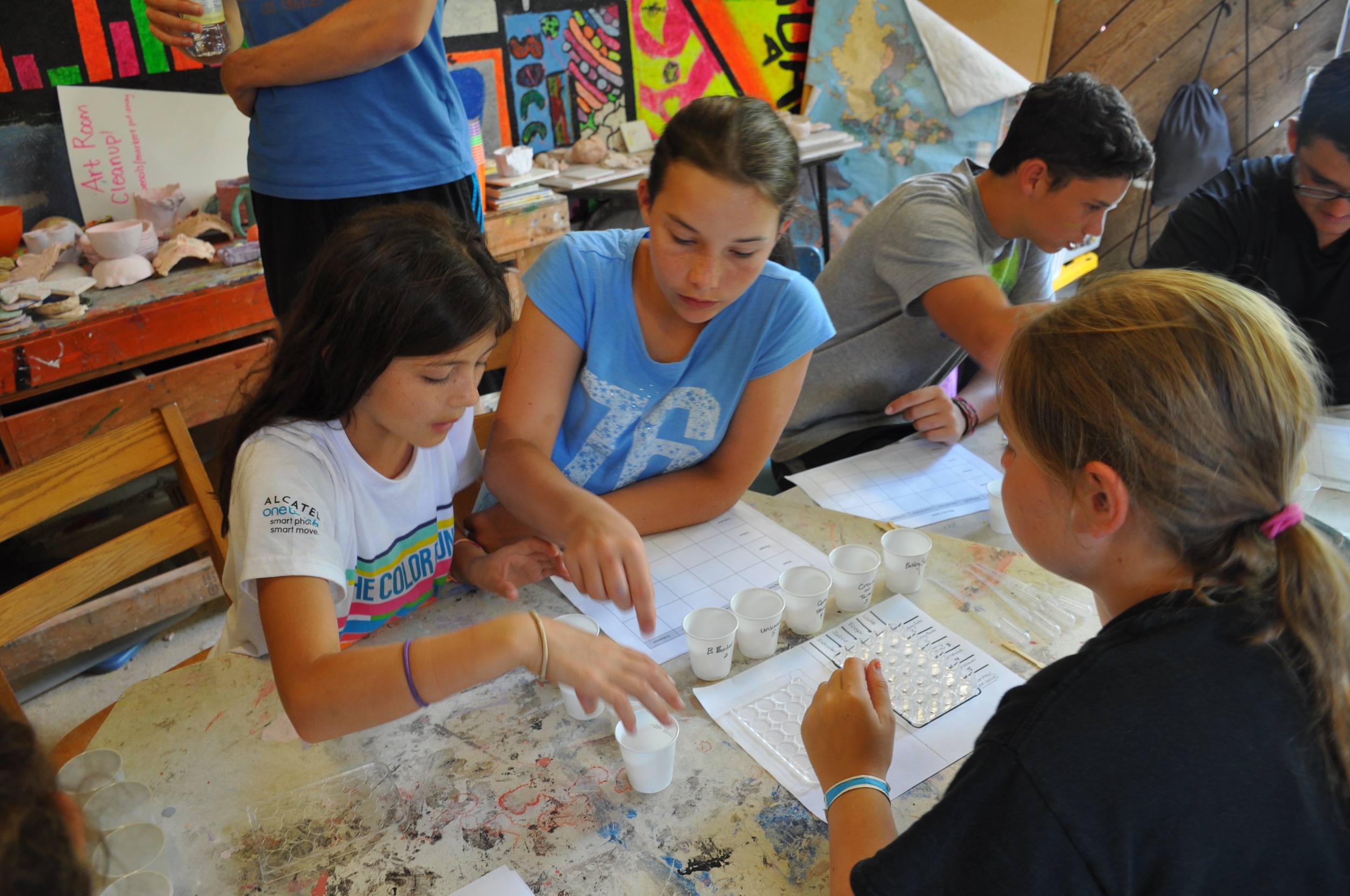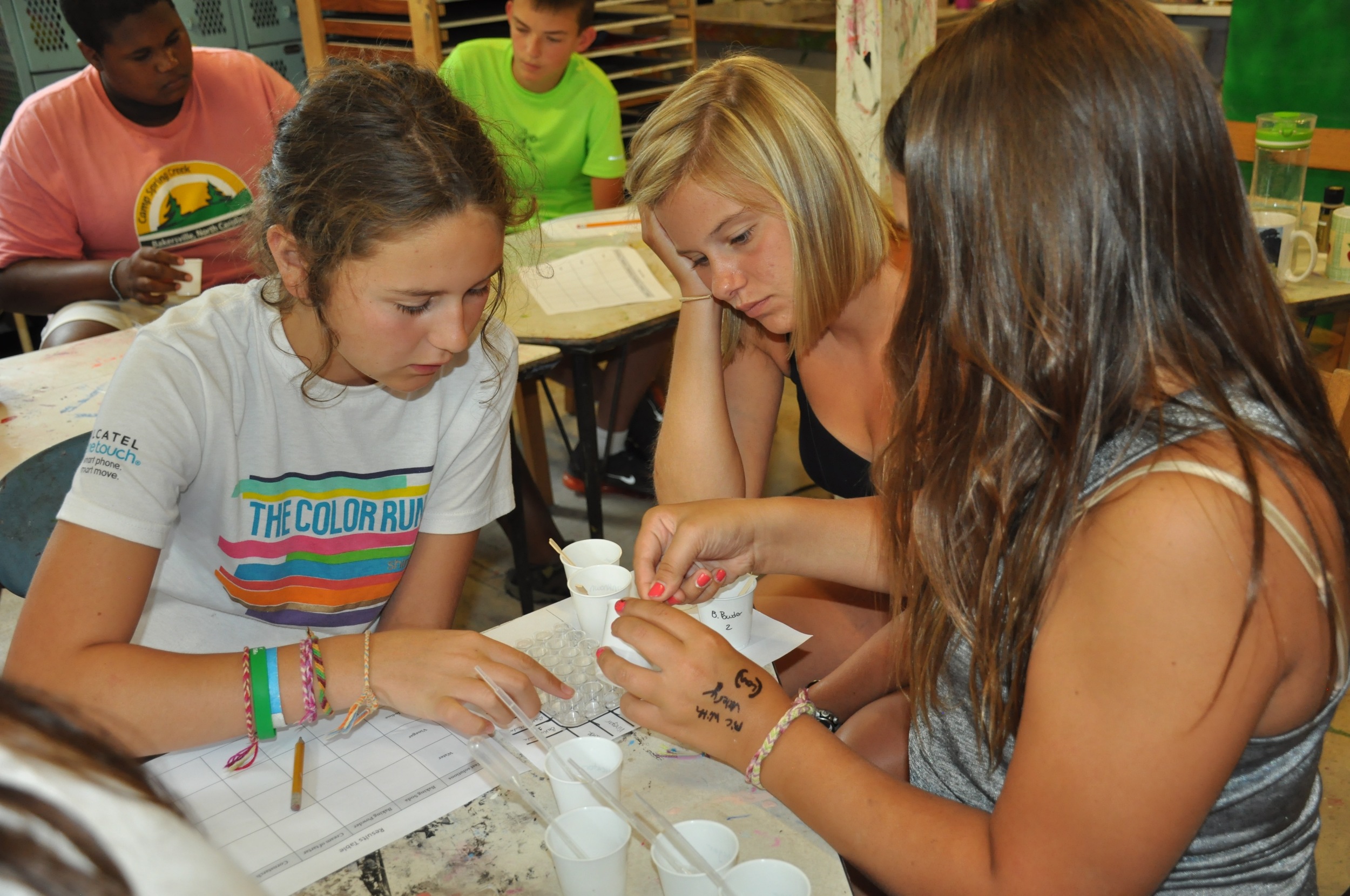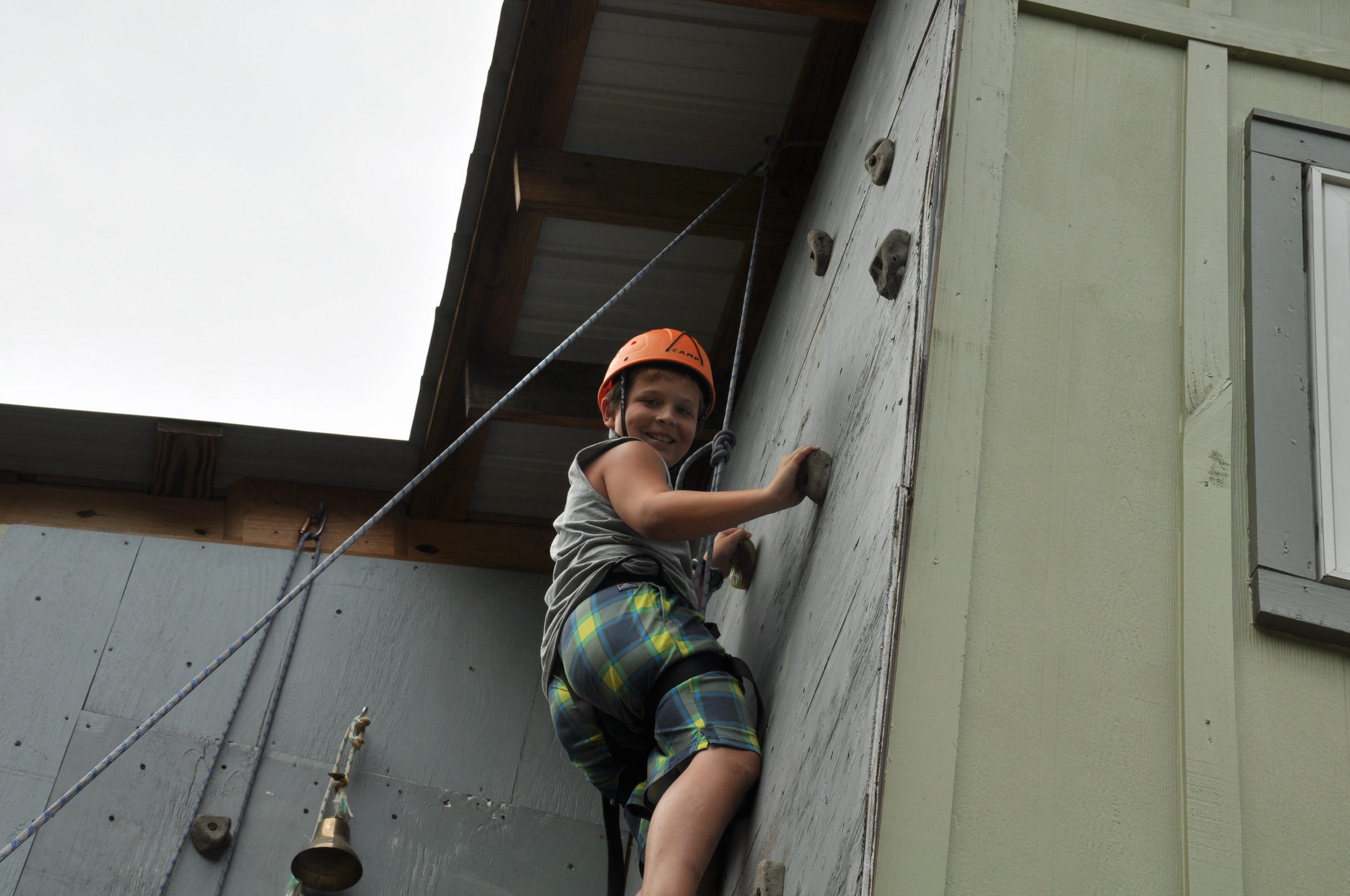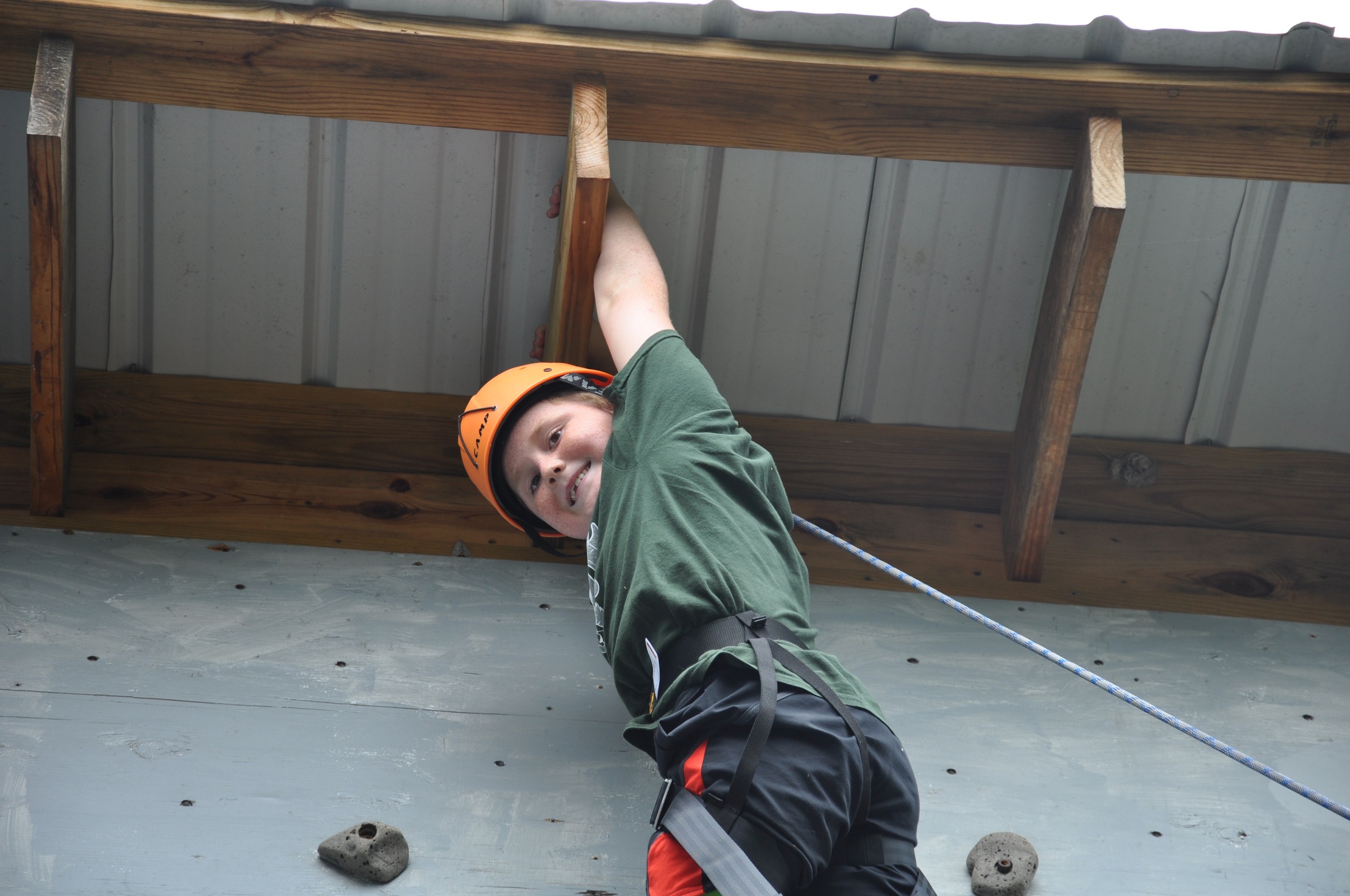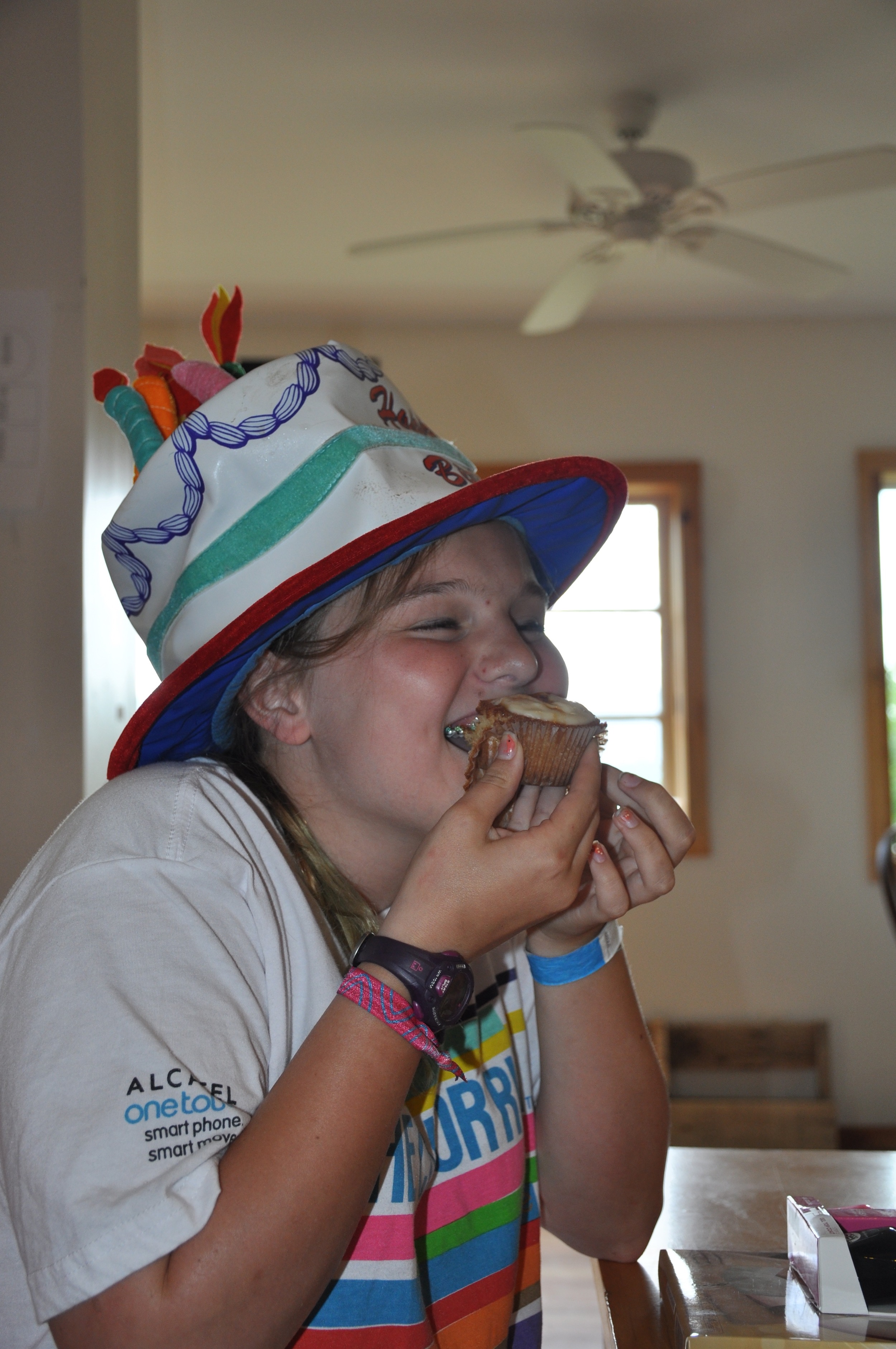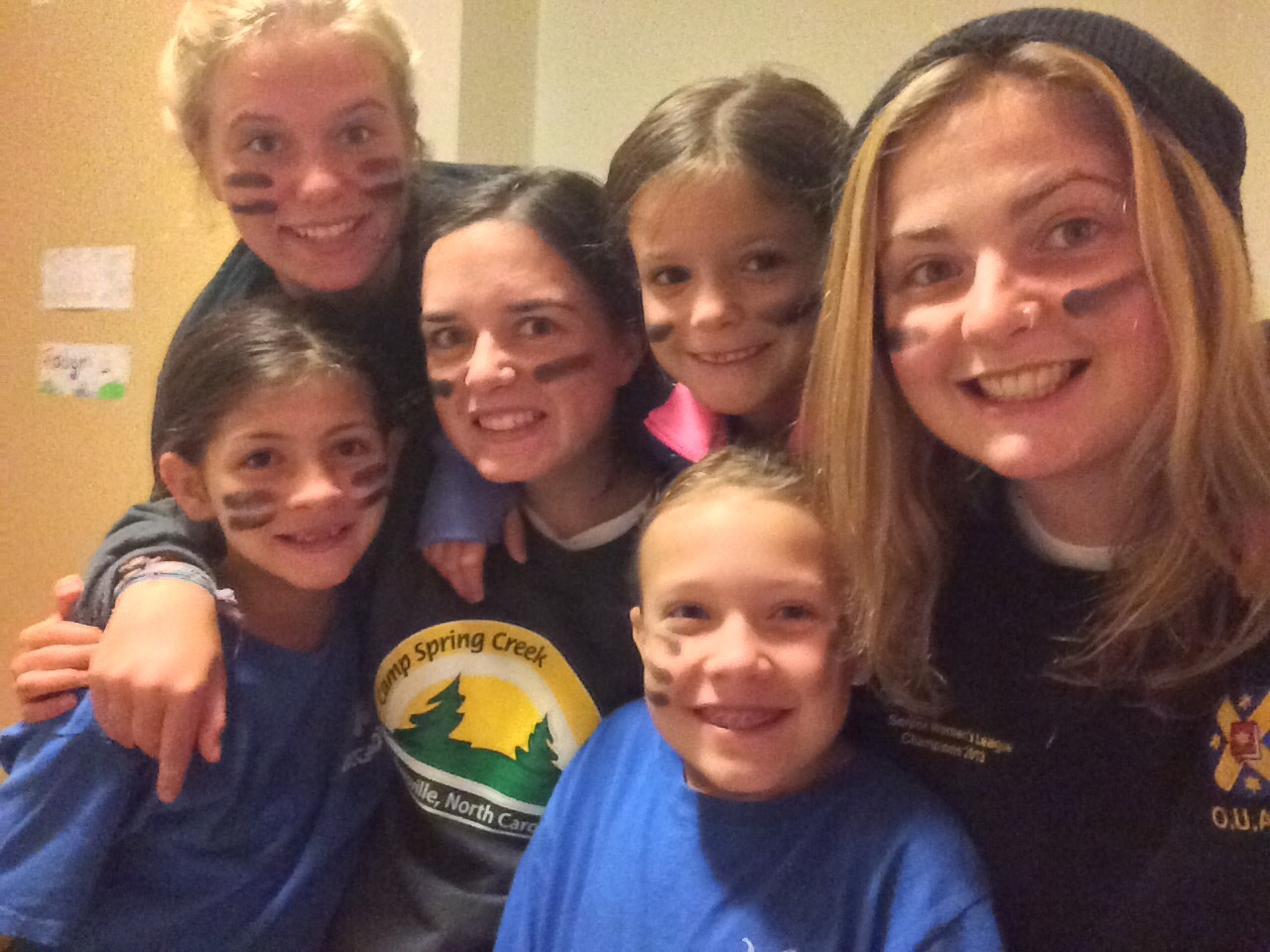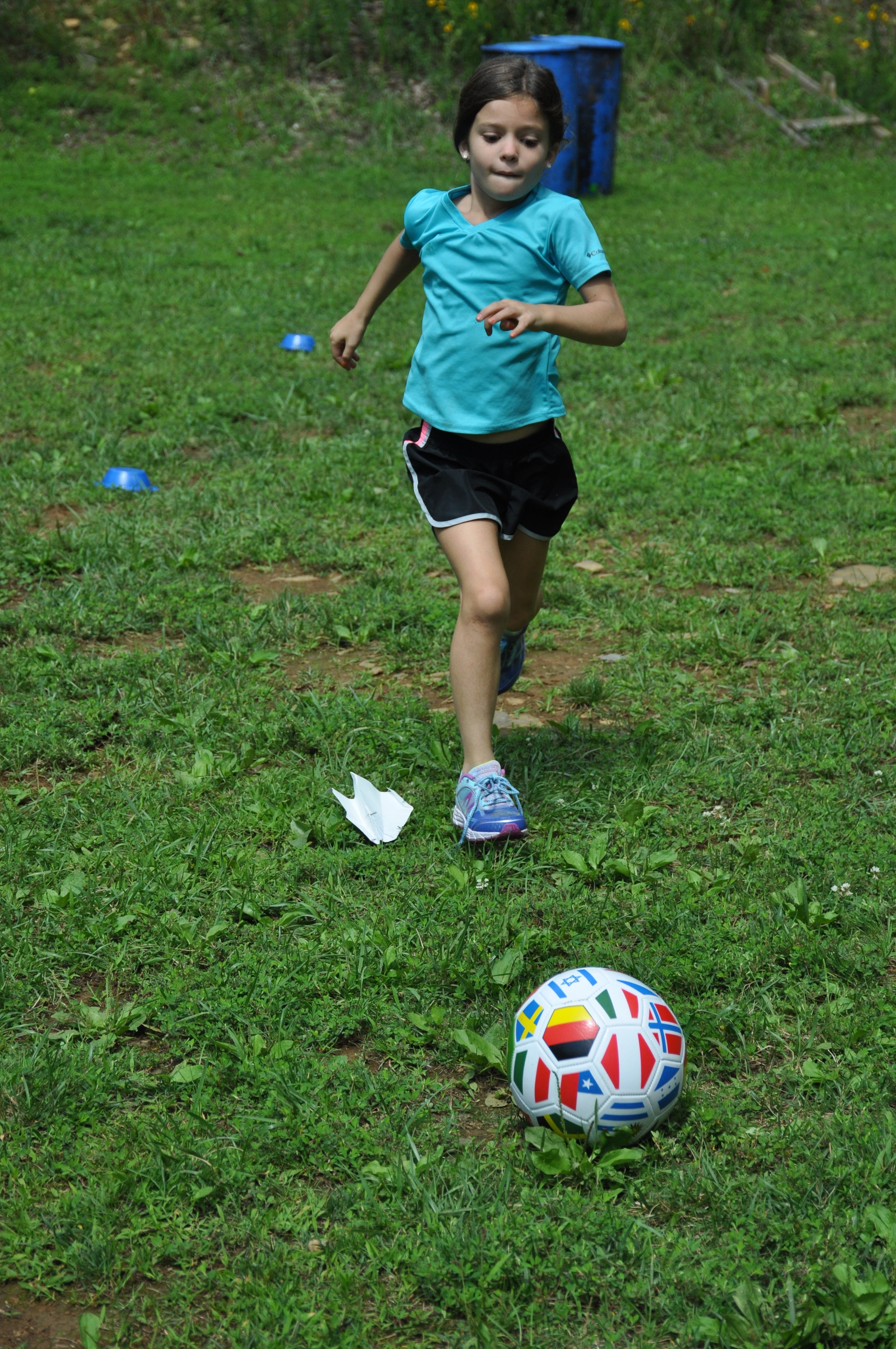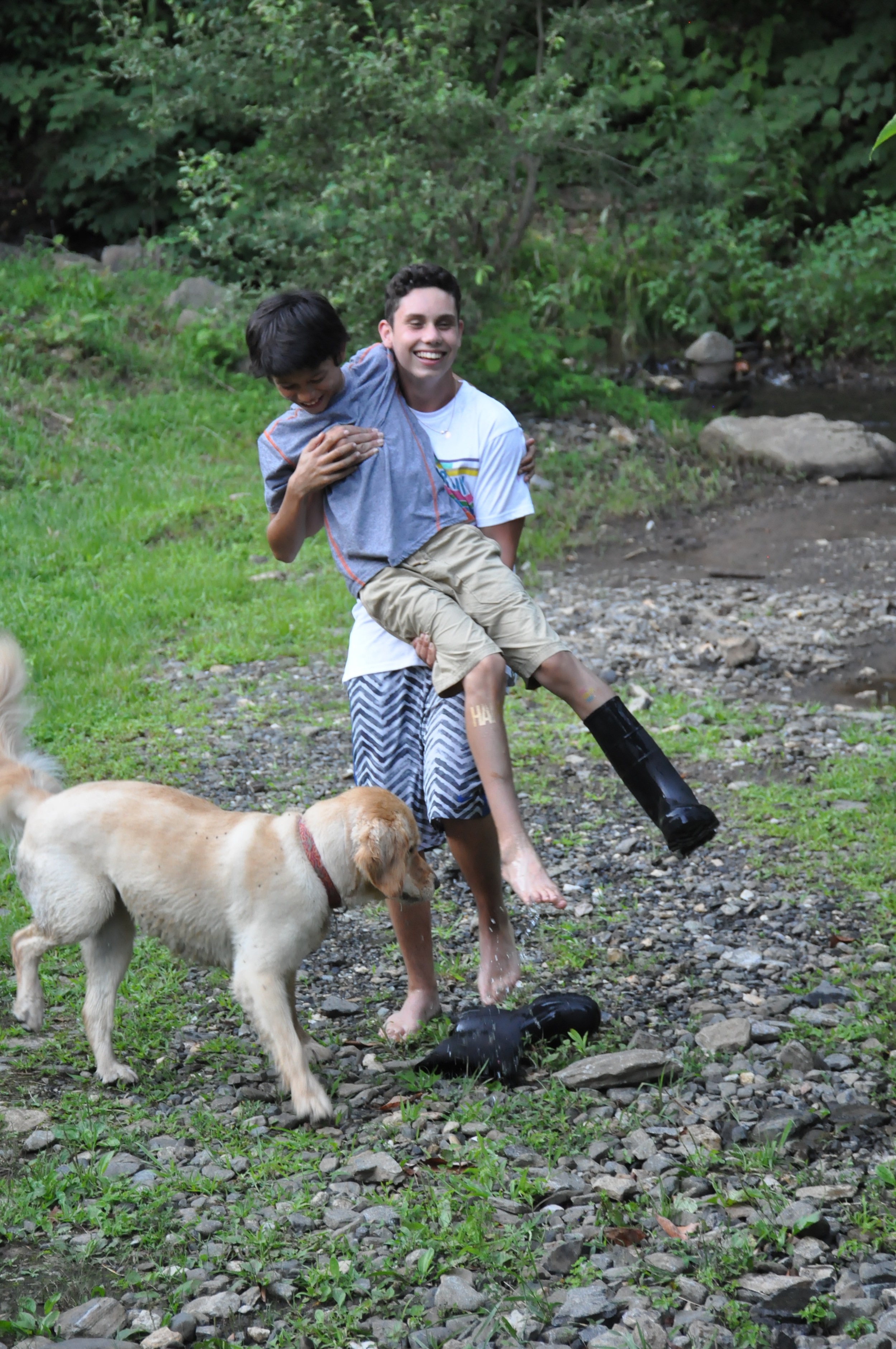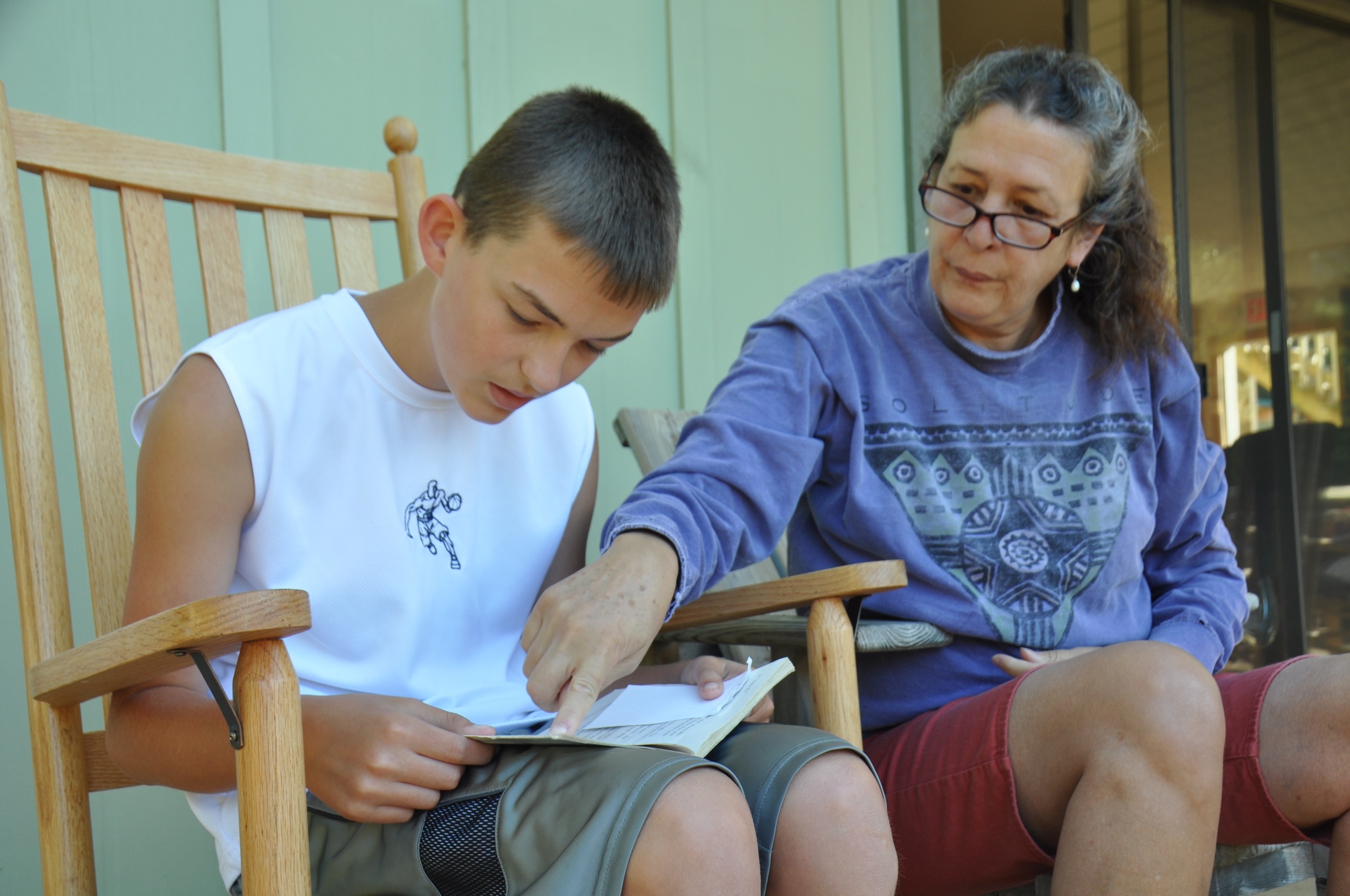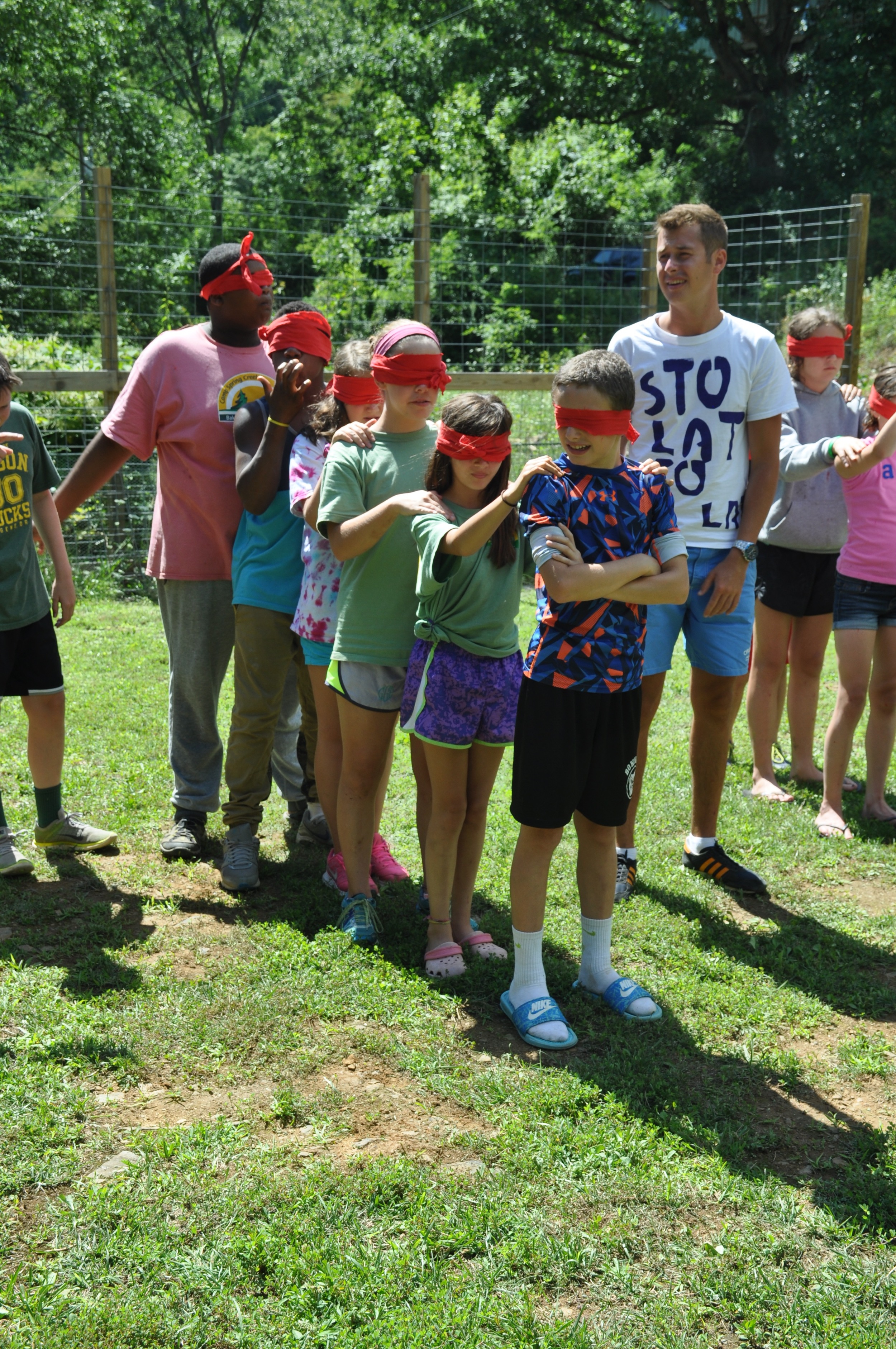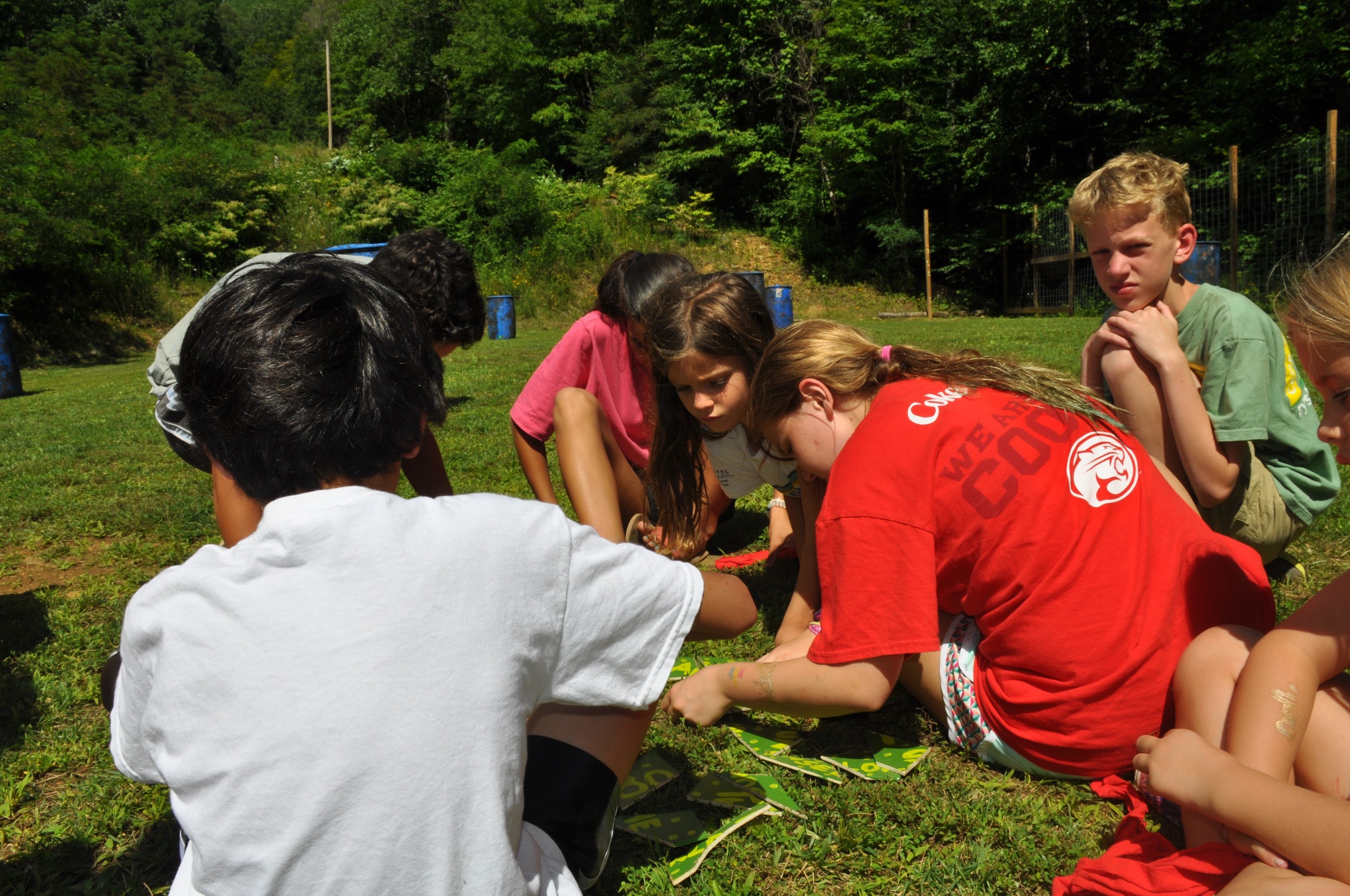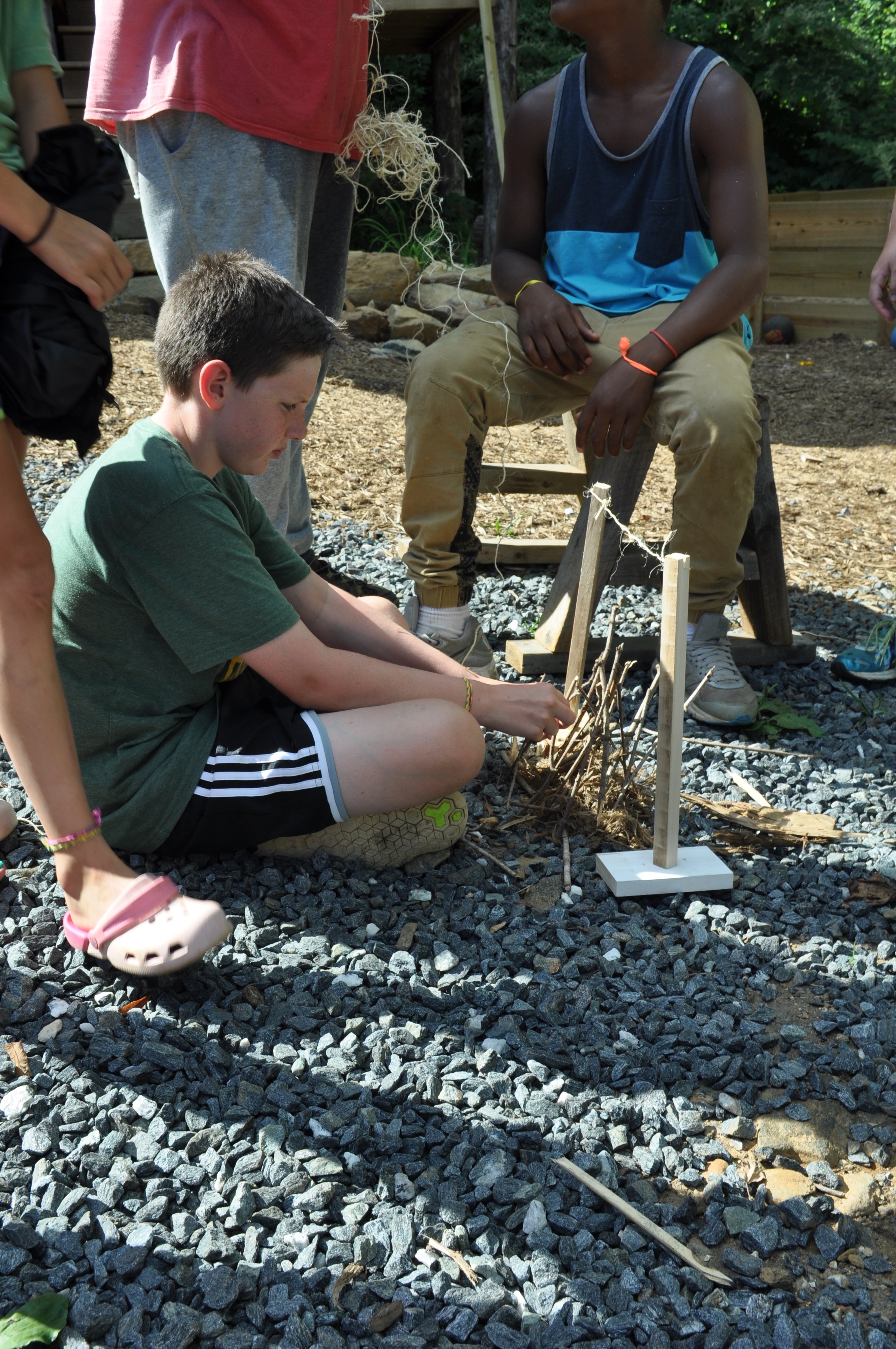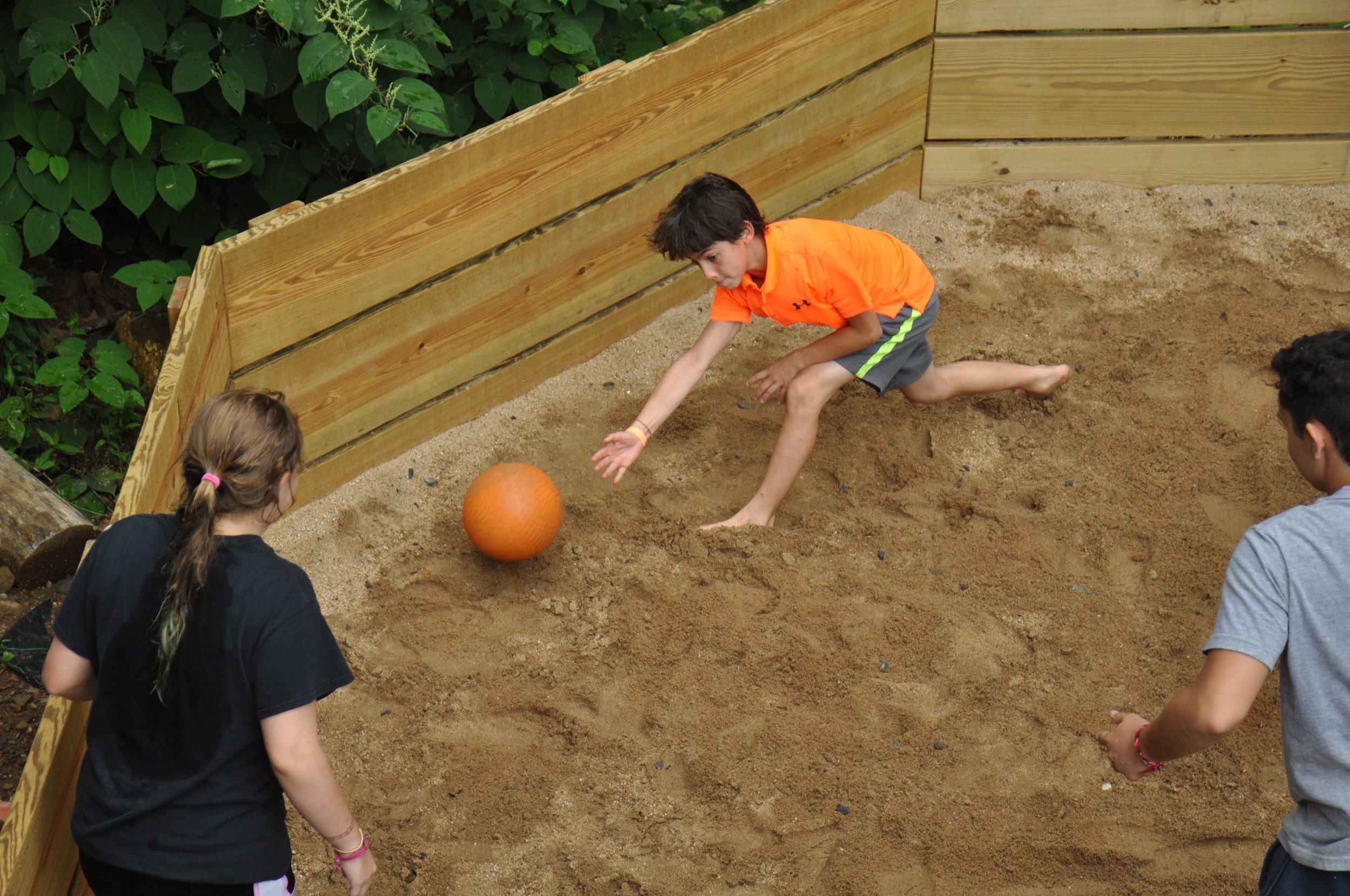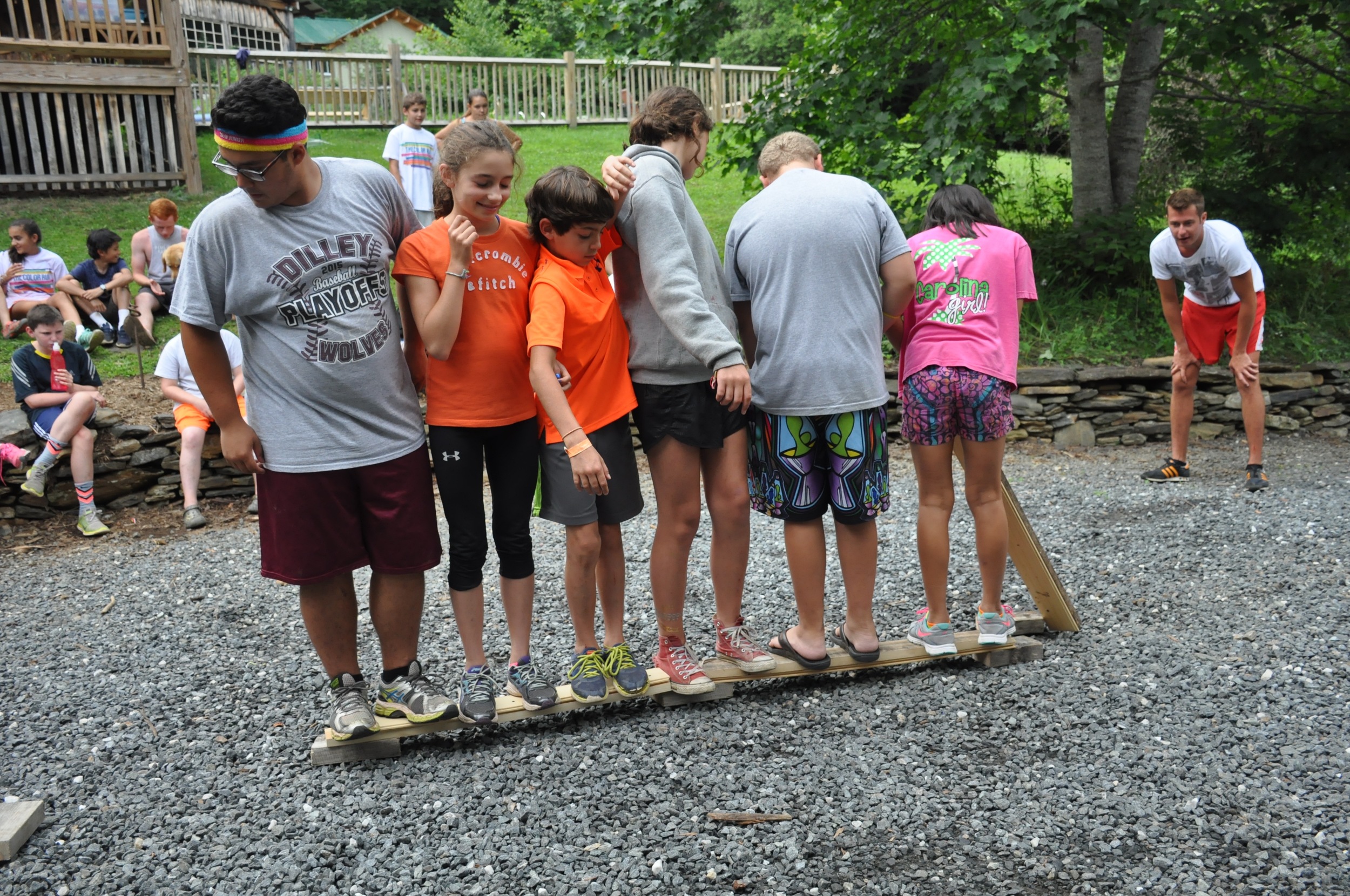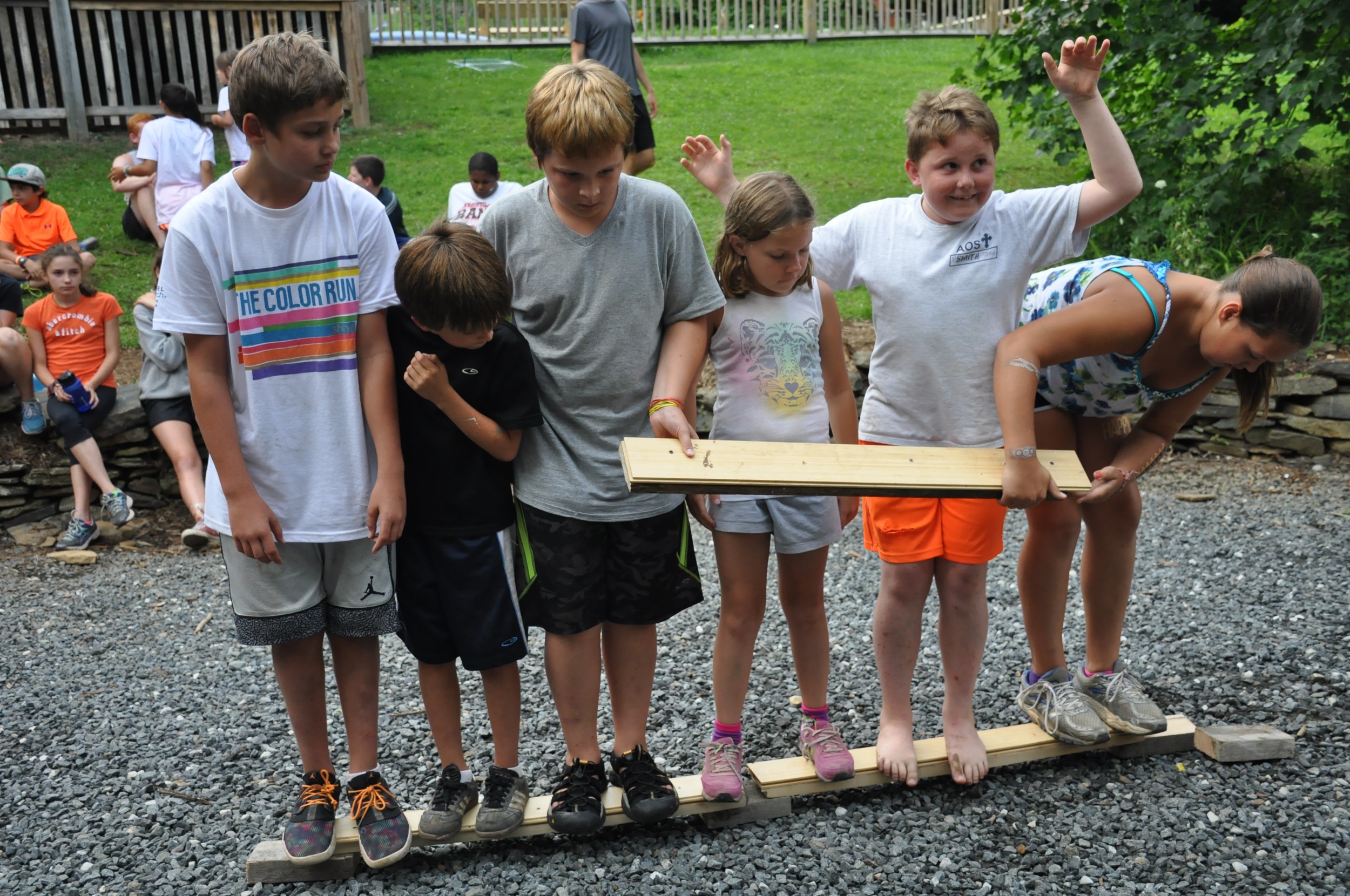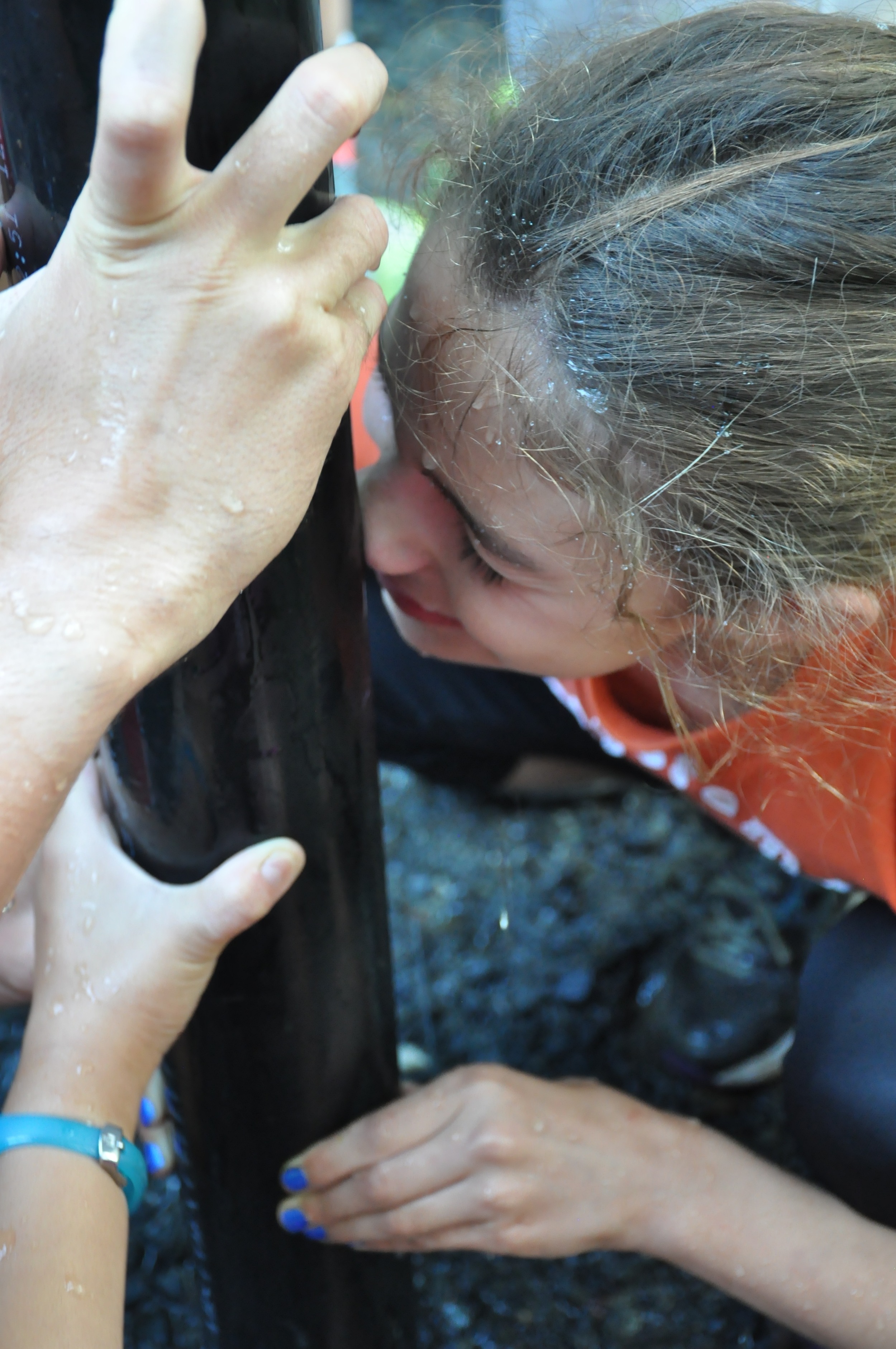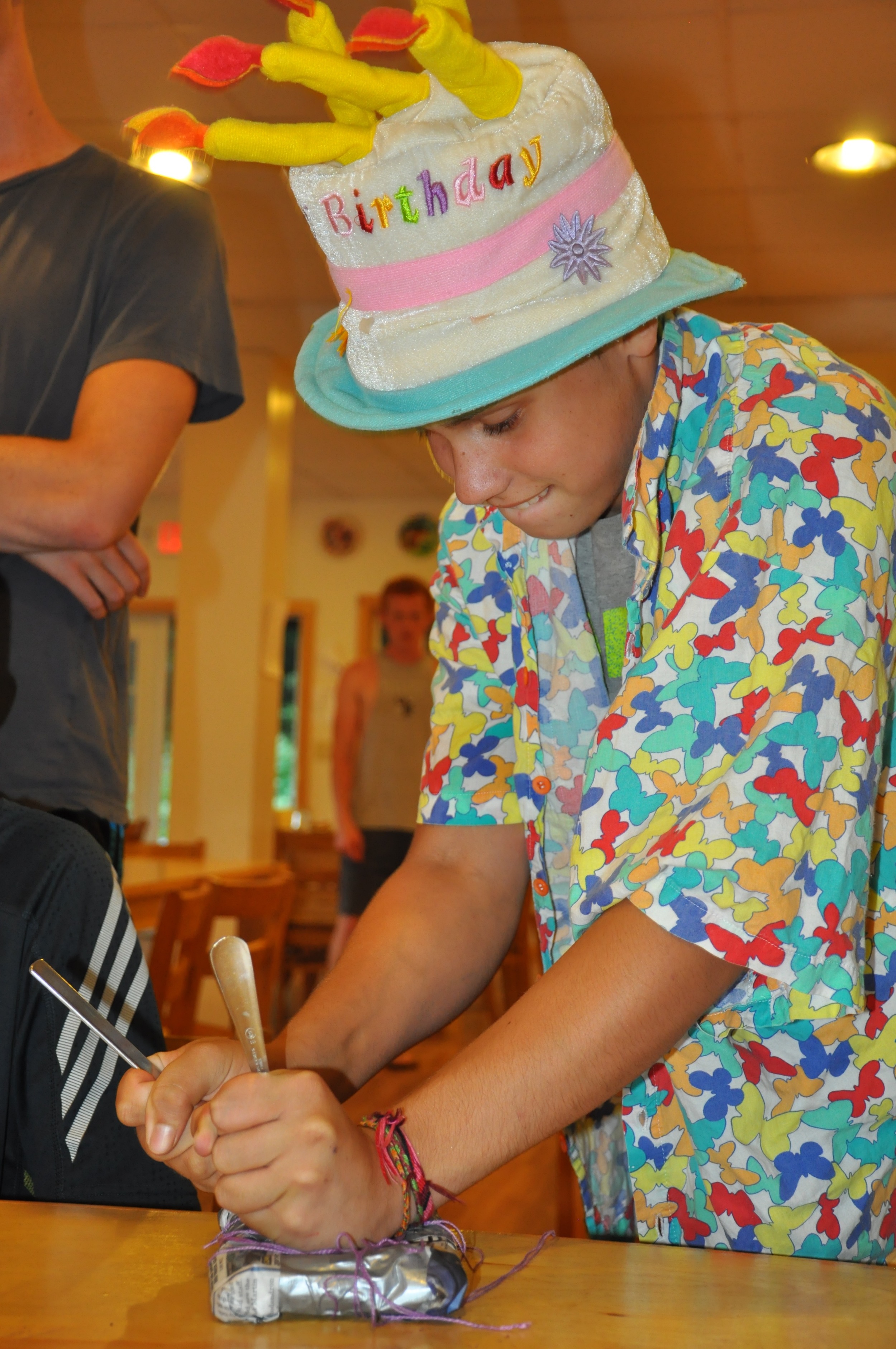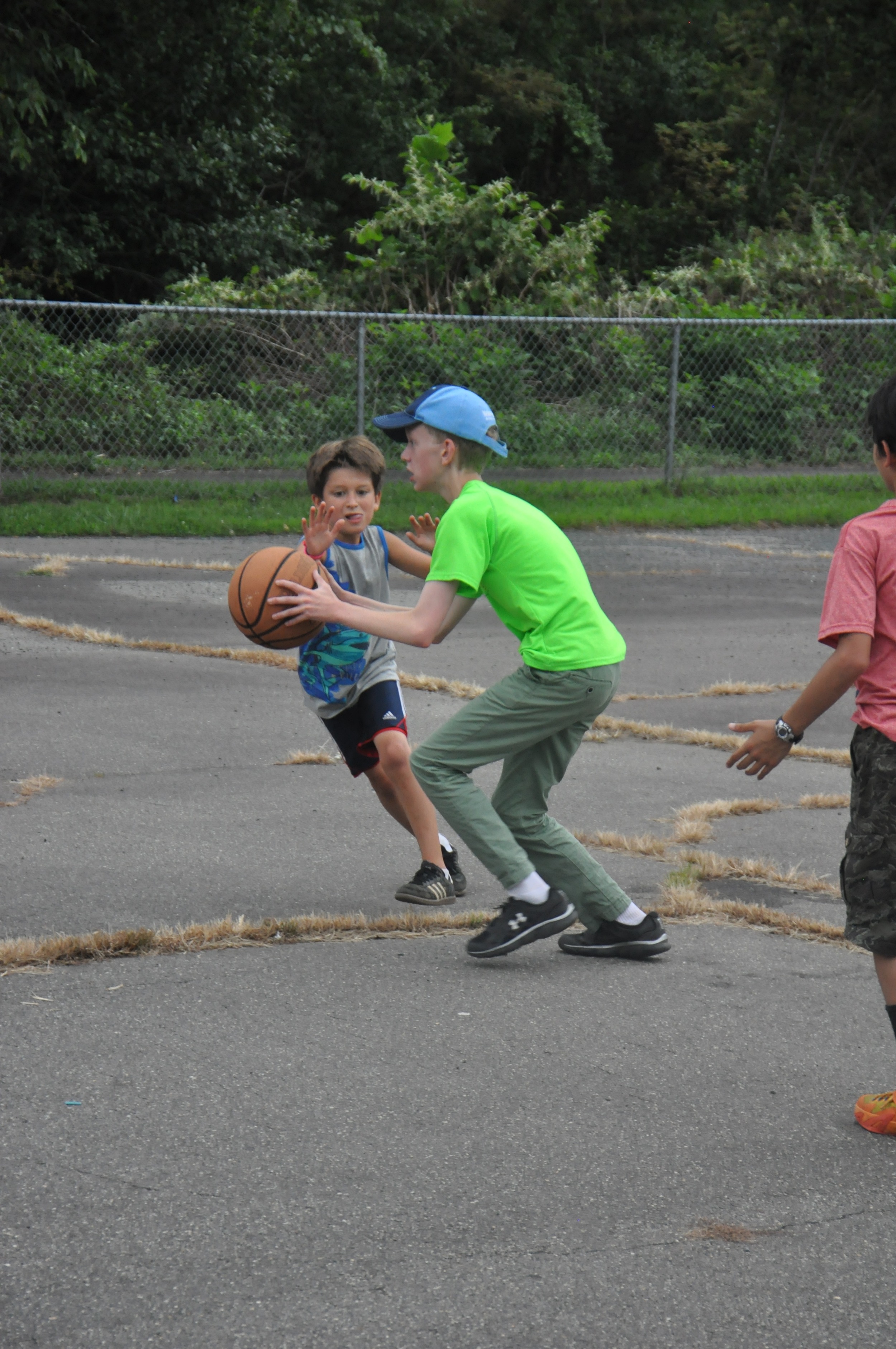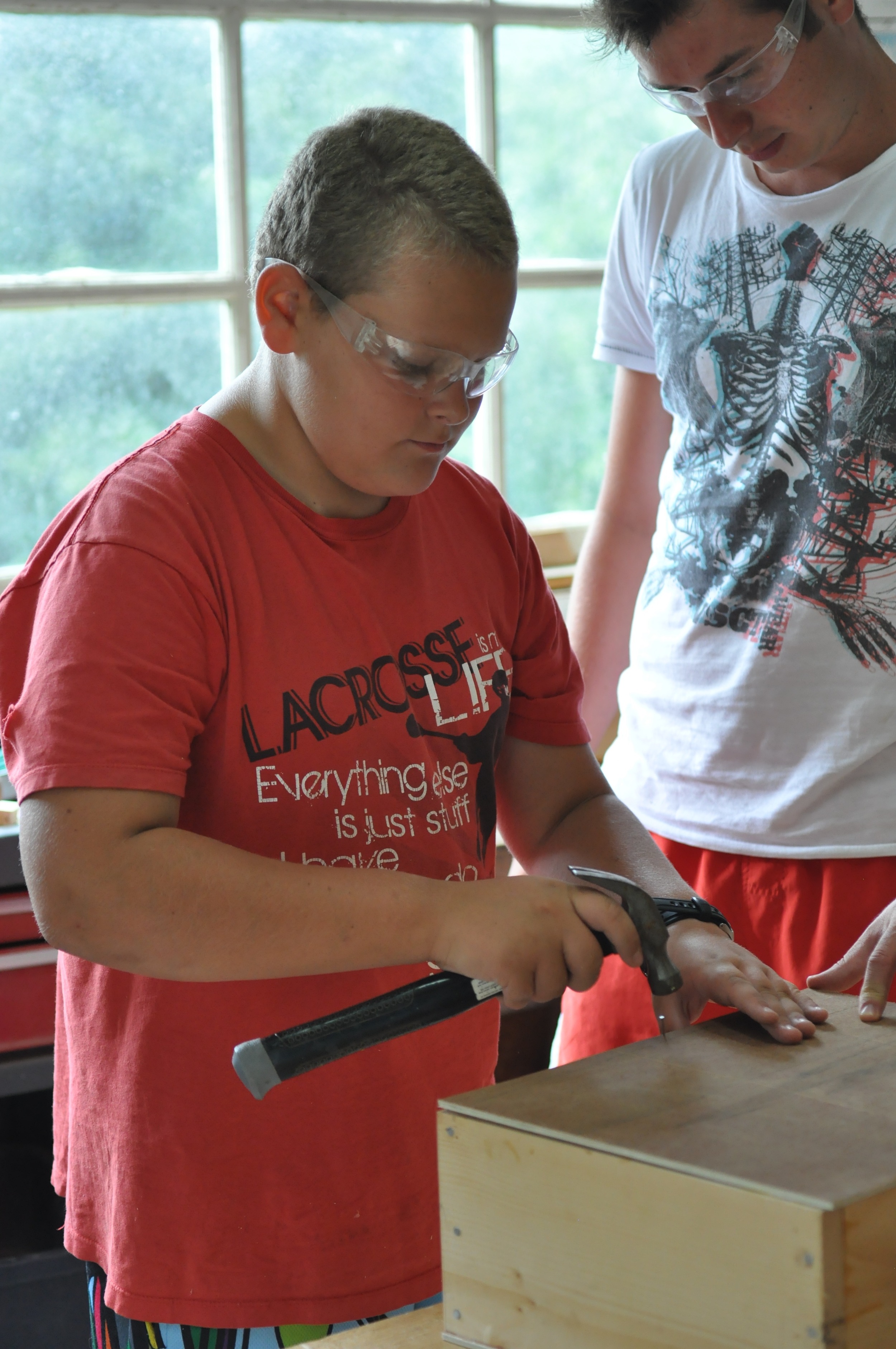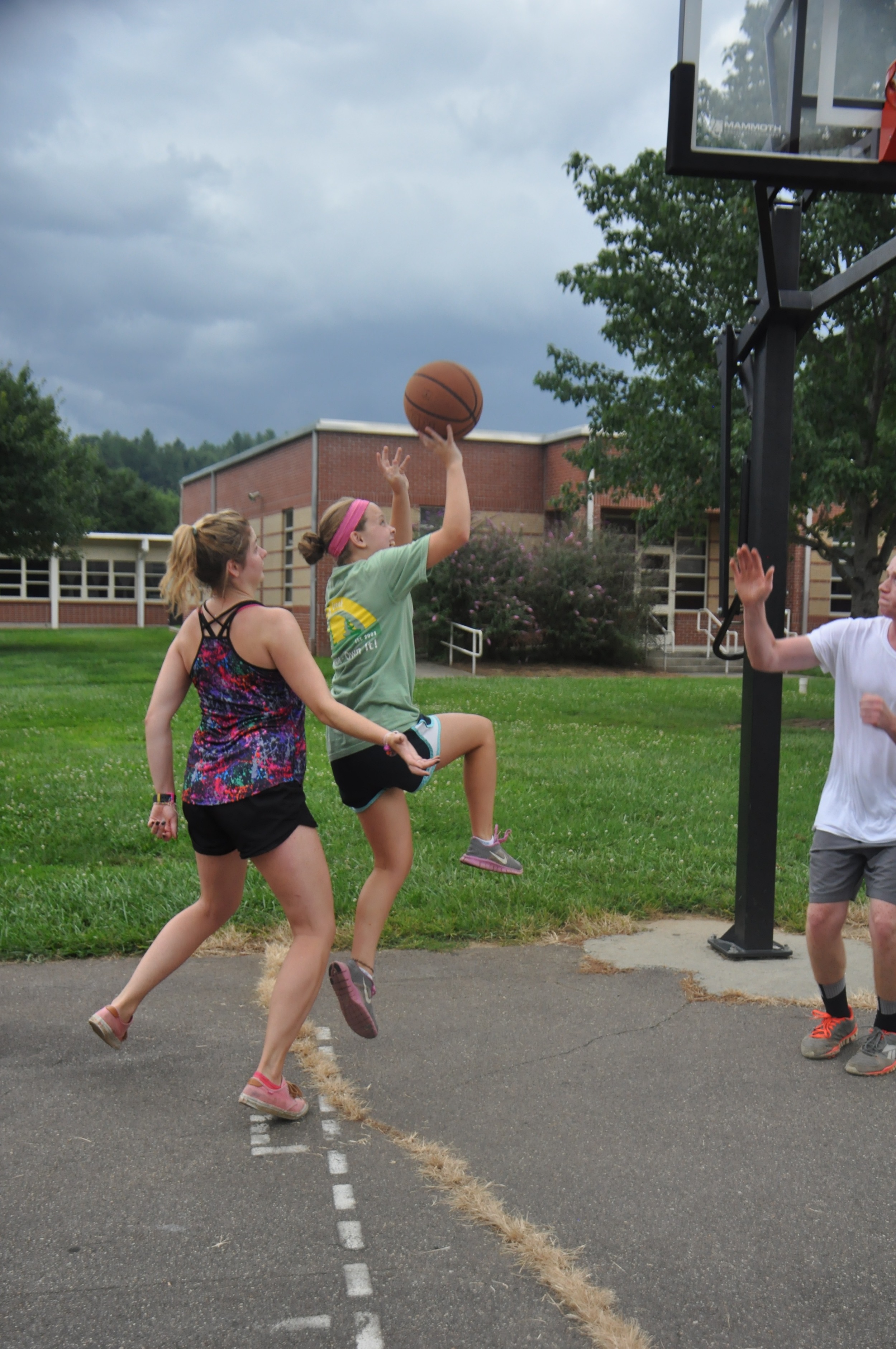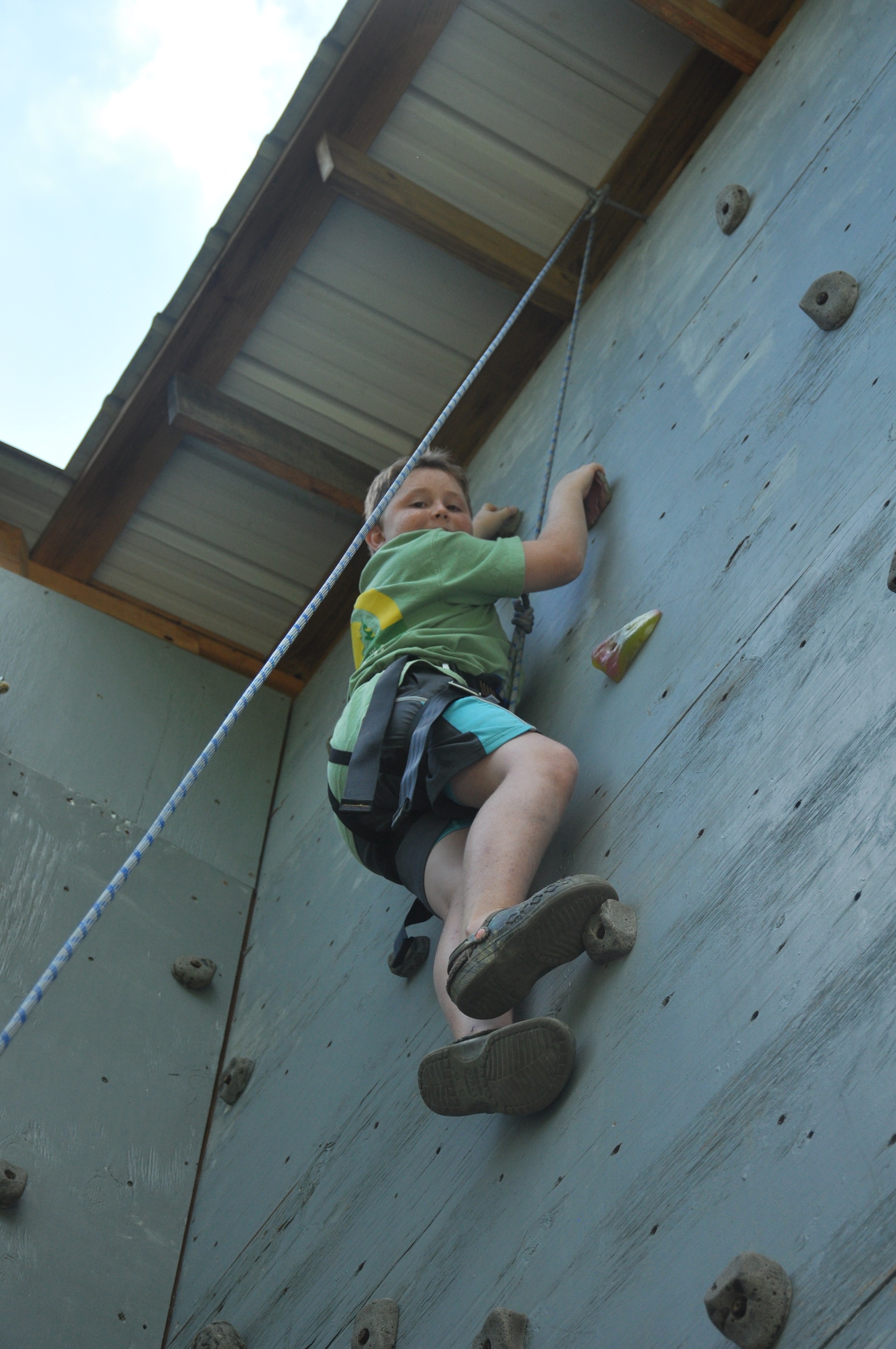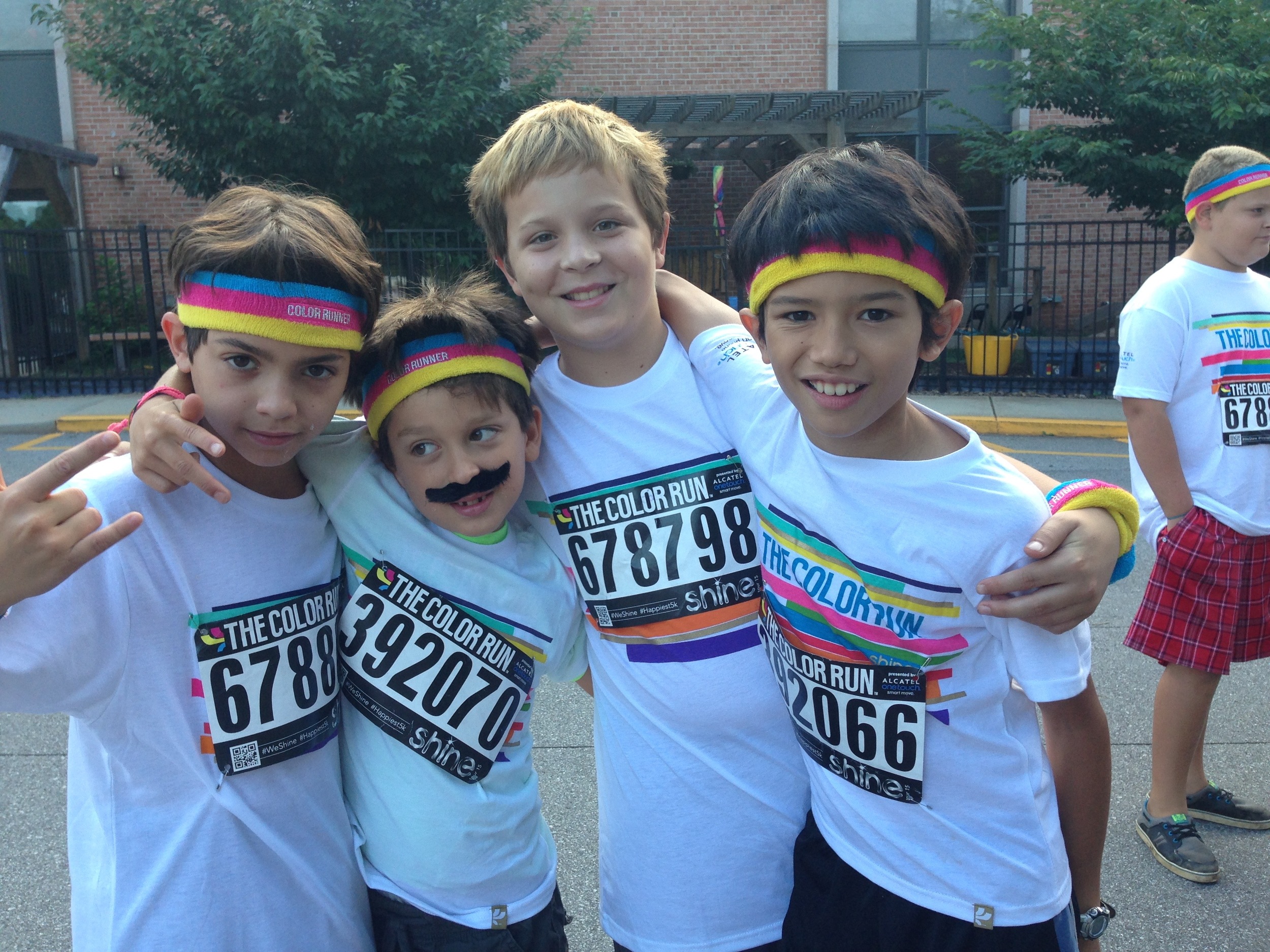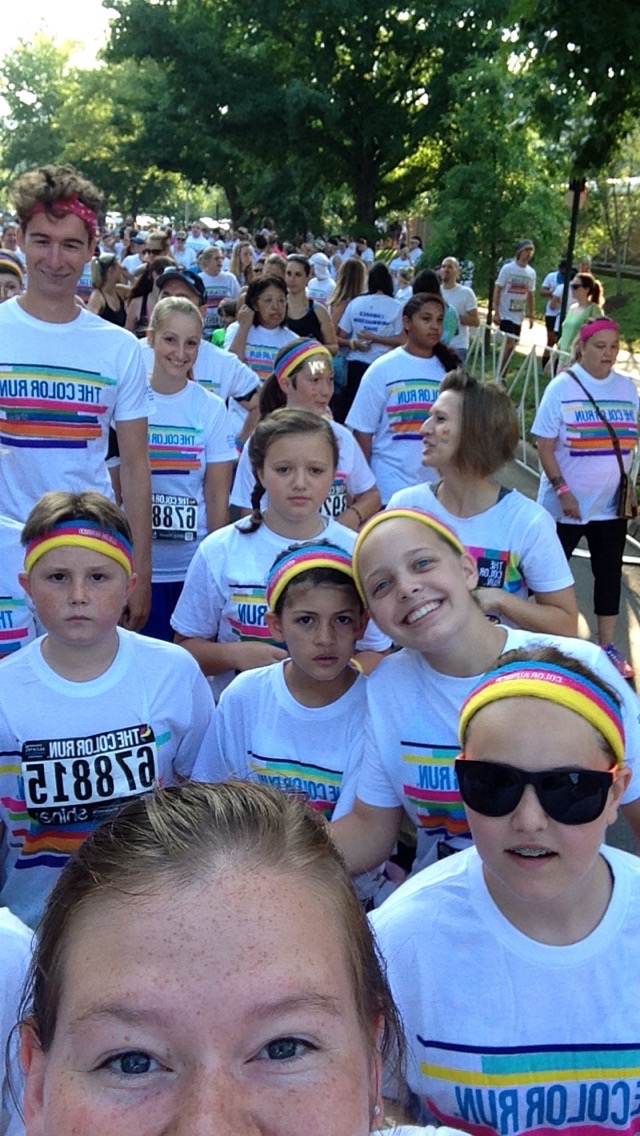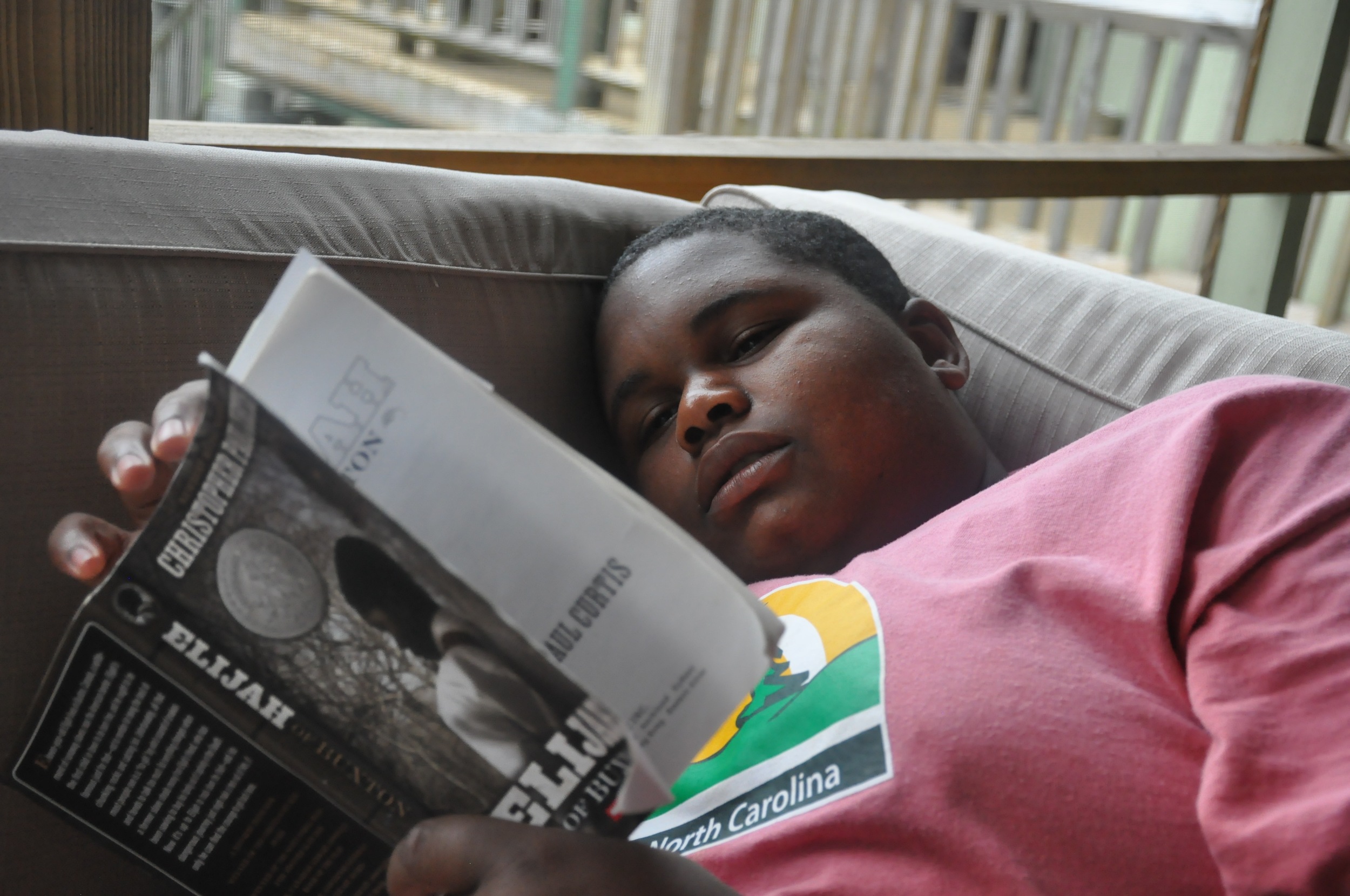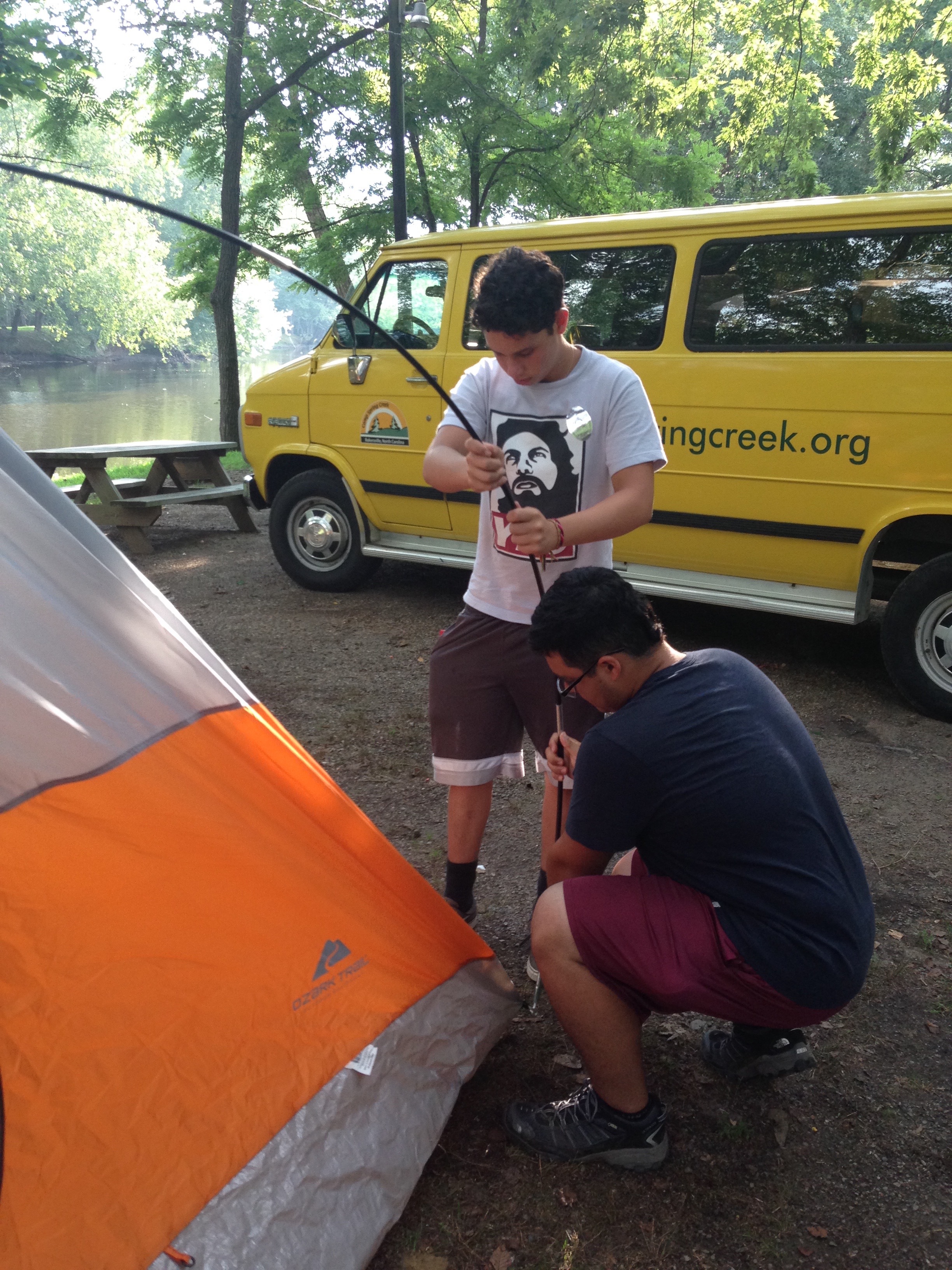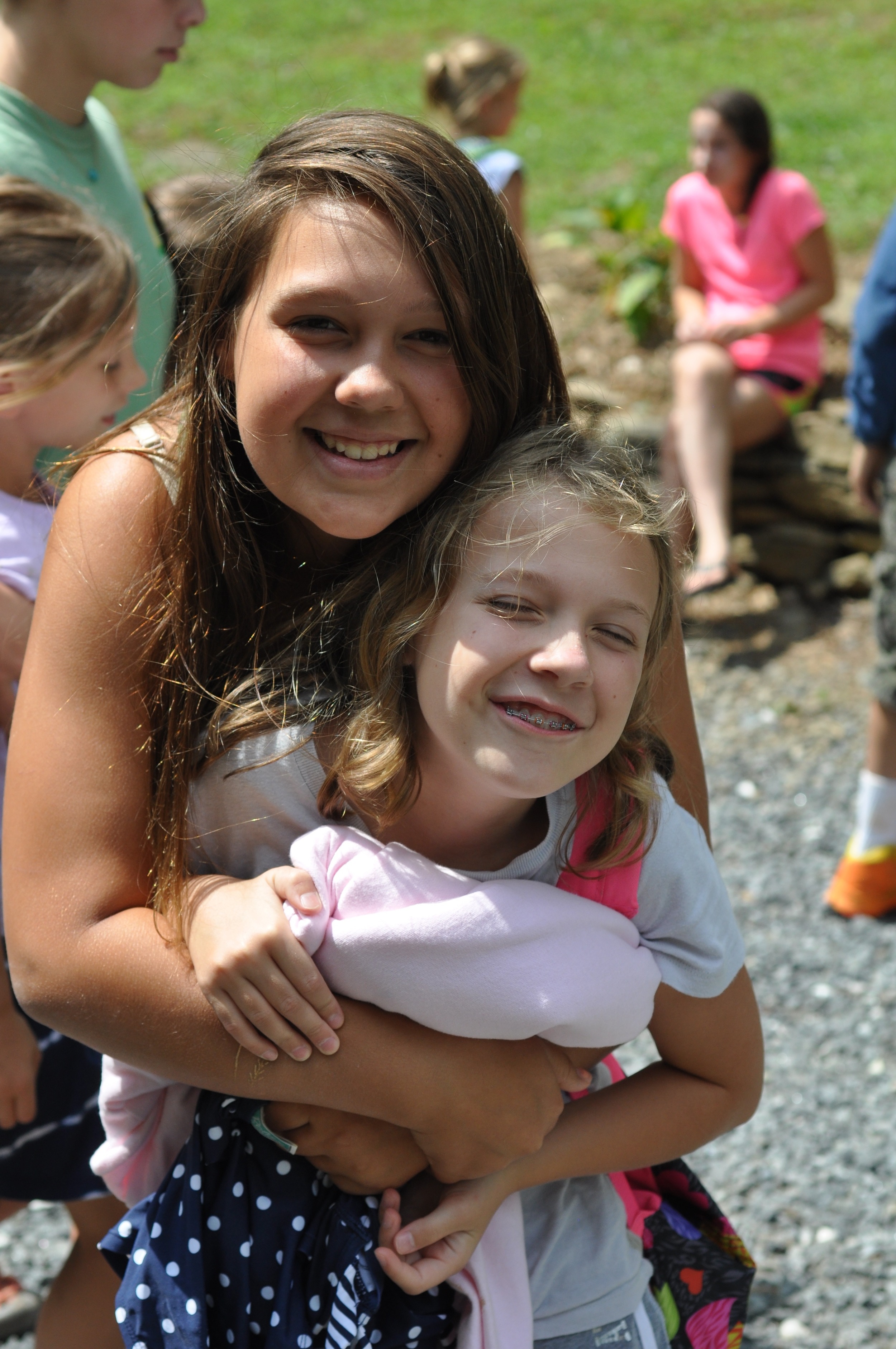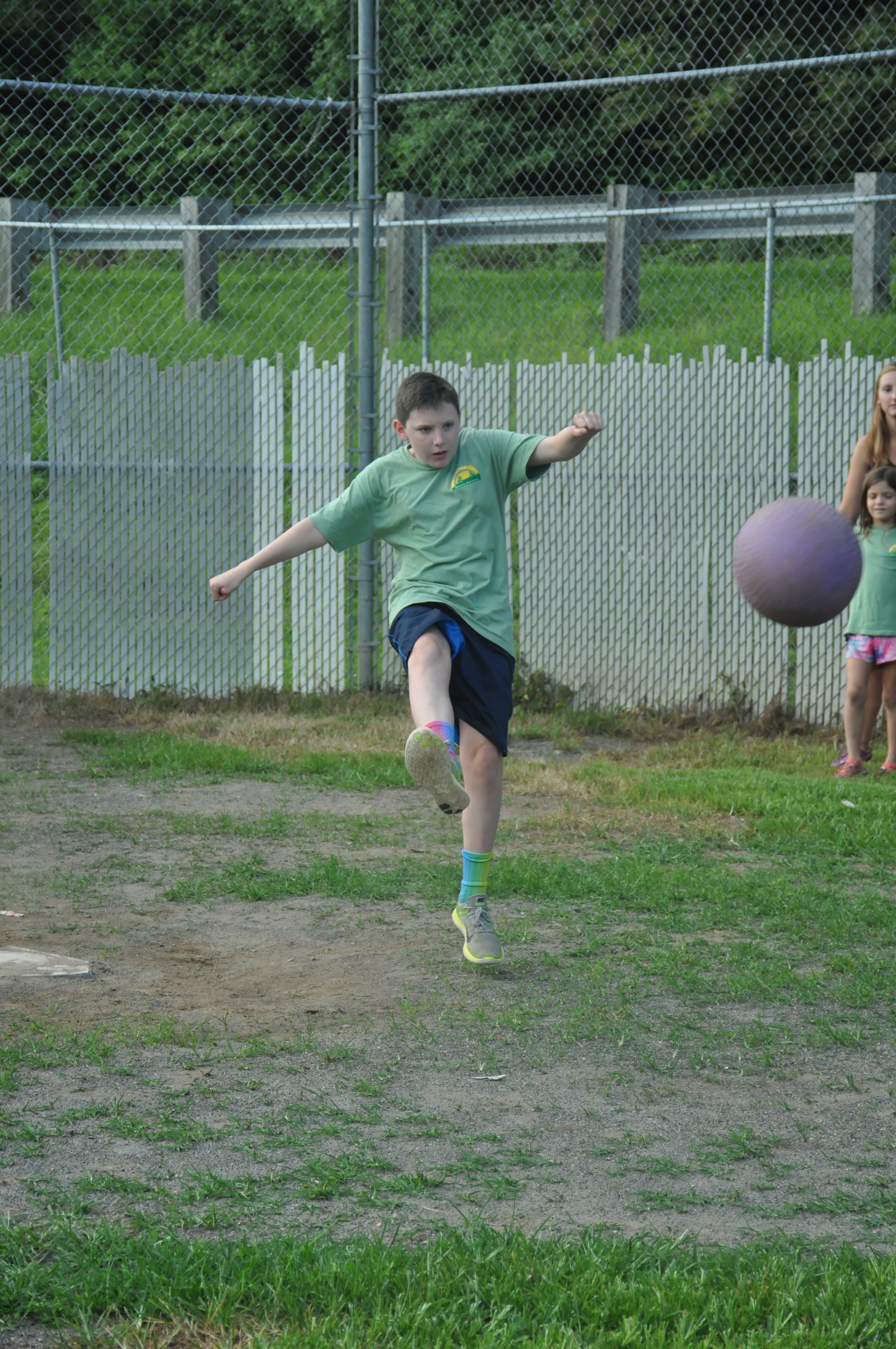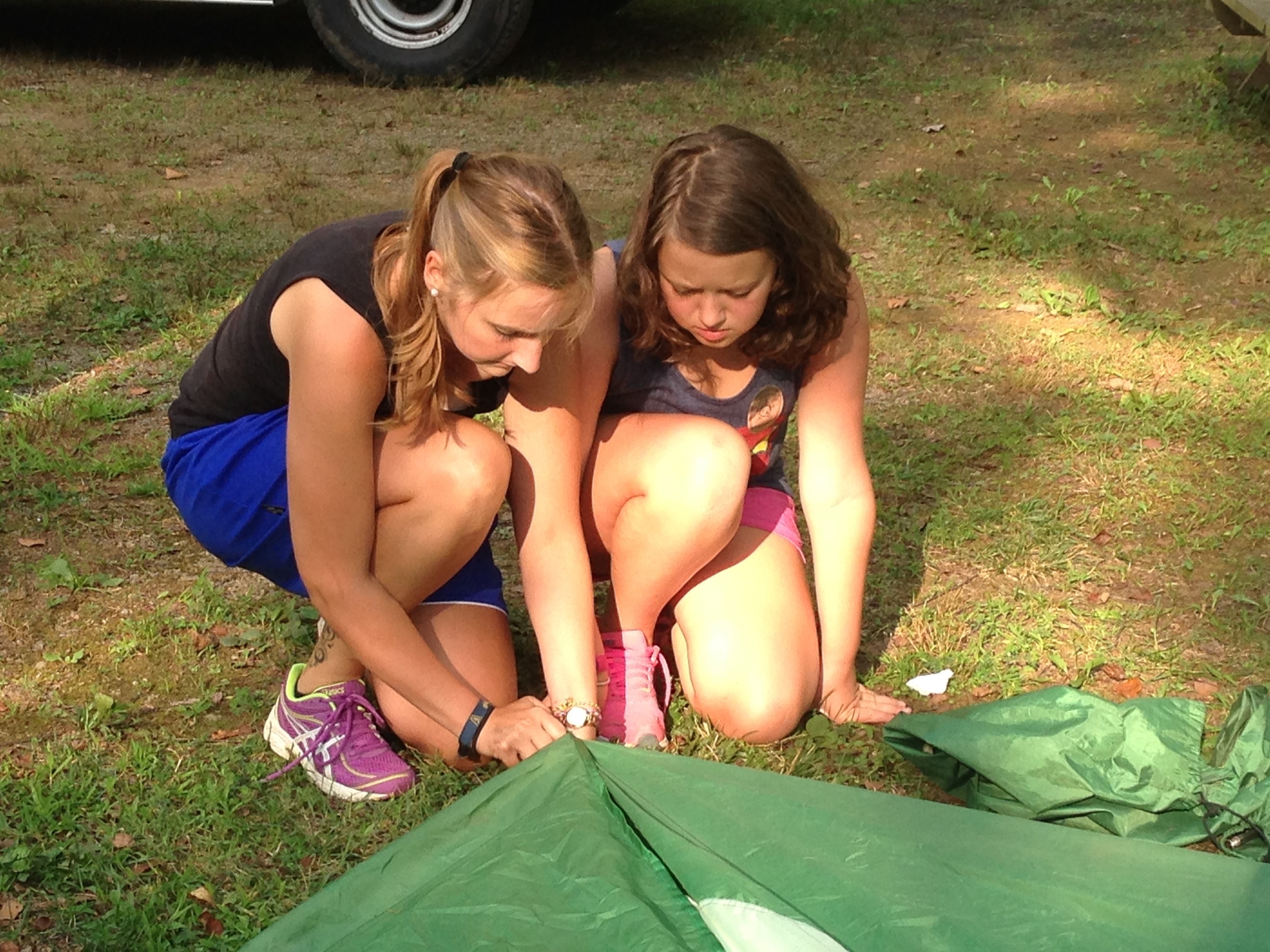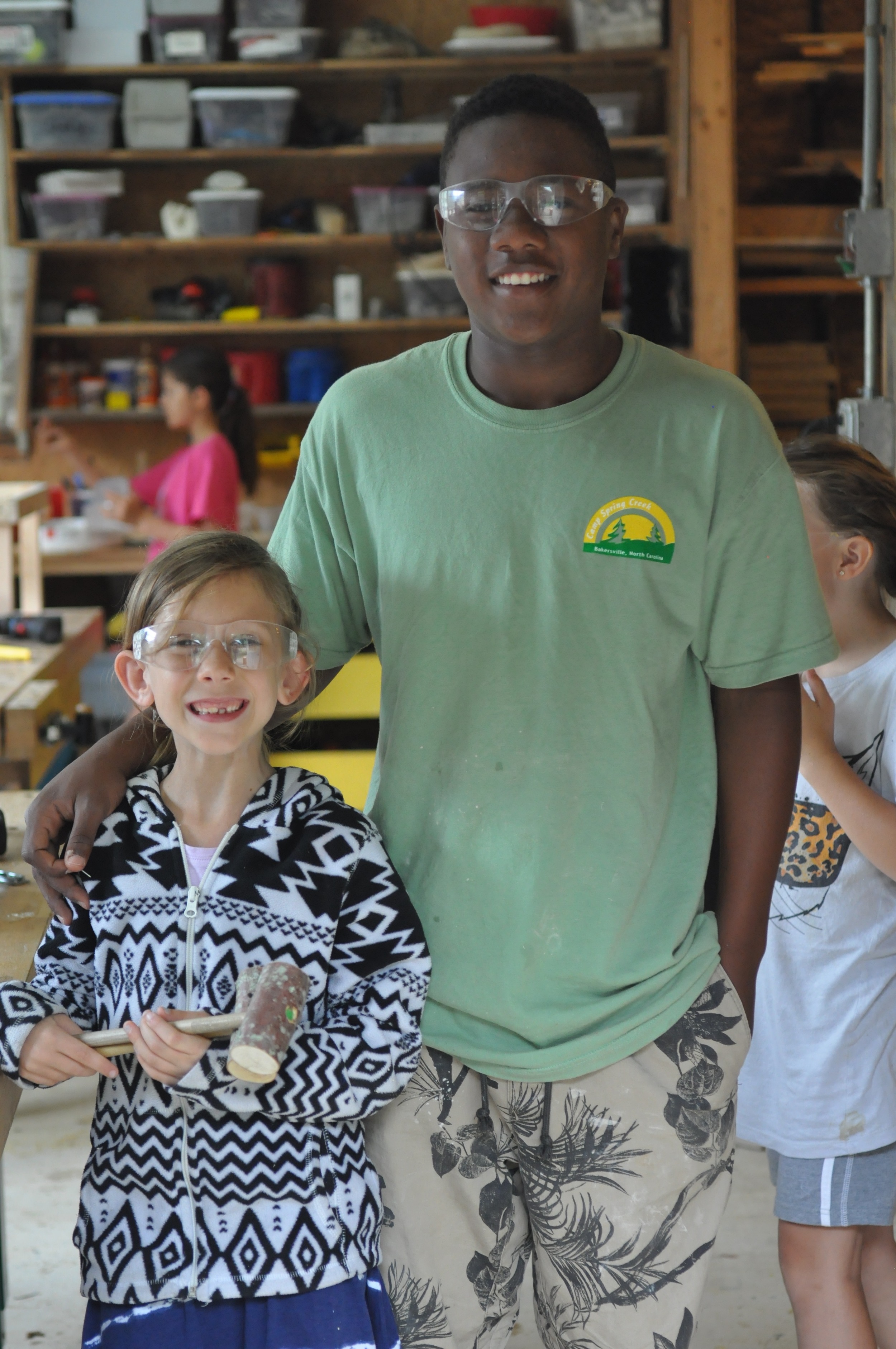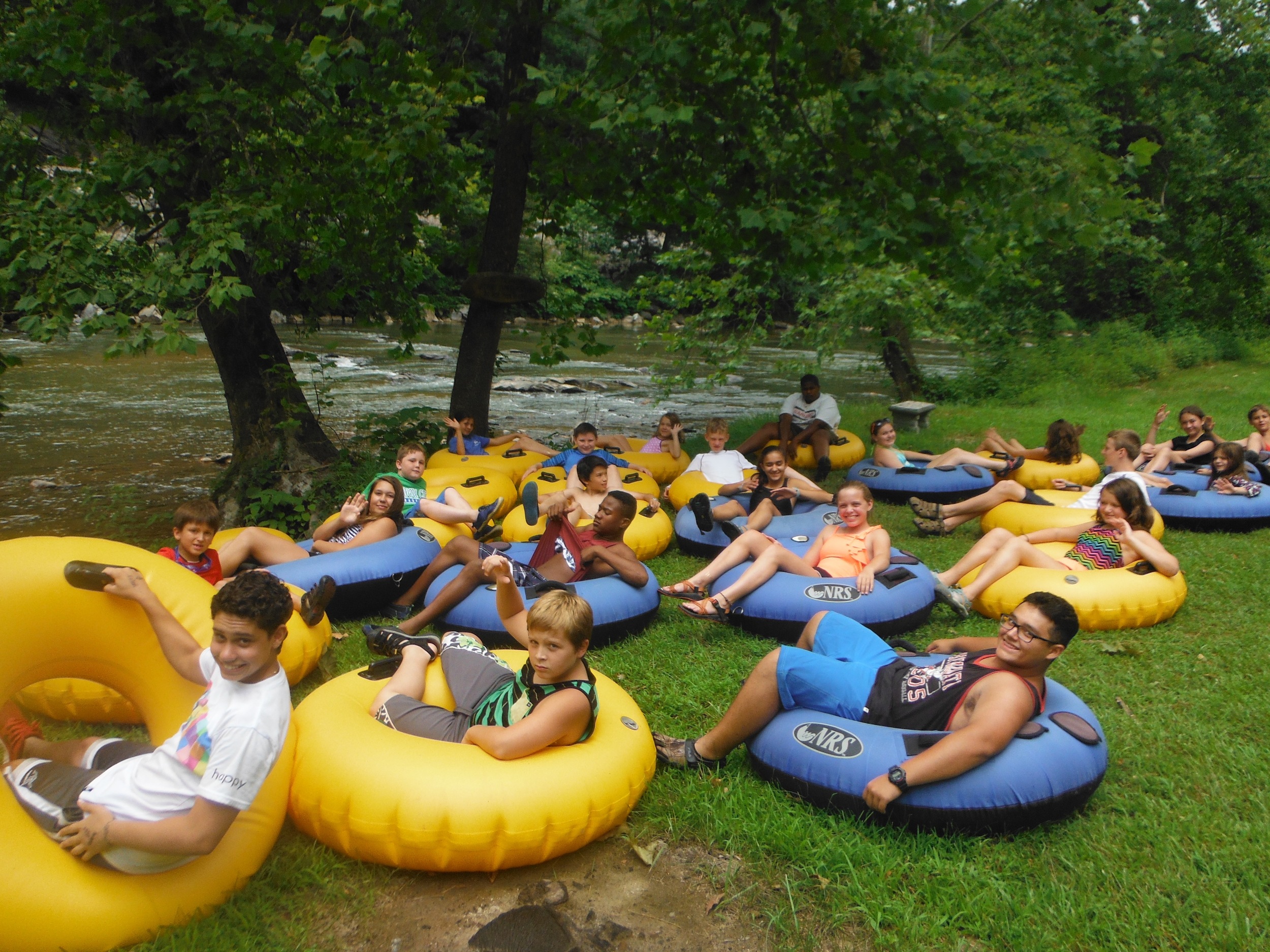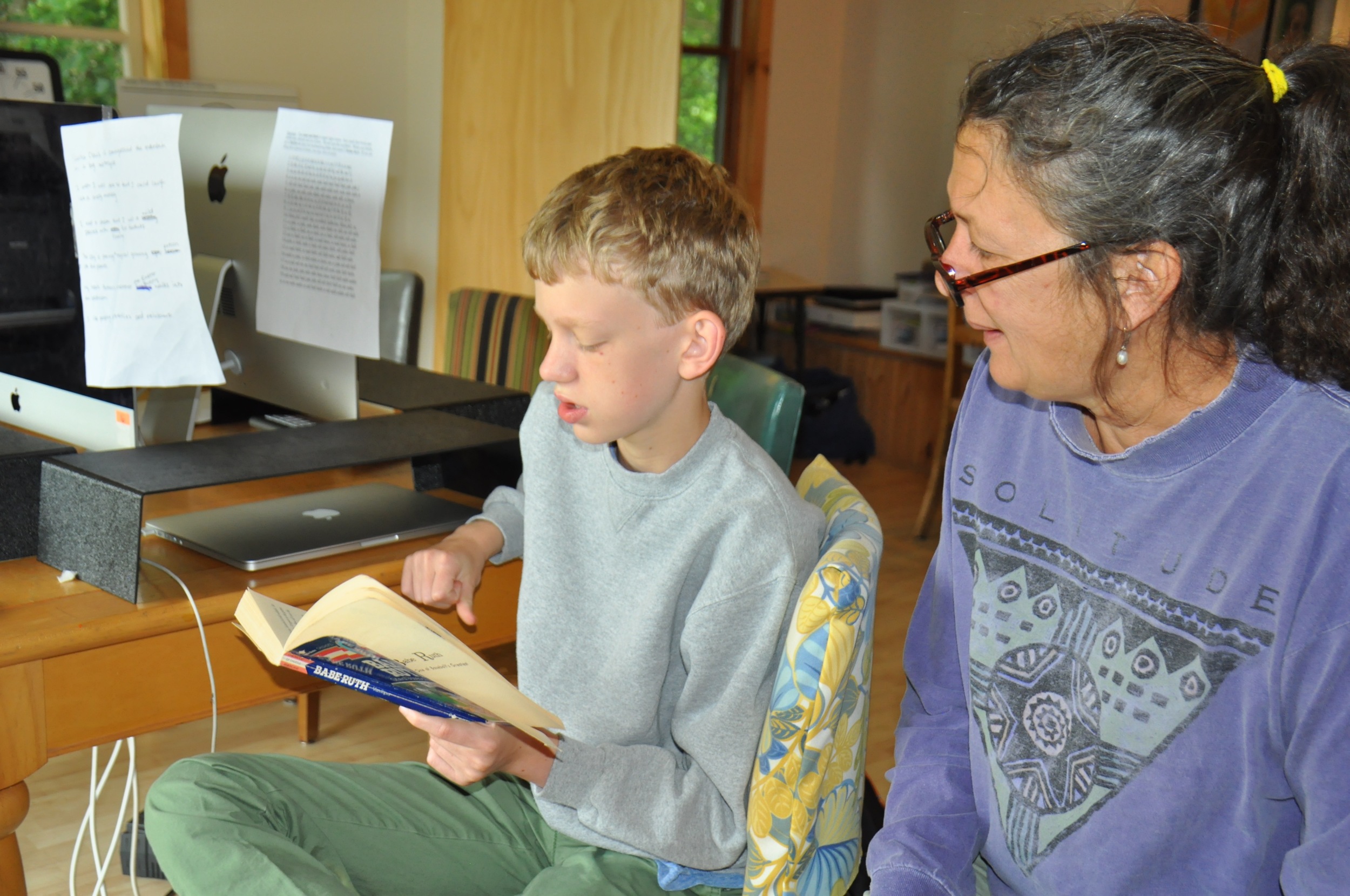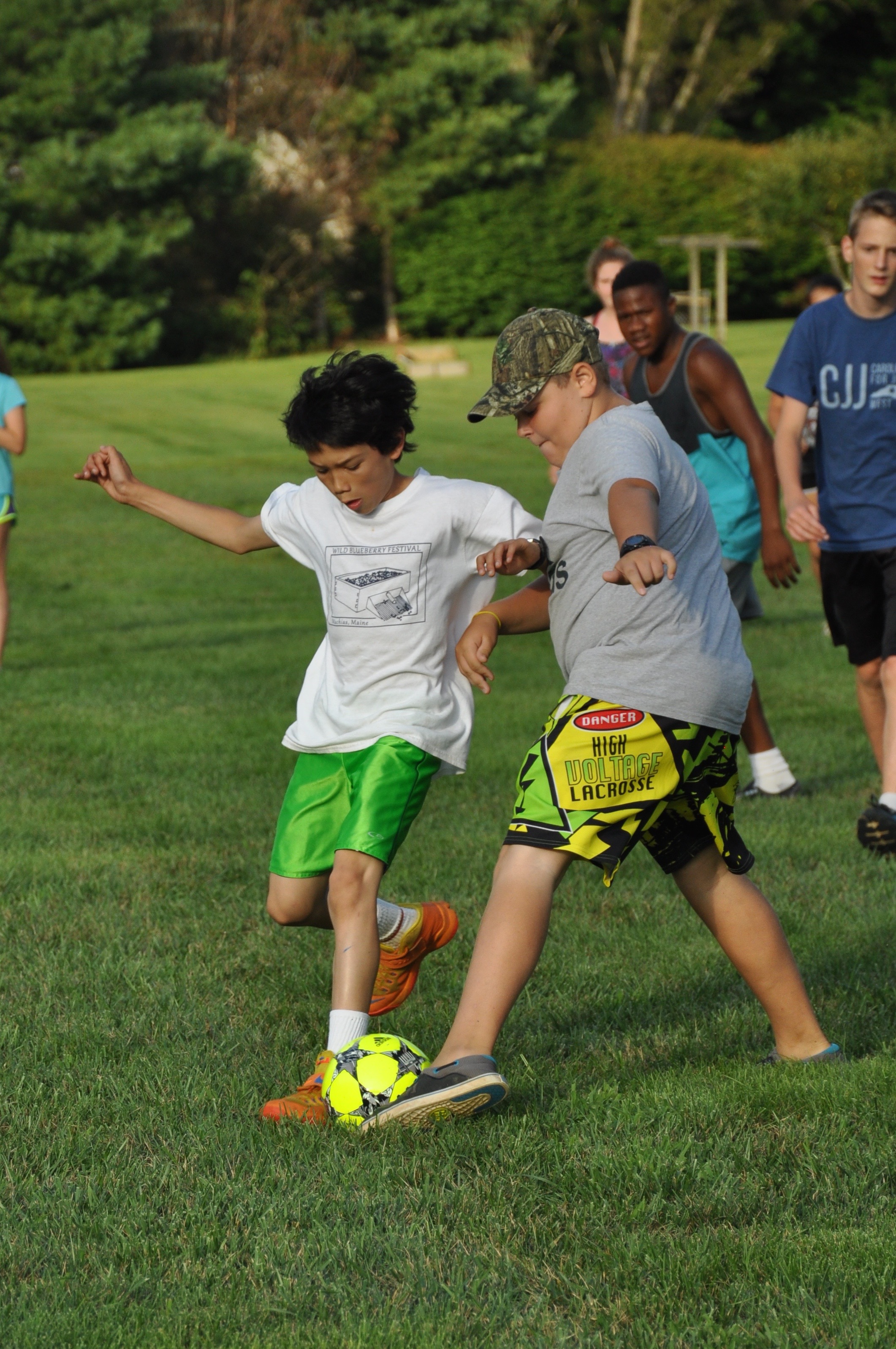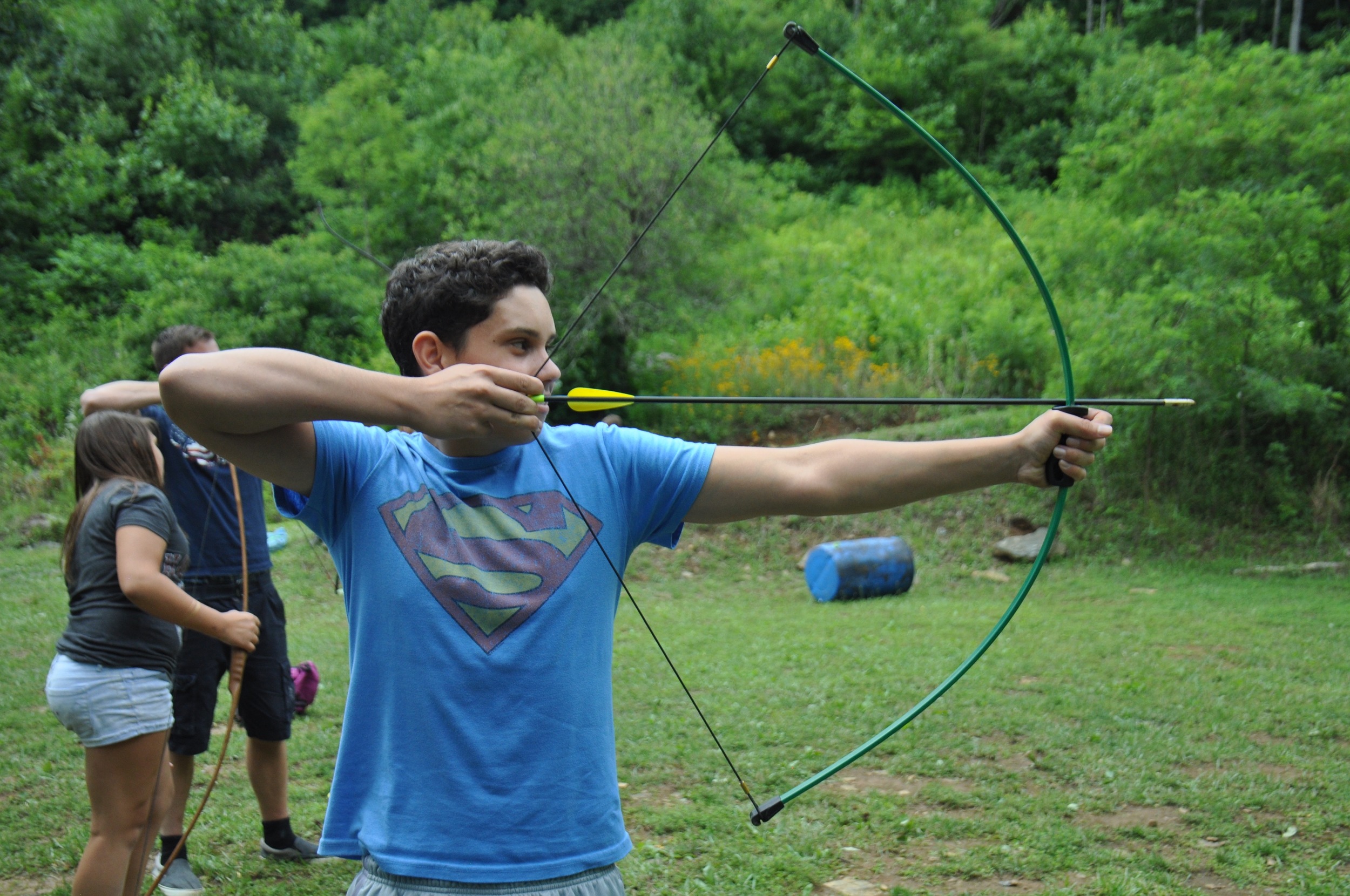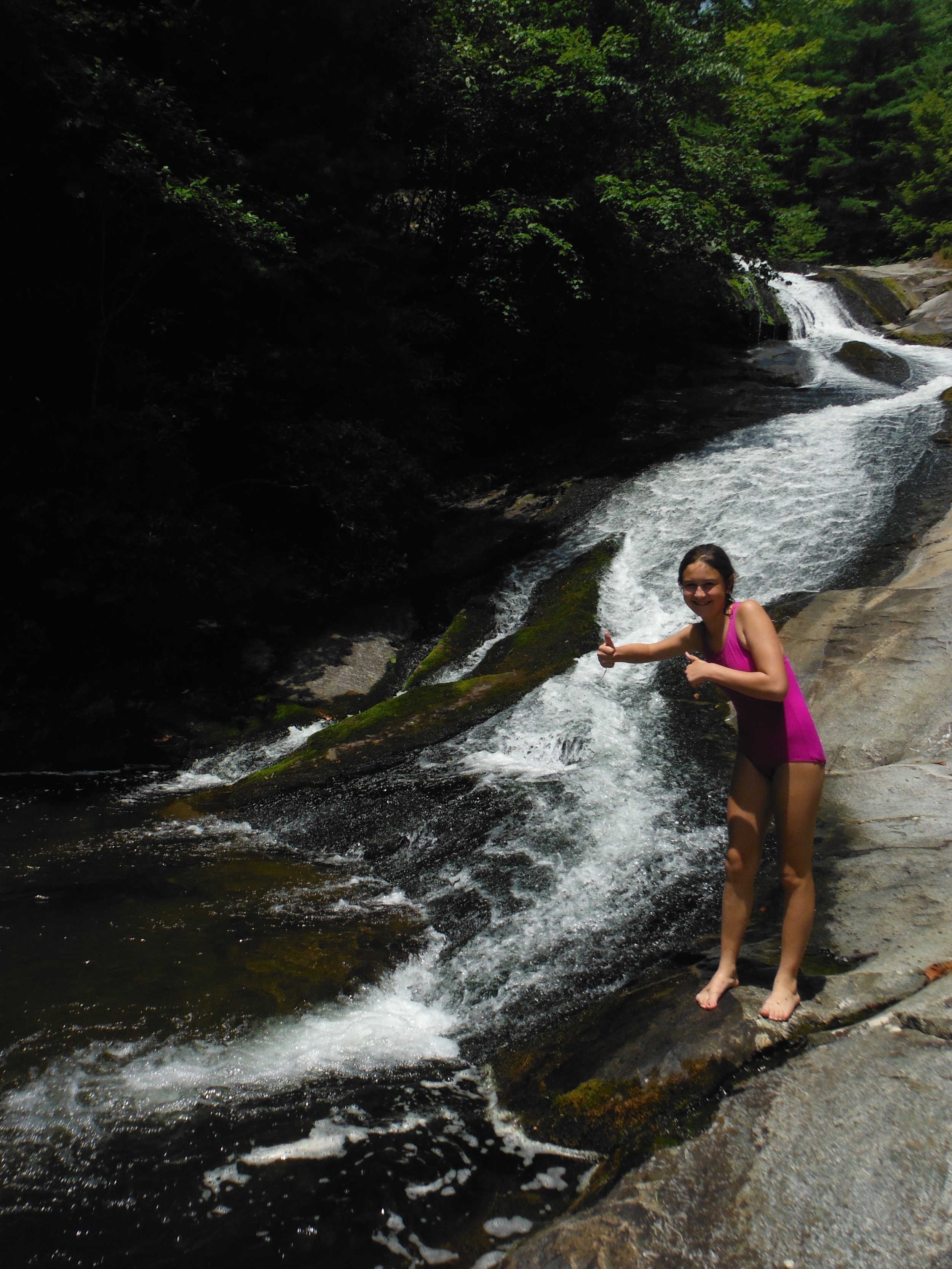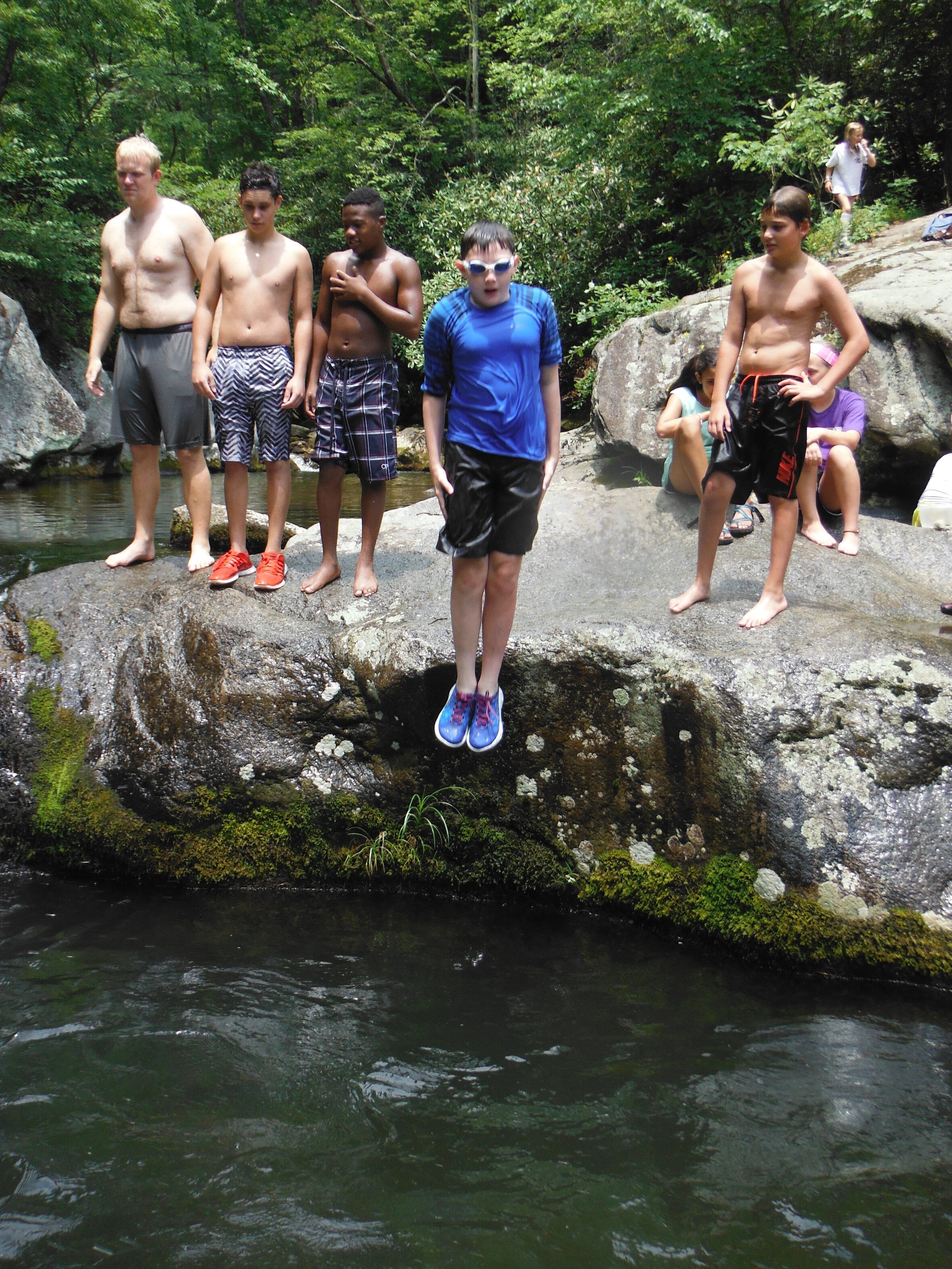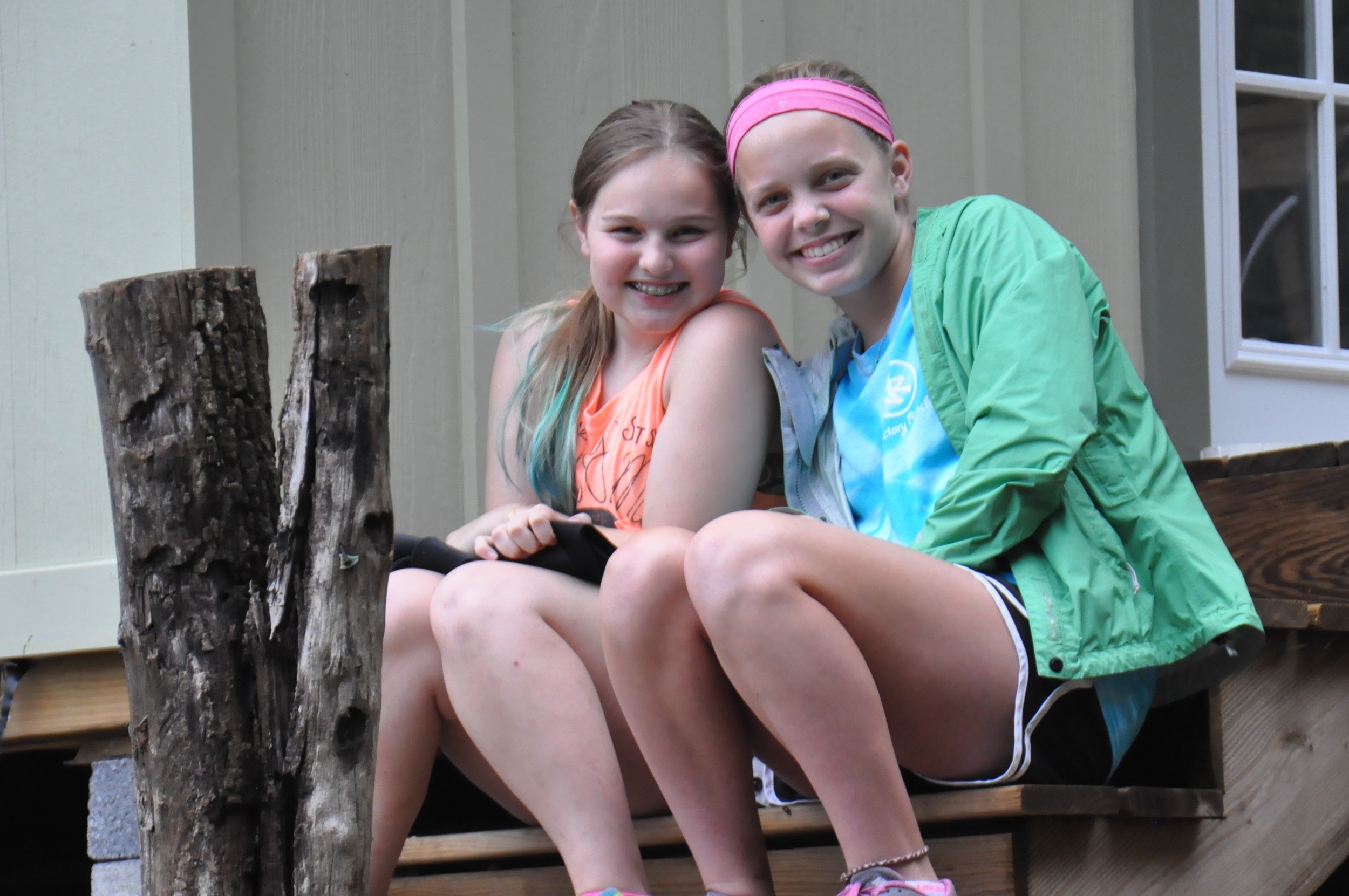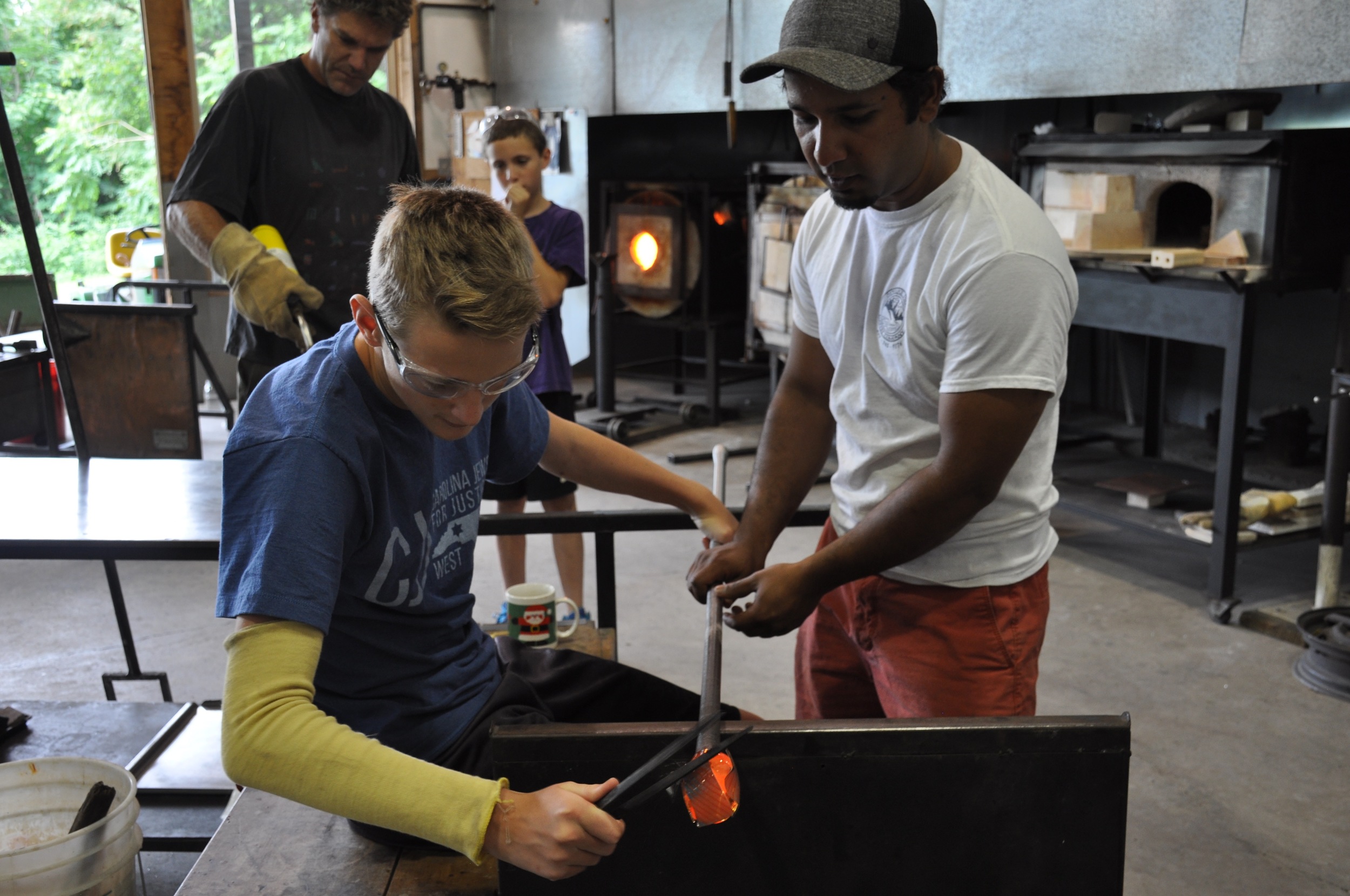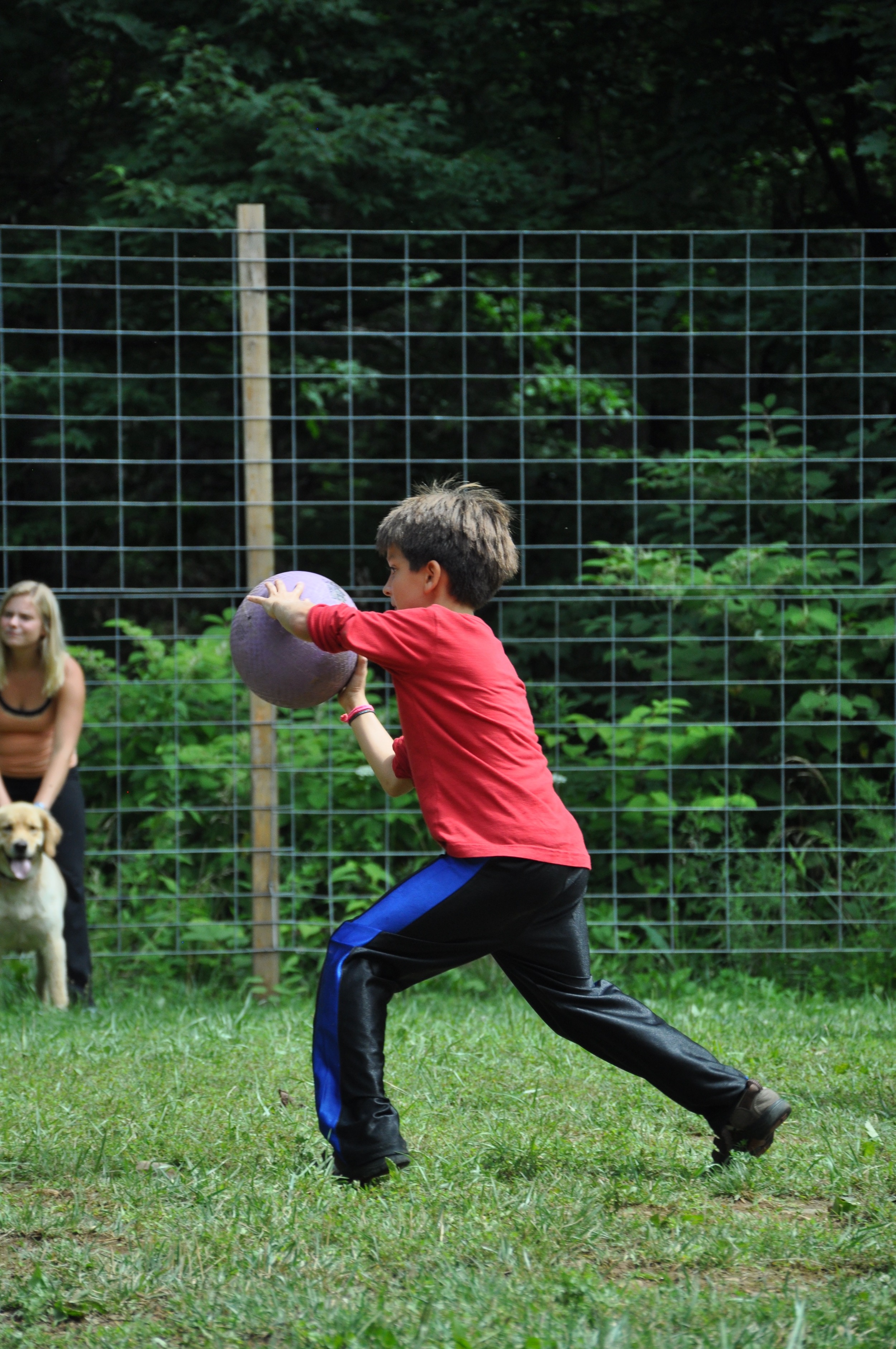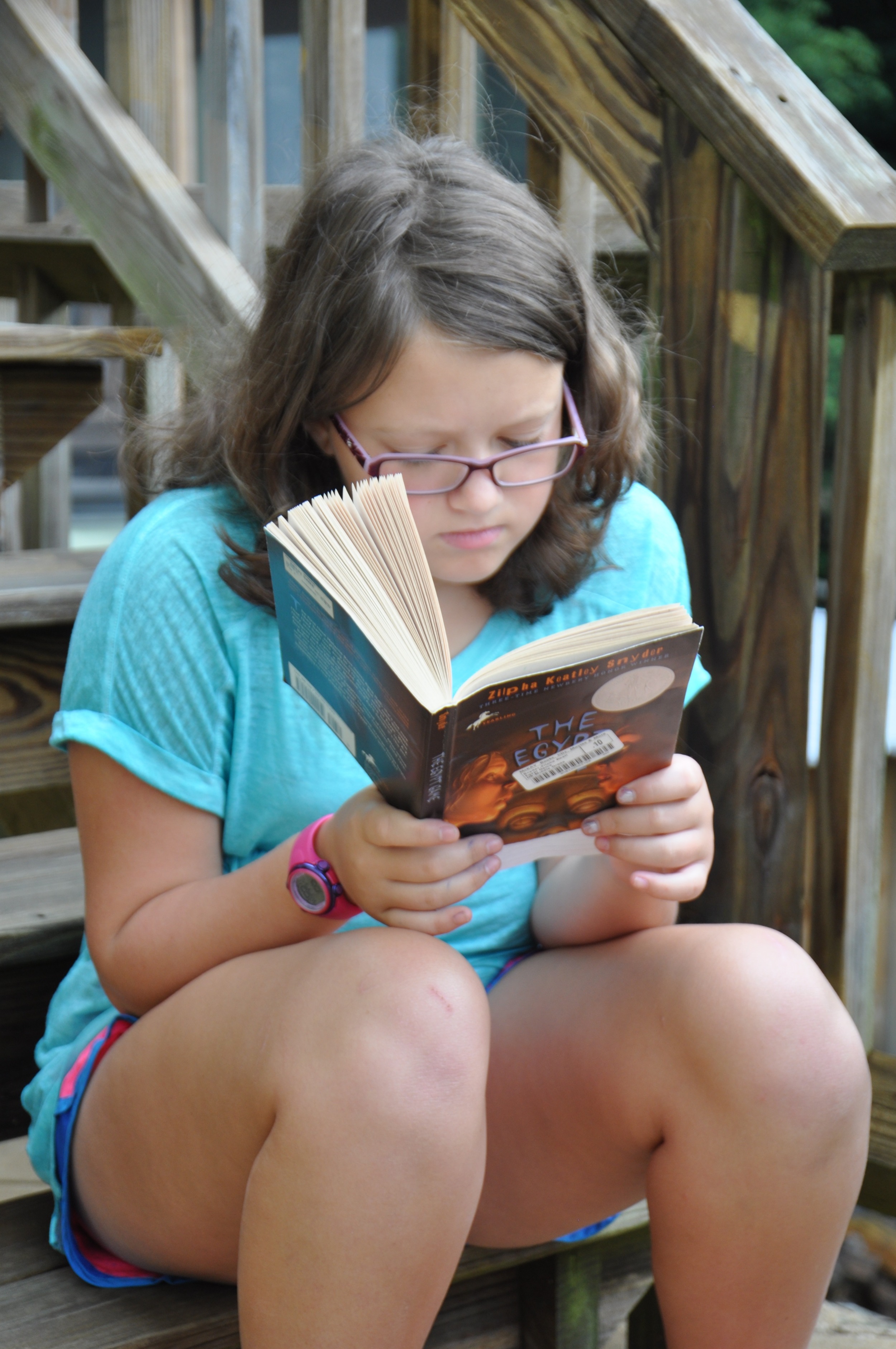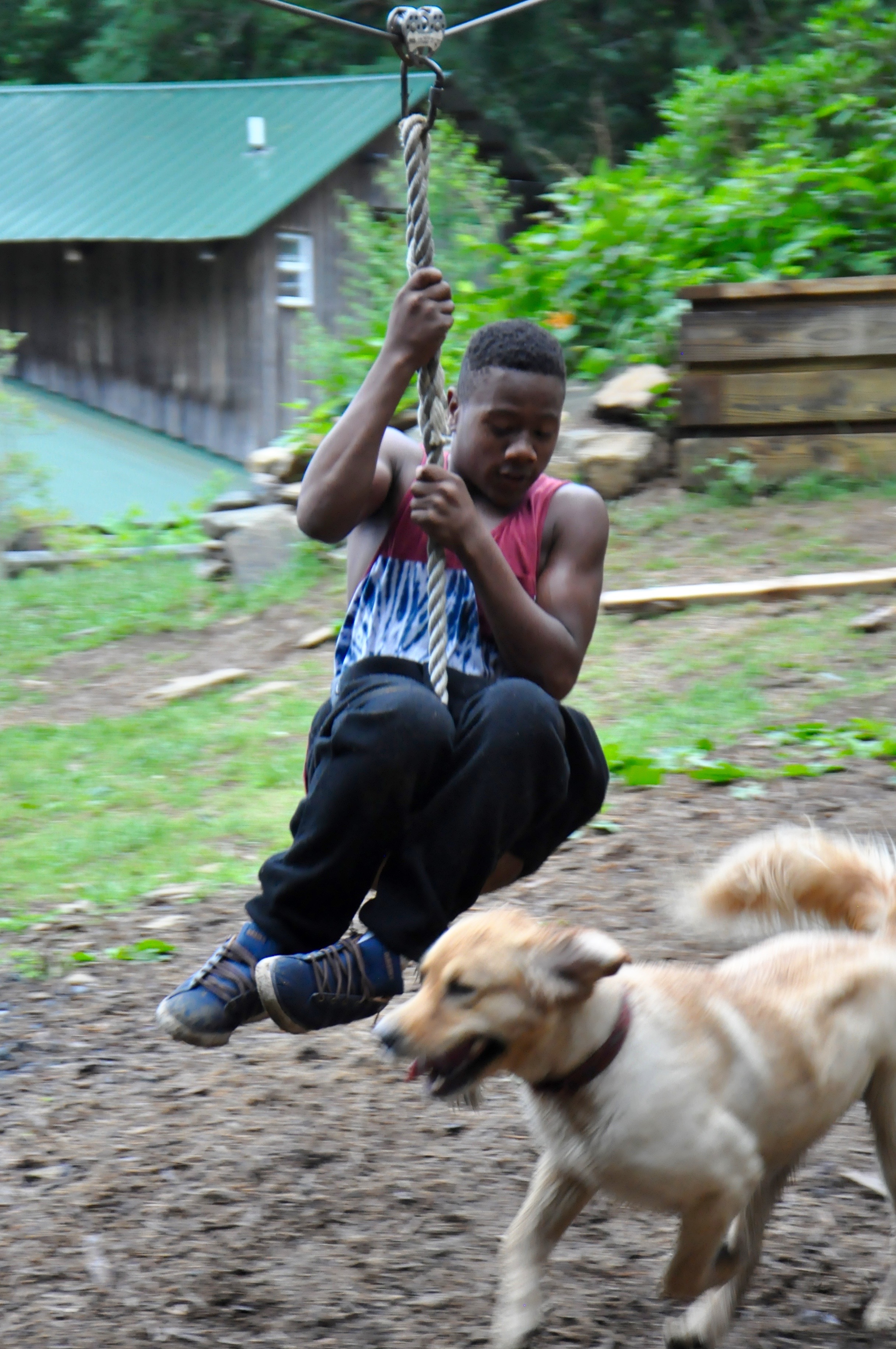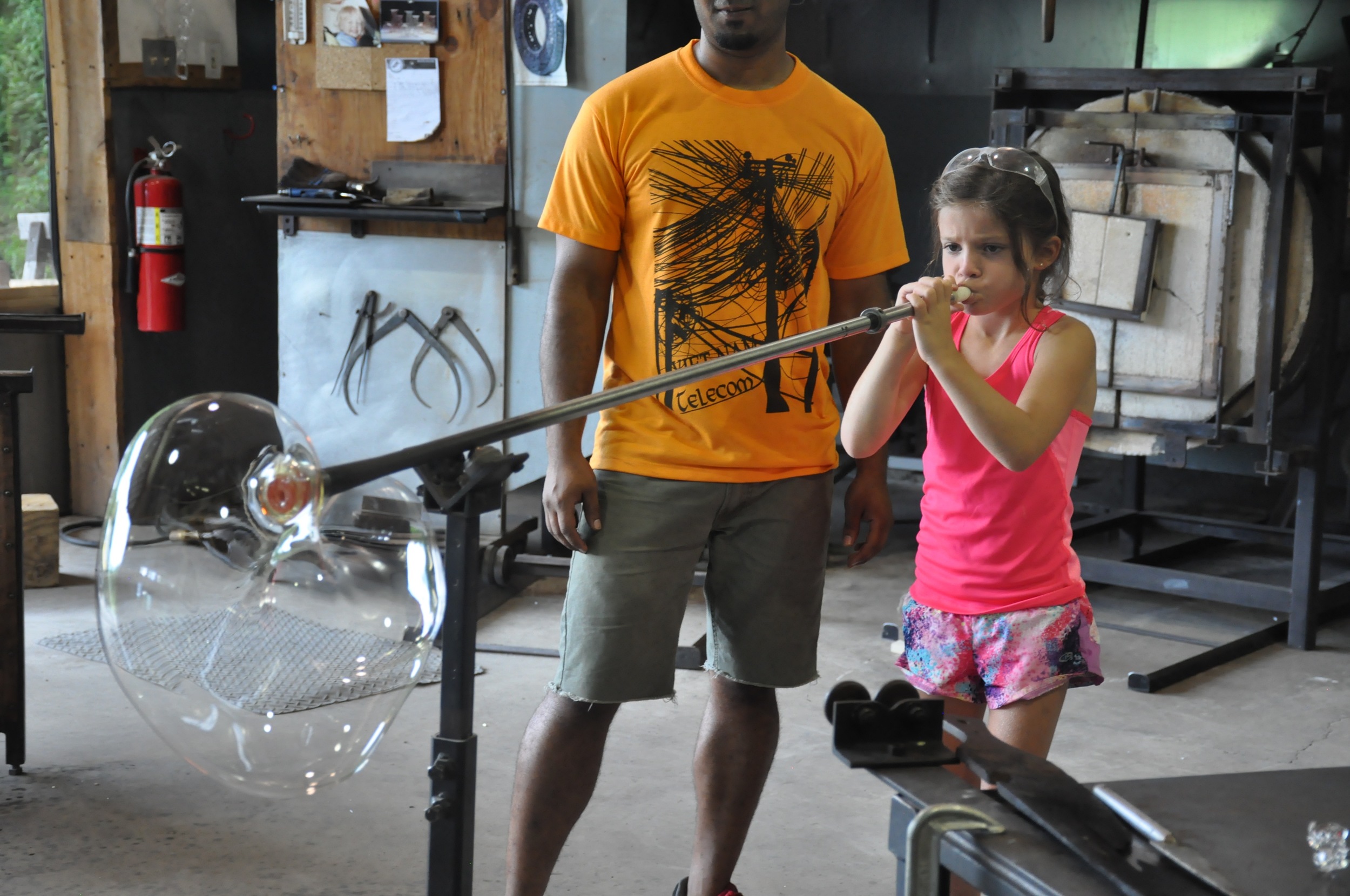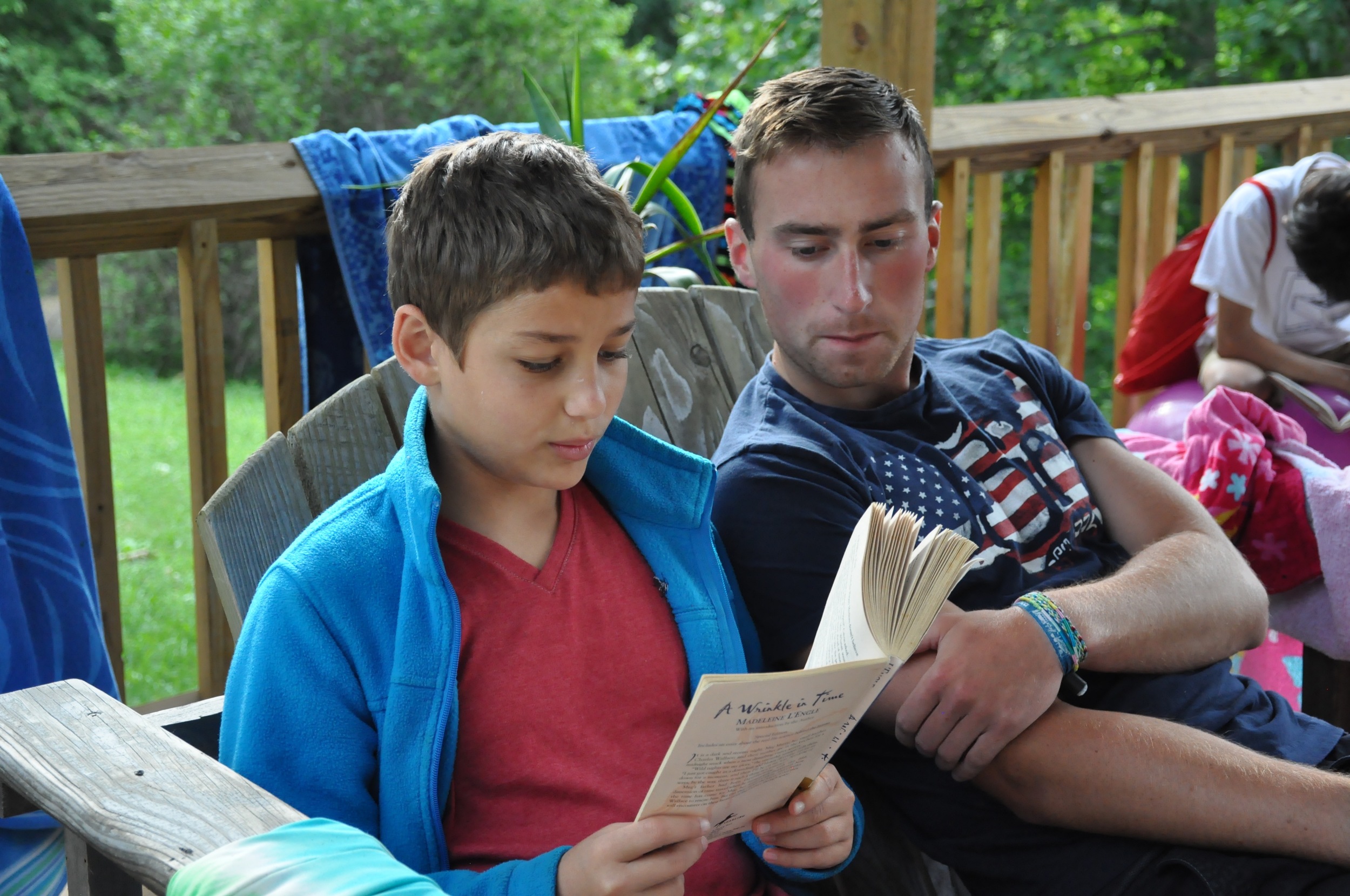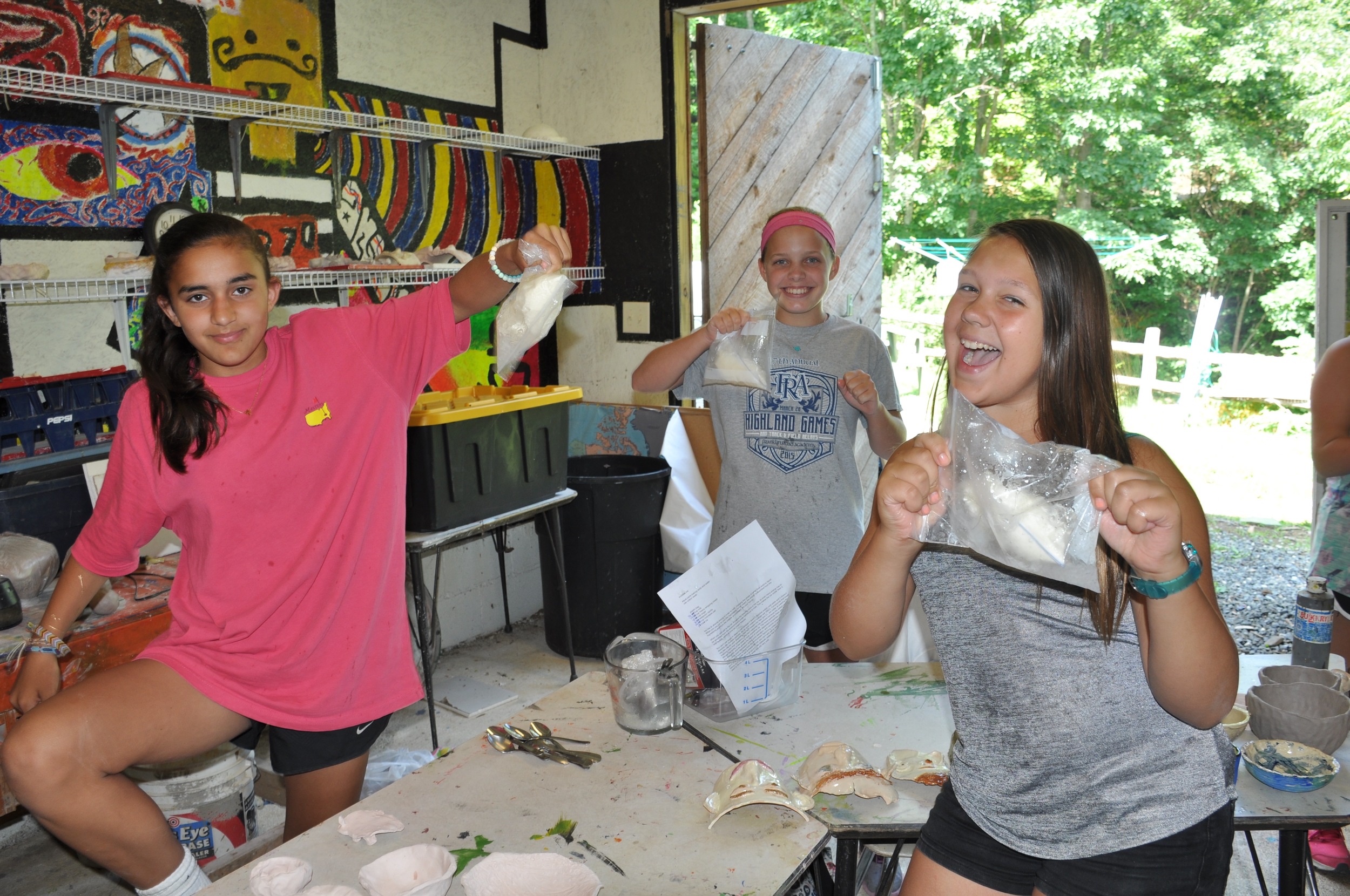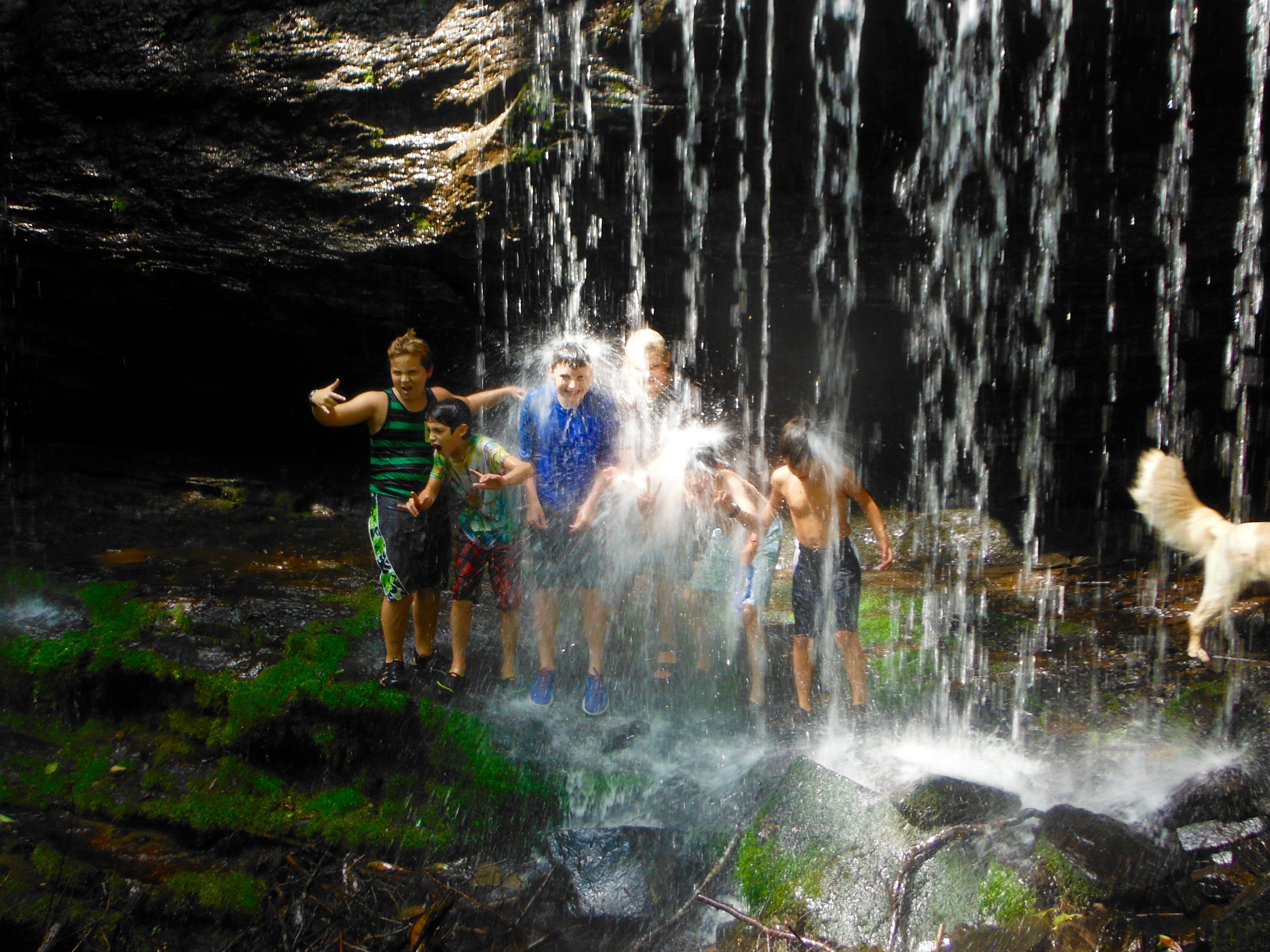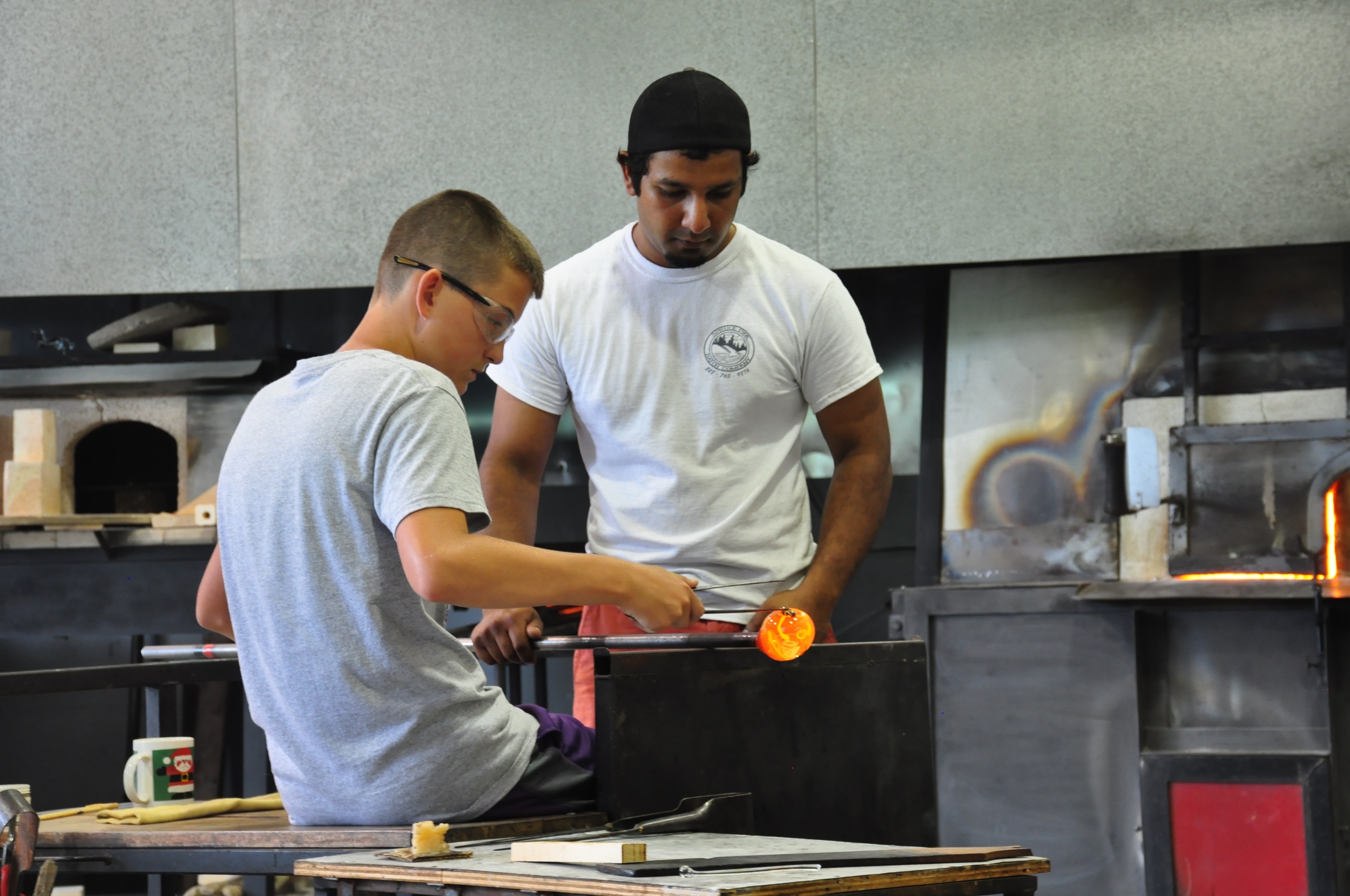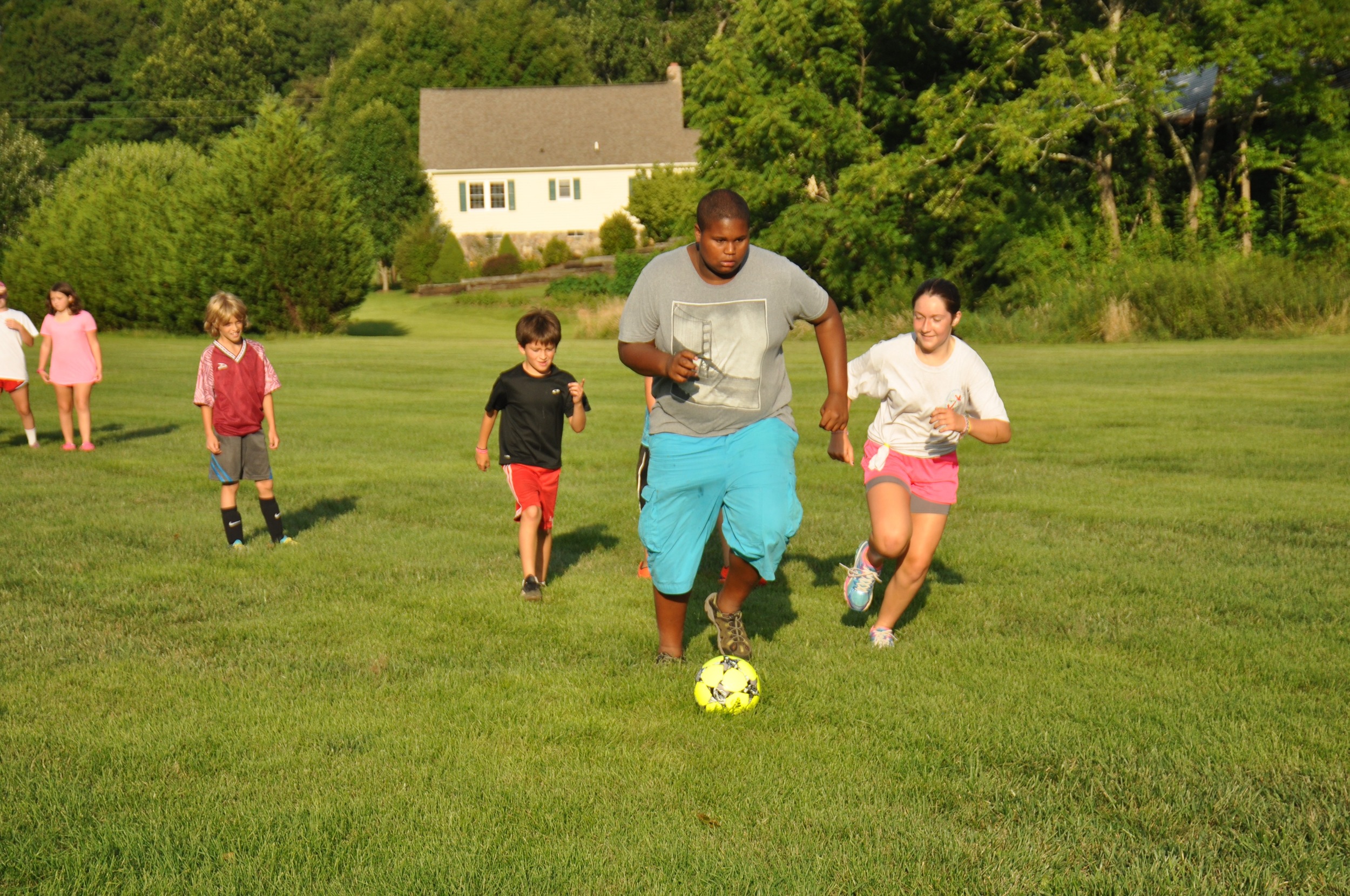With only one week to go, we're packing in a lot of fun and learning. The campers had a belly flop contest, went to see "Grease" on stage, rode horses and started to work on awards that they want to give to their tutors and counselors. We're looking forward to a big celebration before the end of camp this coming weekend!
Meet the Tutor: Betsy Bankston
Betsy Bankston is a surgical nurse, so she’s skilled at diagnostics. But it was her instinct as a mother that kicked in when she saw her daughter Audrey struggling and falling behind in reading in kindergarten. She knew her daughter wasn't getting the attention she needed, either. “I wasn’t trained as a teacher, but I knew I could do better for her,” she says.
She began to homeschool, and as she became more experienced, she realized that Audrey was dyslexic. While learning more about dyslexia, she heard about Orton-Gillingham. A friend of a friend told her about Susie and Camp Spring Creek. Last January, she took the Associate Level training with the aim of becoming the most effective homeschool teacher she could be. Earlier this month, she began as a tutor at Camp Spring Creek. Betsy is so dedicated that she teaches all week, then drives home on the weekend to her home near Gastonia and works her nursing shifts.
As a tutor, Betsy has worked with students across a range of reading levels. Over the summer, she says, she has been able to supply them with the tools they need to improve their reading, such as syllable chunking, finger tapping, and writing and grammar for more advanced students. They are so eager to learn, she says, she can see them soaking in what they’re learning like sponges. “I love to watch them make progress. It’s so rewarding to see them accomplish their goals.”
Working at Camp Spring has been an intense learning period, says Betsy, one during which she has cemented a lot of what she acquired during her Associate Level training. This investment in her own learning and in her students is one she’s been happy to have opportunity to make.
“Susie says the greatest gift you can give a dyslexic is time,” says Betsy. “When I’m with my students, it doesn’t feel like 55 minutes. The time flies by. I wish I had two hours to spend with them each day!”
Camp Spring Creek: Week 6 in Photos!
Another great week at camp! It was hot, so there was a lot of time in the water and chilling out with books. We said goodbye to eight campers: we'll miss you and never forget you!
Underwater fun!
A powerful foot
Cooling down on a hot day
D's turn at the plate
In the woodshop
Relaxing with a good book
K. kicks it!
A little down time...
Nice form!
A comfy place to read
H. looking cool
Fun and challenging!
A counselor and her pal
Classic summer shot!
There's room for two in the hammock!
A new way of reading
Underwater fun
We will miss you, J.!
Evening fun
Goofing around with the counselors!
Camp Spring Creek Stories: Andrew's Robot
Over the course of the summer at Camp Spring Creek, campers and their tutors spend a lot of time together. This time is both fun and challenging, filled with great leaps in learning every day. Our tutors go above and beyond to get to know each camper as an individual, tuning in to the camper's unique way of learning, personality and interests. We're thrilled when that individual interest goes both ways.
While working with his tutor Ishani, Andrew noticed that she could use a place to put her pens, pencils and notecards. In woodshop, he designed and crafted this robot bookshelf for her office, drilling holes for the pens and pencils on the ends of the "arms" so that they look like fingers. The robot now 'lives' in her office, a permanent gift to her.
We are proud of our creative campers! But we're also proud of their thoughtfulness and kindness to each other and to their tutors and counselors. Camp brings out the best in everyone!
Camp Spring Creek, Week 3 in Pictures!
A Mount Mitchell selfie!
The boys getting ready for the big dance. And getting photobombed by the gals.
Camp is about friendship.
The girls, pre-dance.
Survivor games- three are better than one!
Survivor games at the pool.
Taking aim in archery.
Exploring in the creek.
Woodburning in woodshop.
Getting ready for the dance.
Fun with clay.
Mimi is helping out.
Team spirit in Survivor games!
Taking a break on a group hike.
Team games often require unusual skills!
Taking the plunge.
There IS a lot of learning going on, too!
Cooling down in the creek.
Here we are, atop the highest peak in the East, Mt. Mitchell!
Camp besties!
Camp Spring Creek 2016: Week 2 in Pictures!
S. enjoying reading time!
C. is putting the finishing touches on her birdhouse.
Jimmy is crushing it at kickball.
Reading time!
Made it to the top!
K. and G are getting the hang of rollerskating.
Learning "touch drawing."
Limbo!
Seniors off on the overnight camping trip!
Iwona's swim lesson!
Wow!
Capture the flag.
Minute to win it!
Who are those masked campers?
The First Week at Camp, 2016 in Pictures!
Guest Blog: Decoding Dyslexia NC
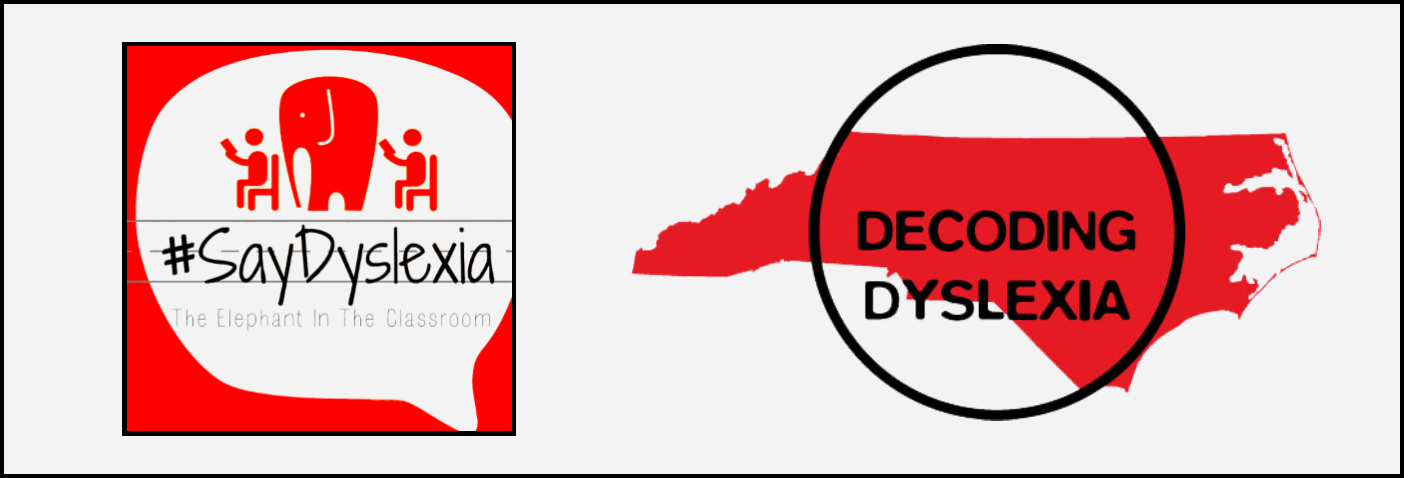 We're excited to be hosting our first guest blogger, Jennifer McBee from Decoding Dyslexia NC! Decoding Dyslexia is a network of parent-led grassroots movements across the country concerned with the limited access to educational interventions for dyslexia within the public education system. Here in North Carolina, Decoding Dyslexia is making great progress. Here's what Jennifer shared with us:
We're excited to be hosting our first guest blogger, Jennifer McBee from Decoding Dyslexia NC! Decoding Dyslexia is a network of parent-led grassroots movements across the country concerned with the limited access to educational interventions for dyslexia within the public education system. Here in North Carolina, Decoding Dyslexia is making great progress. Here's what Jennifer shared with us:
Decoding Dyslexia Hoping to Gain Ground in 2016
Decoding Dyslexia NC (DDNC) is driven by NC families concerned with the limited access to educational interventions for dyslexia within our public schools. The Decoding Dyslexia movement aims to raise dyslexia awareness, empower families to support their children and inform policymakers on best practices to identify, remediate and support students with dyslexia in NC public schools. The national movement started in 2011 with several parents from New Jersey. Today there are Decoding Dyslexia groups in all 50 states and four Canadian Provinces.
Decoding Dyslexia NC is still young and looking for concerned parents who want to make a change in education for their children as well as others. Lending your voice to by reaching out to your representatives is a huge help. A great example of parents making a difference is the bipartisan Research Excellence and Advancements for Dyslexia Act (READ Act) H.R. 3033, which the president signed into law on February 18, 2016. Keep a watch out on our website for calls to action for dyslexia parents advocate for their children. DDNC advocates for the state of North Carolina to:
- Mandate a universal definition and understanding of “dyslexia” in the state education code
- Mandate teacher training on dyslexia, its warning signs and appropriate intervention.
DDNC sees that NC parents have struggled getting services because schools typically don’t use the word dyslexia, nor fully understand that it’s a difference in how the brain is wired. DDNC is working to change that and help parents advocate for their children. Another example of how the national group has made a difference was the #SayDyslexia movement, which resulted in a dyslexia guidance letter from the US Department of Education Office of Special Education and Rehabilitative Services last October. The letter basically says that schools can use the word “Dyslexia” when it applies to a child with a reading disability. Properly defining the issue when a child is struggling is crucial to getting proper instruction.
DDNC currently has four co-leaders who contribute a variety of strengths to our team. We want to connect with other concerned parents, teachers, and administrators throughout North Carolina who want to create an effective change with less effort through education about dyslexia. We are also concerned with how to help students with dyslexia families in NC that are in rural areas who may not have access to as many resources for their children.
If you want more information or would like to get involved, please contact and connect with us:
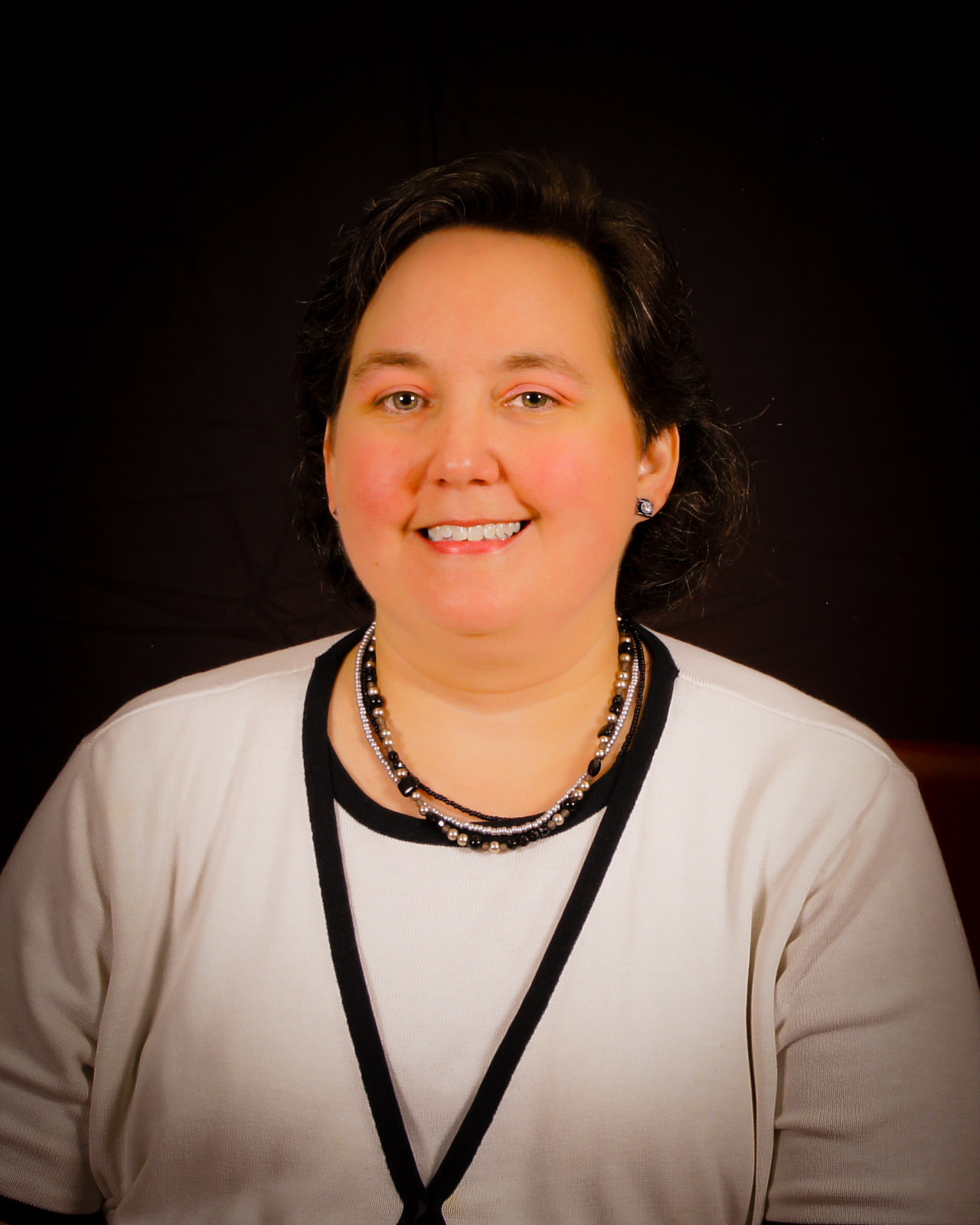
Meet the Counselors: Conor Lennon
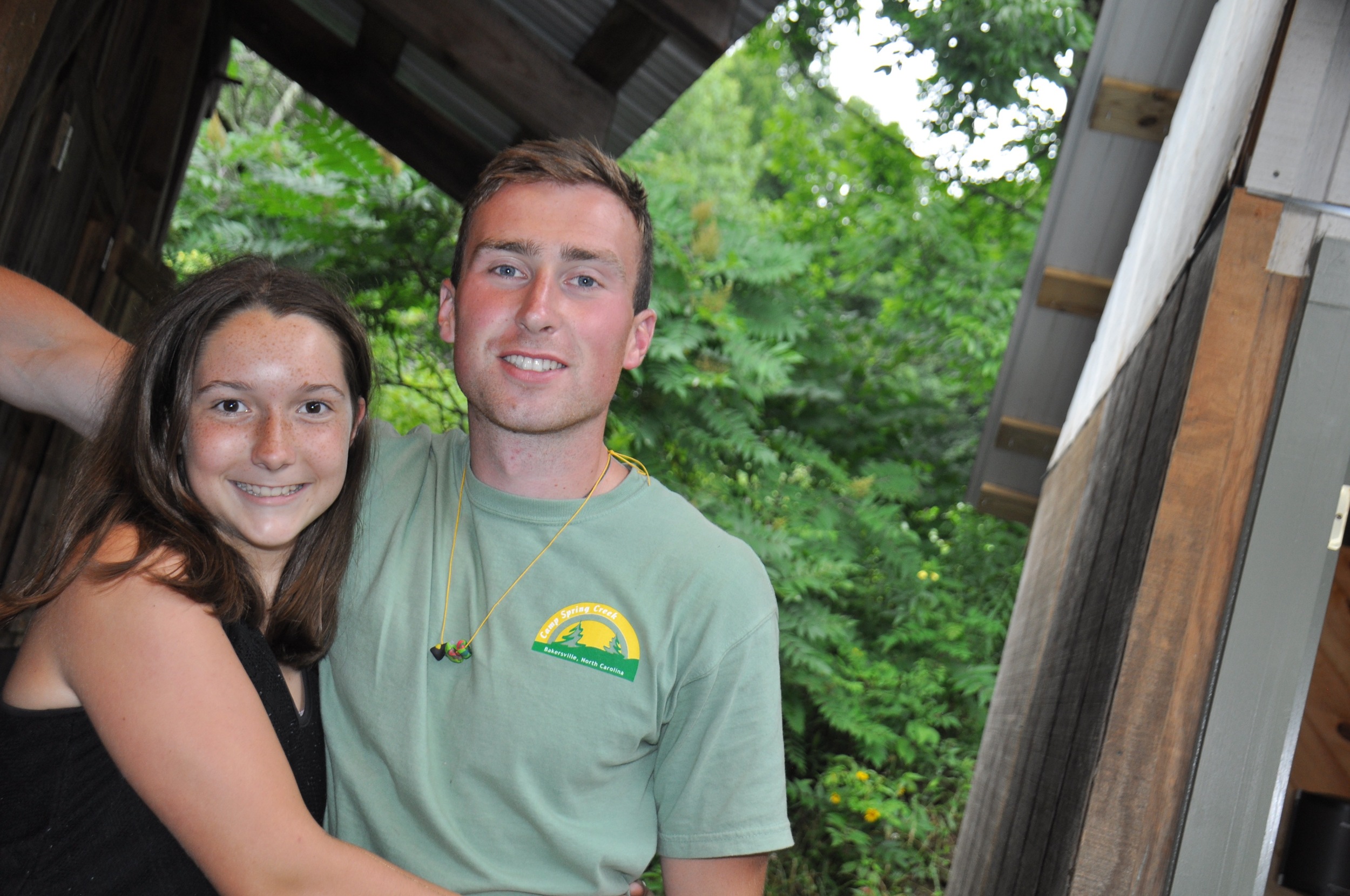
This year, we’re thrilled to have counselor Conor Lennon (above, right) returning for another season at Camp Spring Creek. Conor hails from beautiful Timahoe, Ireland, so in addition to being a fun, friendly and encouraging counselor, he’s also got a great accent! We caught up with Conor to hear a little about his experiences last year and what’s in store for this summer.
What made you decide to return to Camp Spring Creek?
I decided in the second week of camp last year that I wanted to come back. It’s a combination of things; the kids are all great, the location is beautiful, all the staff are lovely people, and it's just the right blend of challenging, rewarding and fun. I don’t really know how to describe it better than that.
What was the highlight of last summer for you?
The Color Run was probably my favorite activity. We camped out, had so much fun, and everyone enjoyed it. There were no problems or arguments— literally everyone had a great time.
What advice would you give to incoming campers?
It's okay to be nervous. I was nervous! But everyone is really friendly and helpful, and you're so busy and having so much fun that the time flies by.
What should campers in your cabin know about you?
I know everything. I see and hear everything that goes on in my cabin. My spies are everywhere!
Finish this sentence. At Camp Spring Creek, Conor is our go-to counselor for…
…winning competitions! I'm extremely competitive, and my teams won nearly all the group activities last year.
Which do you like best outdoor adventures or organized team games/sports?
I don’t really have a preference. I'm competitive, so I get really into team games, but as long as I’m outside and being active, I’m happy.
Finish this sentence. Conor is a big fan of....
Football! I started following the Panthers last year, just in time for their march to the Superbowl. Since then, I've really started enjoying the sport. I've watched a lot of games and I'm even reading up on it to try to understand it better!
Meet the Counselor: Grace Stevens
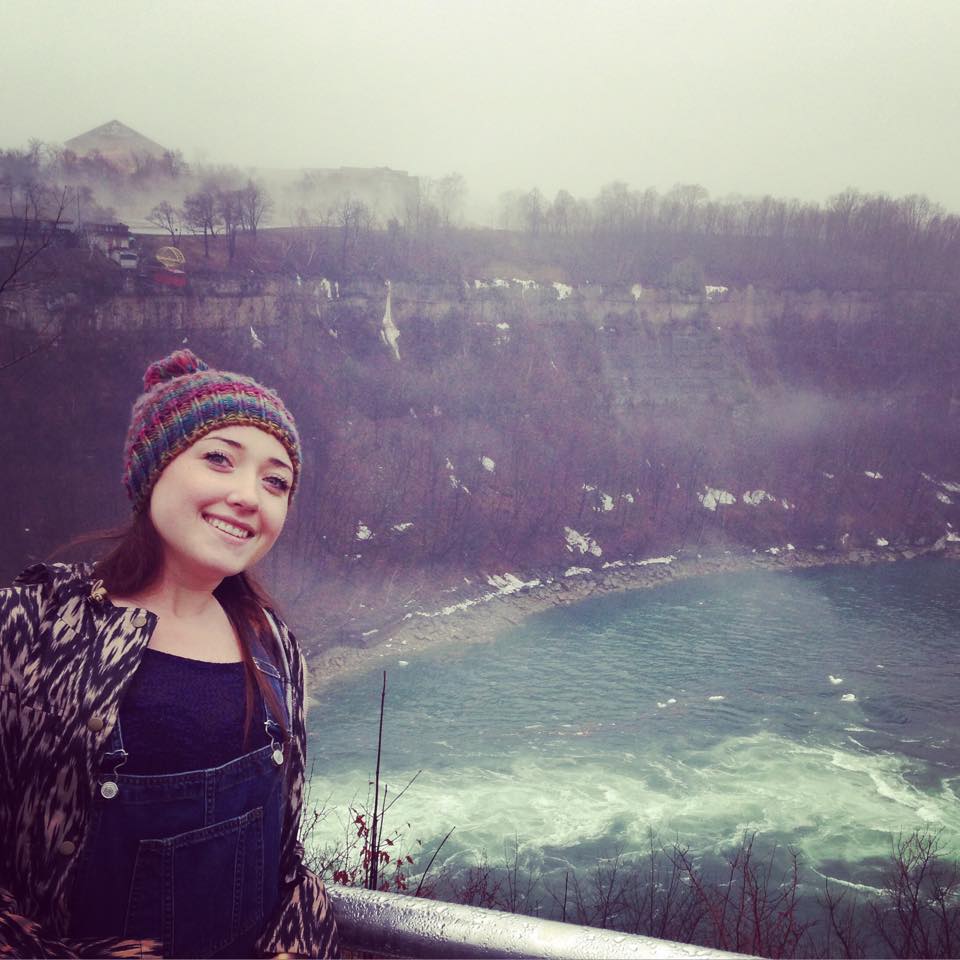 When campers first arrive at Camp Spring Creek, they might be a little shy if they don’t come along with a friend or family member. These campers need to meet Grace Stevens: she has a way of making everyone she meets feel at ease. Grace hails from Hartford, a village in the English county of Cheshire known mostly for agriculture. Last year, she graduated from the University of Central Lancaster with a degree in nursing, but she has spent some time since then seeing the world. Since last November, she’s been in Courchevel in the French Alps, but she’ll join us at Camp Spring in June. We asked Grace to tell us at little bit more about herself.
When campers first arrive at Camp Spring Creek, they might be a little shy if they don’t come along with a friend or family member. These campers need to meet Grace Stevens: she has a way of making everyone she meets feel at ease. Grace hails from Hartford, a village in the English county of Cheshire known mostly for agriculture. Last year, she graduated from the University of Central Lancaster with a degree in nursing, but she has spent some time since then seeing the world. Since last November, she’s been in Courchevel in the French Alps, but she’ll join us at Camp Spring in June. We asked Grace to tell us at little bit more about herself.
What are you most looking forward to at camp this summer?
I’m most looking forward to the hot weather, after a winter of snow! And also meeting new people and being outside exercising and learning new skills as well as having fun with all the campers
What do you want campers in your cabin to know about you?
I'm very chatty and love talking so, we will be having lots of fun discussions. I love having sing alongs, even though I'm not the best singer! I have a very approachable and caring side, which probably comes from the nursing, so you can talk to me about anything.
What do you think your camp specialty will be?
I love arts and crafts so would love to be involved in that, however, I also love any sports and would be happy with either. I also like talking , so I'm happy to have a go at anything!
Which do you like better: outdoor adventures or organized team sports?
I'm an organized team sports person at heart and have always played hockey rounders and netball, but recently I’ve gotten into hiking, so outdoor adventures sounds like fun to me!
What do you want to accomplish this summer?
This summer I want to learn new skills and sports, make new friends, complete my lifeguard training, and have an amazing summer in America with some happy campers. Anything else would be an amazing bonus!
Please join us in welcoming Grace to the Camp Spring Creek team!

Meet The Counselor: Ollie Todd
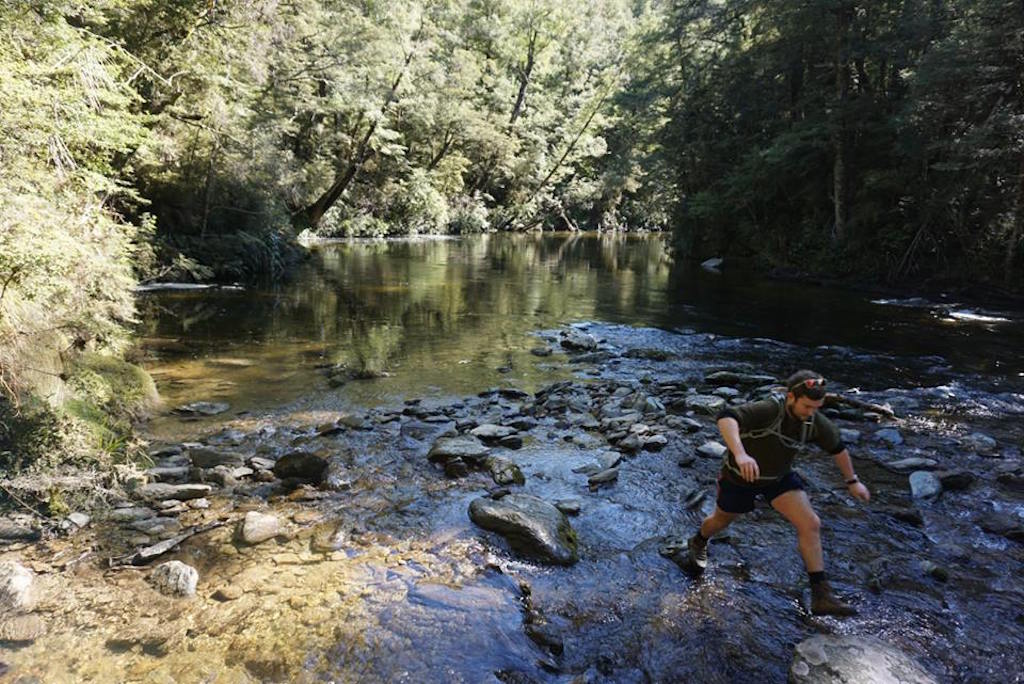 Who’s that intrepid adventurer, fording that mountain stream with ease? Why, it’s Ollie Todd, one of our first-year counselors at Camp Spring Creek. Ollie has the distinction of being the counselor who has the longest journey to make to get to Bakersville. It will take over a day to arrive from Invercargill, on the very bottom of New Zealand’s South Island. Invercargill has the distinction of being the southernmost and westernmost town in the country and one of the southernmost cities in the world. If you keep going south from there, you end up in Antarctica!
Who’s that intrepid adventurer, fording that mountain stream with ease? Why, it’s Ollie Todd, one of our first-year counselors at Camp Spring Creek. Ollie has the distinction of being the counselor who has the longest journey to make to get to Bakersville. It will take over a day to arrive from Invercargill, on the very bottom of New Zealand’s South Island. Invercargill has the distinction of being the southernmost and westernmost town in the country and one of the southernmost cities in the world. If you keep going south from there, you end up in Antarctica!
Although he’s making such an epic journey, we have a feeling he’s going to be right at home at Camp Spring Creek. We caught up with Ollie to find out a little bit more about him.
What do you do during the school year, Ollie?
I’m a substitute teacher, working with elementary school students, aged 5 to 12. This will be my first year working at a summer camp in the US.
What are you most looking forward to about camp this summer?
Meeting new friends and having lots of fun.
What are your favorite camp games?
I don’t really have a favorite, but I like anything that involves cooperation and team sports. Games played at night in the dark are always fun, too!
What can campers do to get on your good side?
Tell me a good joke. I appreciate a sense of humor.
Camp Spring Creek is known for its great food especially desserts. What’s your favorite?
A raspberry white chocolate brownie-my sister makes a great one!
By the end of the summer, what do you hope to have achieved at Camp Spring Creek?
I hope I’ll have met a lot of great new people, have had lots of fun and convinced people to come to New Zealand, the most beautiful country in the world!
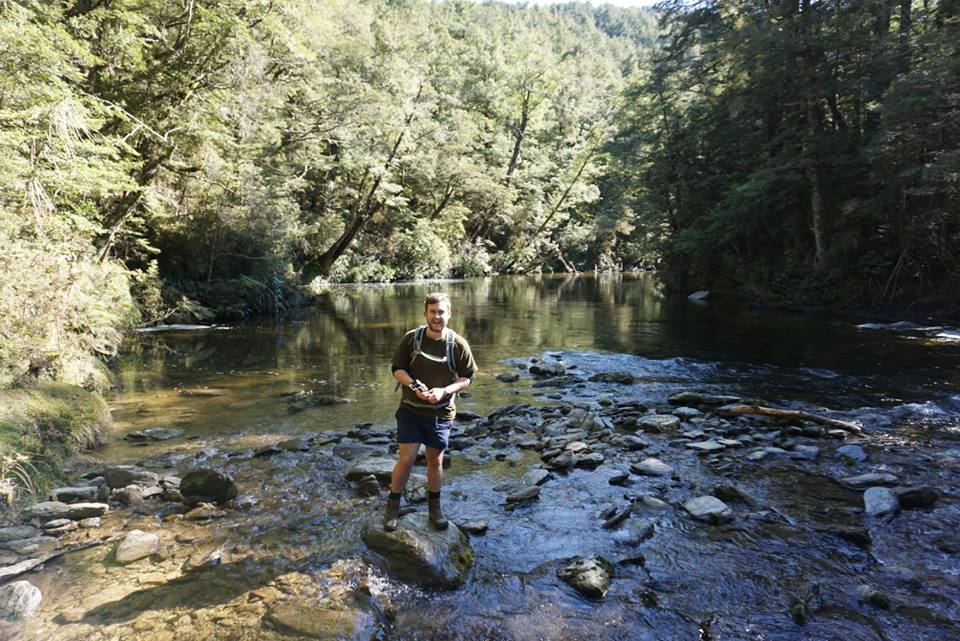
Please join us in welcoming Ollie! There are a still a few spaces left for this summer at Camp Spring Creek, one of only three dyslexia summer camps in the US. Contact us for more information!
Meet the Counselor: Iwona Kurczab
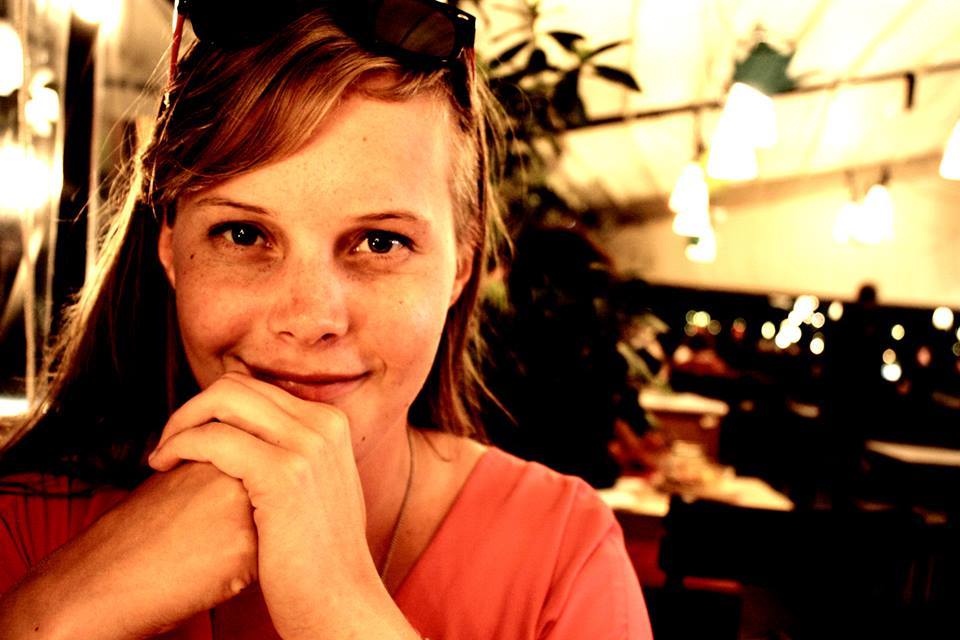 The countdown is on! We’re just a few months away from the start of camp and we’re excited about the summer of ’16.
The countdown is on! We’re just a few months away from the start of camp and we’re excited about the summer of ’16.
One of the things that make Camp Spring Creek so special is our counselors. They come from all over the world, offering our campers a chance to learn about other cultures as well as having fun and building their reading and writing skills. We caught up with one of our new counselors Iwona Kurczab to ask her a little about herself.
Where are you from, Iwona?
I’m from Limanowa, a small city in Poland, but I’m working in Kraków now.
Have you worked at Camp Spring Creek before?
This is my first year at Camp Spring Creek, but I have experience working as a counselor at a youth sport camp in Poland.
What are you most looking forward to about camp this summer?
I’m looking forward to meeting new people and learning and doing things that I’ve never done before and having fun with all people at camp. I want to enjoy every moment!
What are your favorite camp games?
I love chase games with two teams, when one of them is trying to find the first one with some instructions on the way. The game takes place outside, mostly in the forest.
What can campers do to get on your good side?
All they have to do is smile!
Camp Spring Creek is known for its great food especially desserts. What’s your favorite?
Brownie cake!
By the end of the summer, what do you hope to have achieved at Camp Spring Creek?
By the end of this summer, I hope I will be totally happy with the things that will happen to me and I will speak perfect English!
Please join us in welcoming Iwona. There are still a few spaces left at camp this summer! Contact us for more information
Camp Helps Young Man Start a New Chapter
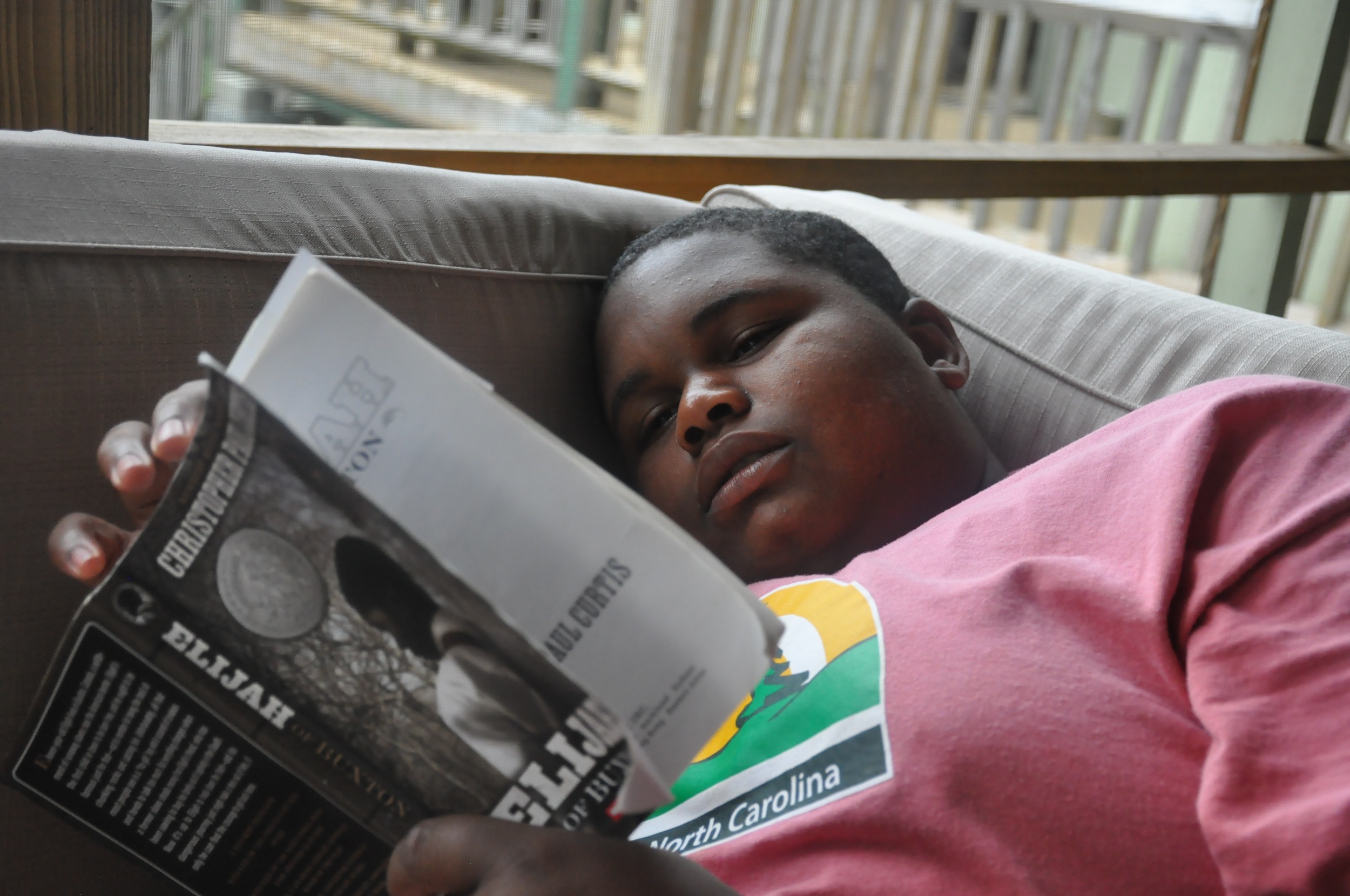 OpenDoors of Asheville is a remarkable non-profit organization that helps local children reach their potential with individual support and a host of educational and enrichment opportunities. These opportunities are designed to help the children begin to invest in themselves and ultimately break the cycle of multi-generational poverty.
OpenDoors of Asheville is a remarkable non-profit organization that helps local children reach their potential with individual support and a host of educational and enrichment opportunities. These opportunities are designed to help the children begin to invest in themselves and ultimately break the cycle of multi-generational poverty.
Since 2012 OpenDoors and Camp Spring Creek have worked as a team, co-funding several summer camp scholarships to help children get the spelling, reading and writing remediation they need. While at camp, the children are immersed in summer activities ranging from kickball to camping with other children and counselors from across the world.
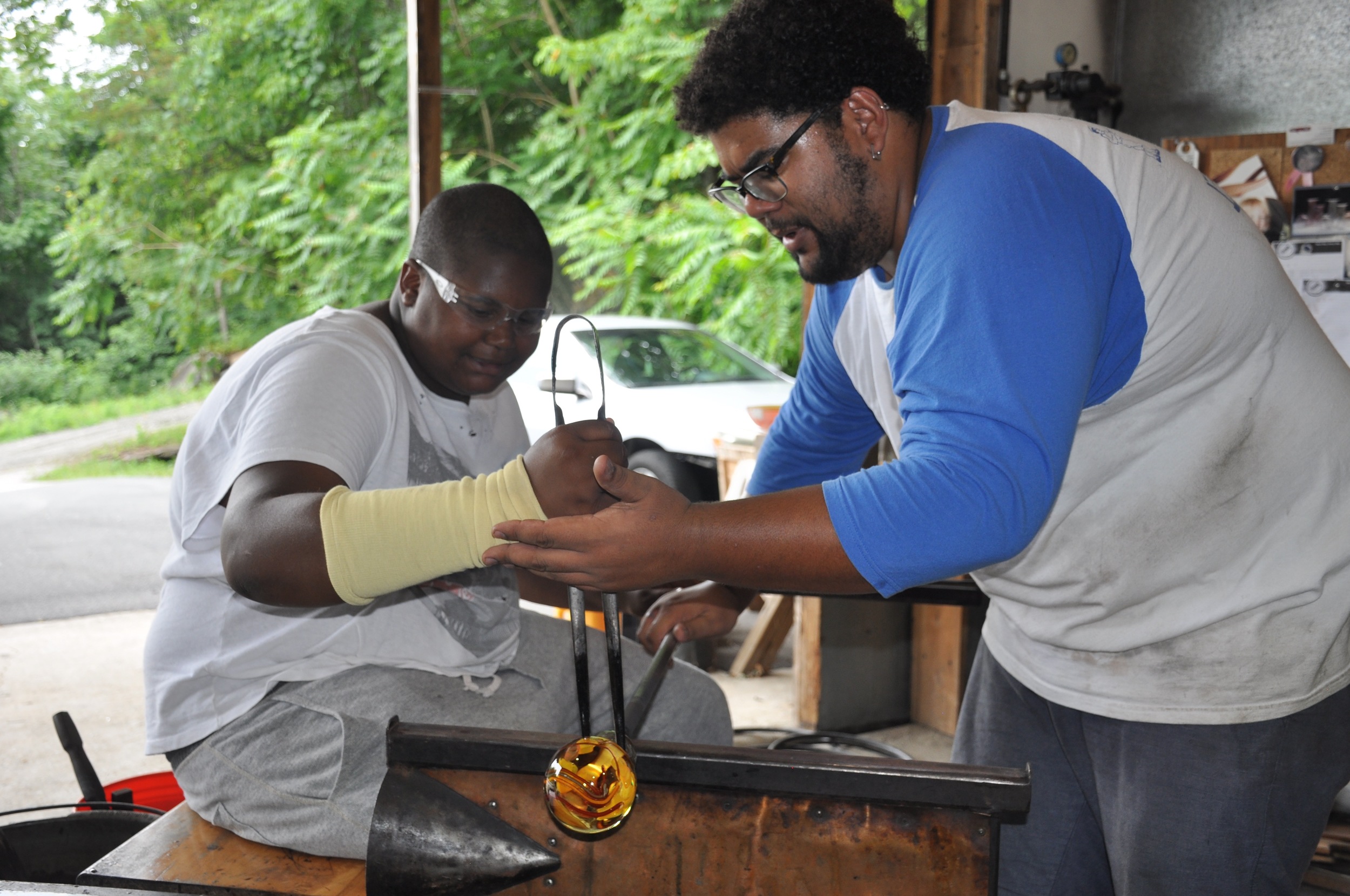 Tyion Lucas just finished his 2nd summer at Camp Spring Creek. OpenDoors Board Member and Team Leader Denise Turner remembers hearing about Tyion’s fears concerning his participation in an upcoming spelunking adventure. Initially, he insisted he wasn’t going to repel into a dark cave, let alone jump into an underground lake. After discovering one of the staff members, who was also afraid, was going to participate, he decided to open himself to the possibilities. He believes his courage paid off. In addition to this adventure, Tyion tried other new things like whitewater rafting, Asheville’s Color Run 5K and glass blowing.
Tyion Lucas just finished his 2nd summer at Camp Spring Creek. OpenDoors Board Member and Team Leader Denise Turner remembers hearing about Tyion’s fears concerning his participation in an upcoming spelunking adventure. Initially, he insisted he wasn’t going to repel into a dark cave, let alone jump into an underground lake. After discovering one of the staff members, who was also afraid, was going to participate, he decided to open himself to the possibilities. He believes his courage paid off. In addition to this adventure, Tyion tried other new things like whitewater rafting, Asheville’s Color Run 5K and glass blowing.
“Tyion learned a lot about himself during his eight weeks at camp,” Denise says. “At Camp Spring Creek, Tyion not only made academic gains, but also discovered the extent of his determination and perseverance. He learned he was strong, confident and good at working with people. This year he was chosen to help younger kids with swimming. That was a huge confidence boost for him as he was told he would be a good camp counselor someday.
Until recently, Tyion admitted he didn’t enjoy reading, believing it to be difficult. “I was so proud when he told me he read ten books over the course of the summer. What impressed me most was that in listening to him talk about these books, and listening to him share analogies gleaned from his readings, I knew he drew meaning from the content, too.”
In a letter he wrote at the end of camp, he said, “I’m like the three little pigs, but I’m the one in the brick house. No one is going to blow my house down. I’m strong and confident. I’m going to keep going and do something. I’ll be back next year. I want to be better.”
Denise and Tyion’s mother Sheila enjoys watching Tyion’s growth. “Tyion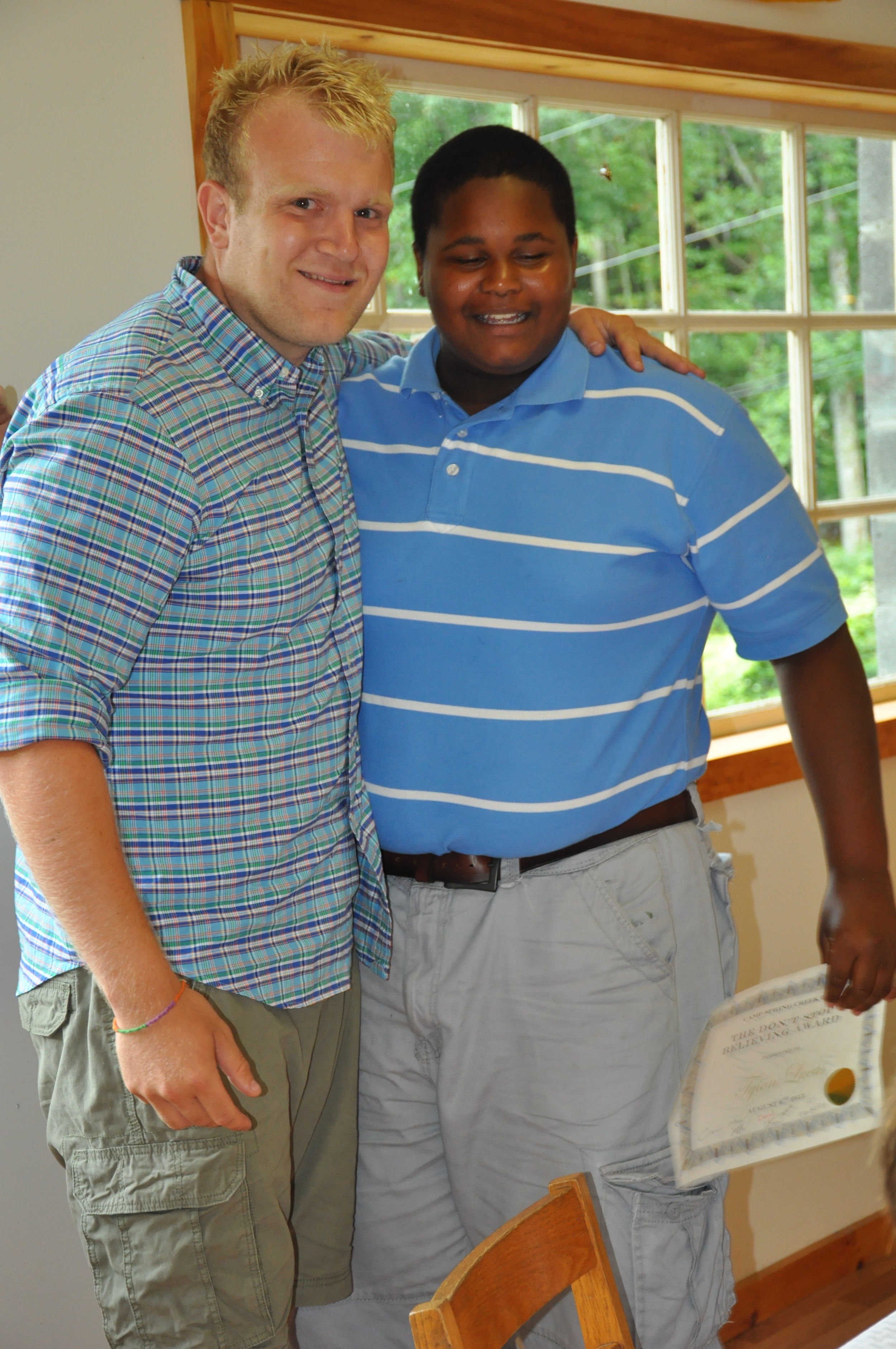 continues to make progress and his confidence is growing,” Denise says. “He’s got a great sense of humor and isn’t afraid to use it. At his school, he was asked to join the football team and is experiencing great success. A page is clearly being turned for Tyion. I can’t wait to see the next chapter.”
continues to make progress and his confidence is growing,” Denise says. “He’s got a great sense of humor and isn’t afraid to use it. At his school, he was asked to join the football team and is experiencing great success. A page is clearly being turned for Tyion. I can’t wait to see the next chapter.”
Camper Continues to Blossom Beyond Camp
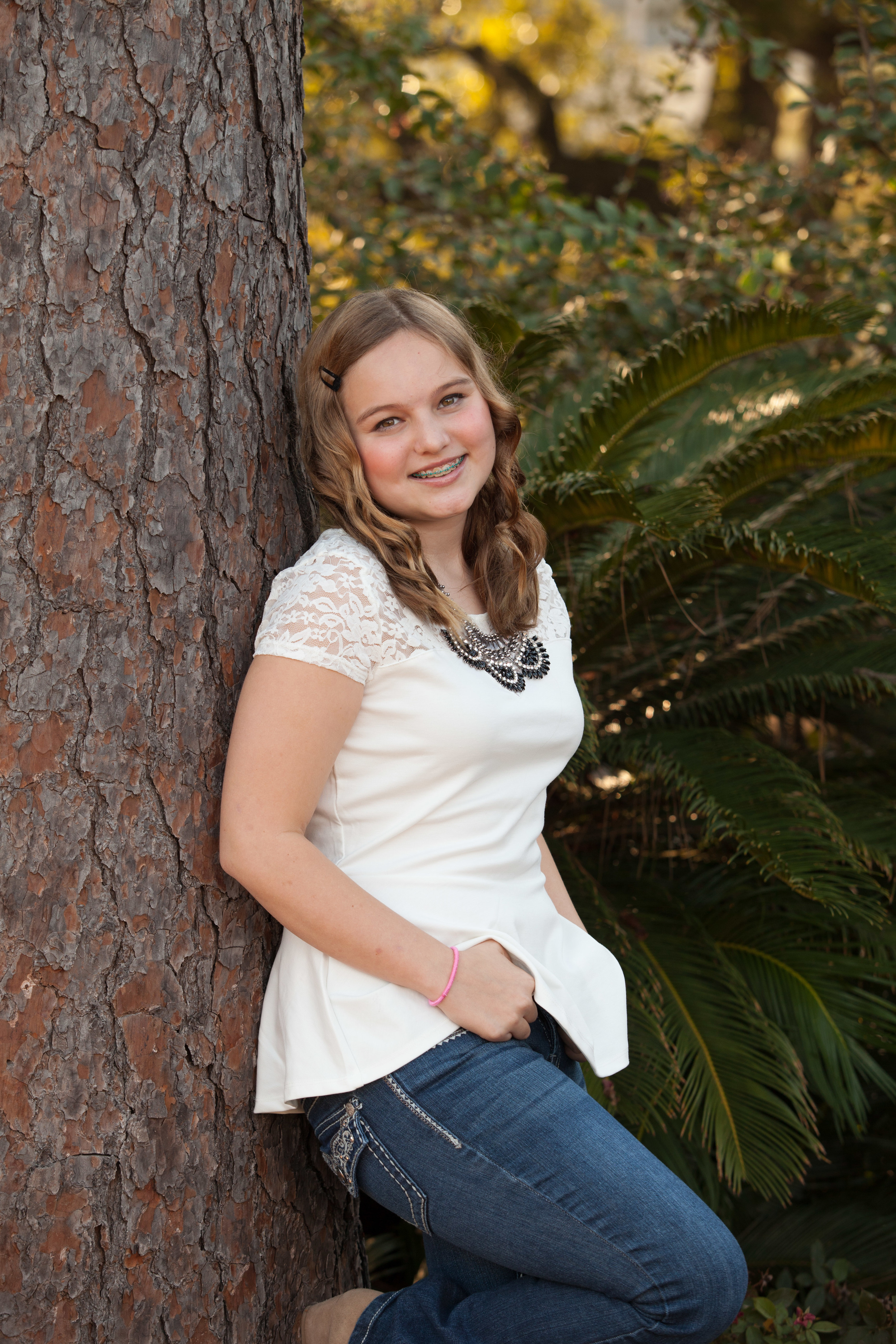 Like many parents, Laurie Clothier wasn’t quite sure what to do. Her daughter Kelby had been diagnosed with dyslexia. Laurie had secured a private tutor, but realized the tutor was only helping her keep up with her current workload; Kelby wasn’t making the progress she imagined. The bright 7th grader was reading at a first grade level.
“Dyslexia turned our family around,” Laurie says. “I worked full-time, got home, and then spent another three or four hours with Kelby, trying to help her keep up with homework. I literally read her books with her.”
Like many parents, Laurie Clothier wasn’t quite sure what to do. Her daughter Kelby had been diagnosed with dyslexia. Laurie had secured a private tutor, but realized the tutor was only helping her keep up with her current workload; Kelby wasn’t making the progress she imagined. The bright 7th grader was reading at a first grade level.
“Dyslexia turned our family around,” Laurie says. “I worked full-time, got home, and then spent another three or four hours with Kelby, trying to help her keep up with homework. I literally read her books with her.”
A Google search to find a summer program in Texas, where the family lived, was unsuccessful. Laurie widened her search, looking for programs where other family members lived. Camp Spring Creek, it turned out, was a two-hour drive from her father.
“After speaking with co-founder Susie van der Vorst, we made a leap of faith, and signed her up for the whole summer. It was scary, particularly because Kelby had never been away from home for more than a week.”
They saw huge improvements over the course of that first summer. A month slipped by, and Laurie opened Kelby’s weekly letter home. “I started crying,” she says. “It was the first letter where I could read every word, where every sentence was coherent.”
The transformation overjoys Laurie. “There was a time when Kelby lied about who she was. Camp Spring Creek helped her realize she’s not alone. This year, she has a new set of friends who accept her as she is. She realizes she’s not stupid, and in fact, has been getting straight A’s. Although she still struggles somewhat with reading, she does most of her homework on her own now. She’s gained so much more confidence.
Beyond learning to read and write in a manner that corresponds to how she sees things, Laurie has seen other gifts emerge from Kelby’s time at camp. “Kelby was so excited to learn in a traditional summer camp setting where she got to play hard, too. Thanks to some of the camp’s program’s she becoming a budding photographer.”
There are those who have wondered why Laurie has invested so much in a summer camp. Laurie is clear. “The way I look at it, I’m paying her college tuition now because without Camp Spring Creek, there’d be no way Kelby could be going to college. I was clear we needed to get her to read now. I’d pay it all again without the slightest hesitation. In fact, she’s going back to camp for one more season. She’s a completely different girl. Camp Spring Creek opened a whole new world for Kelby. I’m eternally grateful.”
"Confessions of a So-Called Middle Child" Author Shares Her Dyslexia Experiences
Ah, the joy of serendipity! A few weeks back, we posted an image on Facebook of one our campers reading,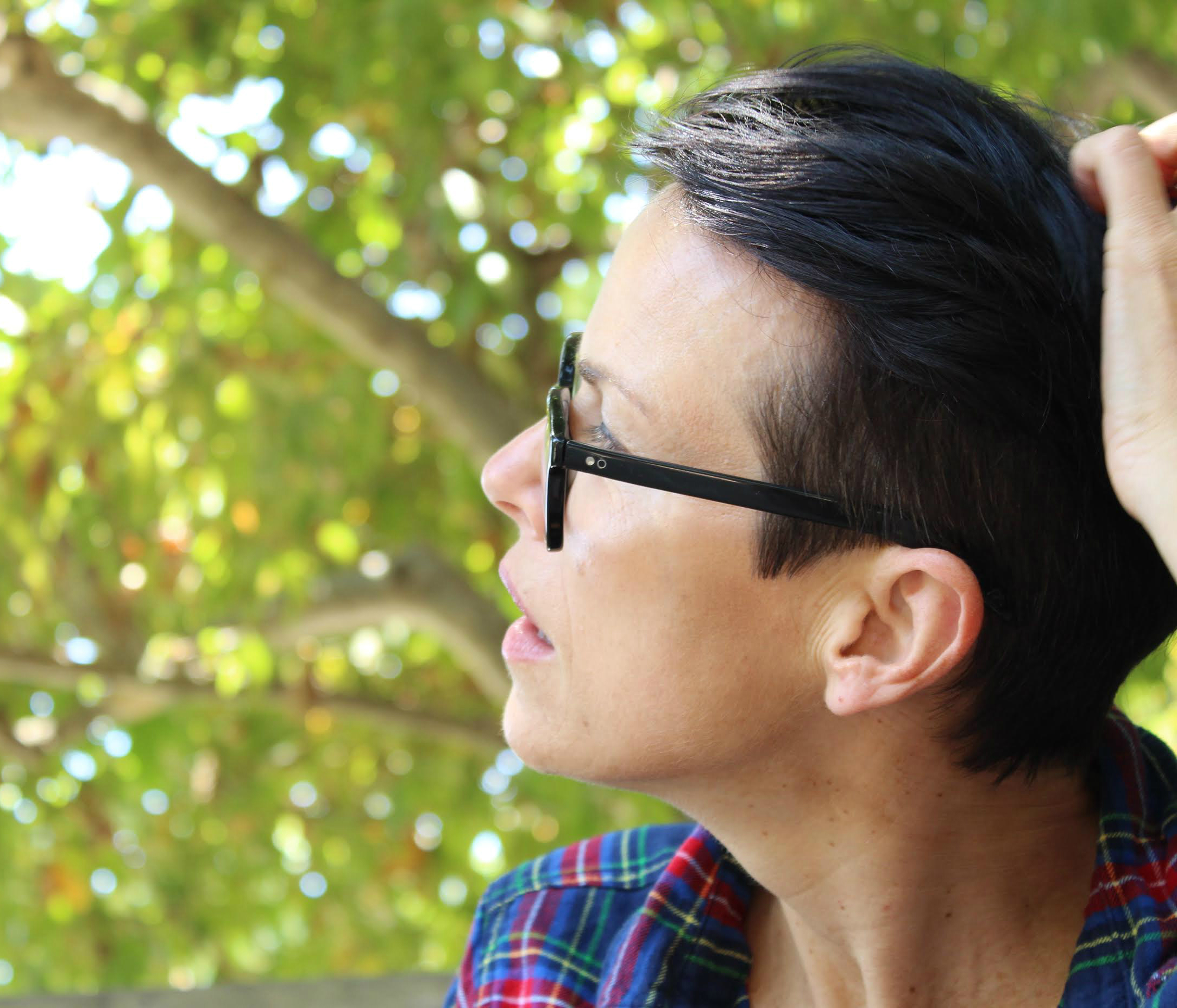 something we often do. Here's where the gift of serendipity comes in. The book Olivia was reading, Confessions of a So-Called Middle Child, was written by Maria Lennon, a friend of Tutor Susan Rutter Santaniello. Long story short, Susan shared the post with Maria, who just so happens to be dyslexic. Maria was happy to share her experiences as a child who struggled with dyslexia and as a mother of a dyslexic child.
something we often do. Here's where the gift of serendipity comes in. The book Olivia was reading, Confessions of a So-Called Middle Child, was written by Maria Lennon, a friend of Tutor Susan Rutter Santaniello. Long story short, Susan shared the post with Maria, who just so happens to be dyslexic. Maria was happy to share her experiences as a child who struggled with dyslexia and as a mother of a dyslexic child.
![Cover[1]](http://static1.squarespace.com/static/572e2bdcd51cd4708373efa6/576841a83f405861058de241/576842573f405861058e0195/1466450519813/cover1.jpg?format=original) Camp: Did you go to a private school or work with someone who helped you, or did you just struggle it out?
Camp: Did you go to a private school or work with someone who helped you, or did you just struggle it out?
Maria: At first, I struggled. This was the 70s and not too many people were really aware of what dyslexia was. I went to a private K-12 school outside of Los Angeles called Chadwick and they were not prepared for someone like me or my two brothers. We all had learning difficulties and we were all bright and well aware of what the kids were saying about us. I heard "stupid" a lot. When I grew so frustrated I broke my pencil or tore my essay into shreds, I heard, "freak." My brothers heard worse because they acted out more. Like most girls, I went inward and hated myself while my brothers tended to blast out the world.
Camp: What was the greatest challenge you faced as a child with dyslexia?
Maria: Shame. Thinking something was wrong with me. Stupid. Here's the thing. Before people know you have learning differences, and REALLY can't spell CAT, they think you're being lazy or can't be bothered to study or you don't think it's important. I know I felt that way about my son when he was in kindergarten and first grade. After an hour of going over the word group of CAT, HAT and MAT, I literally cried because he would spell HAT, HOT or HIT. Once I understood he REALLY couldn't spell it because he couldn't hear it, I was fine. I stopped being mad. I got help for him.
Camp Spring Creek: Did other kids make fun of you?
Maria: Oh, yeah. By the time I was in third grade, things were really bad. I knew with certainty that I was the dumbest kid in my entire class. It's funny, my son who is dyslexic and diagnosed with ADD also had the roughest time in third grade. I still remember the terror that spread through me when the teacher made eye contact. I would look away as fast as I could, close my eyes, and plead, "Oh God, no, please let her not call on me."
It's amazing the collateral damage of these so-called language-based learning difficulties. You don't get picked on for sports teams for some reason. You don't have tons of friends. You don't have a lot of confidence. You, in many ways, learn to stand back and become an observer of life rather than a participant.
But then something amazing happened. My teacher, my amazing teacher SAW ME. Her name was Jean Wehrmeister and she was the first person who said to me, "JUST BECAUSE YOU SEE THE WORLD DIFFERENTLY DOESN'T MEAN YOU ARE STUPID."
When the kids persisted in their calls of stupid and retard, she did an exercise in class and had everyone hold up a mirror on their paper and write what they saw. She told them this was the way dyslexics saw words and asked them to imagine how frustrating it must be. She was so ahead of her time.
Camp: What were some of the tricks you learned to help yourself?
Maria: I was extremely fortunate because my mother understood what was going on and took me and my brothers to educational therapists after school. I learned a number of tricks at the center I went to. My big area was dysgraphia so writing things from the board and onto my paper caused me great anxiety. My tutor, Jeanette Kowell, would teach me little tricks to double check my copying, like using my voice, saying things out loud so I could hear the words and remember that way as well. Looking back now, I realize that many of the so-called tricks she was teaching me really revolved around two basic concepts:
- be patient with yourself
- be kind to yourself
I believe these two very basic concepts helped me most.
Camp: Do you think you've discovered any benefits of being dyslexic?
Maria Lennon: Oh, God, yes. Everything I am most proud of about myself stems from being dyslexic. I am so determined. I am such a hard worker. I am used to putting in double the amount of time my friends put in to achieve the same results. And that's okay. I am compassionate because I know what it feels like to struggle. I am resourceful because I had to be all my life. I am an observer. I stand back and see things about people maybe others don't see. All of these qualities have made me a better person, better mother and better writer.
Camp Spring Creek: You became a writer, something that's so difficult for children with dyslexia - do you have any advice for them?
Maria Lennon: One of my favorite things is to talk to kids about how hard writing is. It's really hard. BUT, it seems like most kids with learning differences lean toward the creative. They have great ideas. They have compassion, which gives them insight into human nature. They are curious about others. That's about 90% of being a writer. The rest is getting it onto paper and that can be taught. It just may take them longer than most. But who cares when what they see is so much brighter?
Camp: Any thoughts as a parent of a child with dyslexia?
Maria: My third child has dyslexia and ADD. He repeated kindergarten. In first grade, he couldn't spell CAT and in second grade, he pretty much pulled his hoodie over his head and gave up. He was aware that he did not know the answer to anything. In his mind, he was the stupidest kid in the class and thought it was a secret he could hold onto if he could just hide in his sweatshirt. By third grade, he was hitting his head on the walls, hiding under his desk, in closets, running out of school. That's when we did the first IEP with his school. When they couldn't test for dyslexia or ADD, I called UCLA and we did outside testing.
He is now in fifth grade and this had been his best year so far. He says that doing the testing and being identified was the best that that happened to him. He learned he was not stupid and was, in fact, very smart, but saw things differently. Now he sees an educational therapist and is using the iPad for typing, which is great. The information he gets is broken down into smaller chunks. He is learning to ask for help. Kids might call him stupid, but he comes right back at them with 'I'm not stupid; I have dyslexia.' That shuts them up pretty quickly. I am so proud of him it makes me cry.
Camp: Most of us look back with nostalgia on our childhoods. Any thoughts you'd like to share?
Maria: When I published my first book in the Confessions of a So-Called Middle Child series, I got a message on Facebook. It started with 'you probably don't remember me, but I was your third grade teacher Mrs. Wehrmeister. I always knew you would do something special. I almost died. I wrote her back immediately and told her that not only did I remember her, I talked about her all the time. Every time I went to a school and talked to kids, I mentioned her name. It is the power of one person, my teacher, believing in me that made all the difference in my life.
Jean told me that she thought my next project should be for kids who struggle with reading. And guess what? That's what we're doing - an entire series of short, fun, adventure books for the kids who really have a hard time making the leap from graphic novels (think Wimpy Kid) to straight novels (think Harry Potter). Never more than 180 pages, a single plot line and lightly illustrated. I am also building an interactive reading APP to help them read it on their tablets.
Camp Spring Creek Expands: Sue Wasserman Joins Team as Communications/PR Director
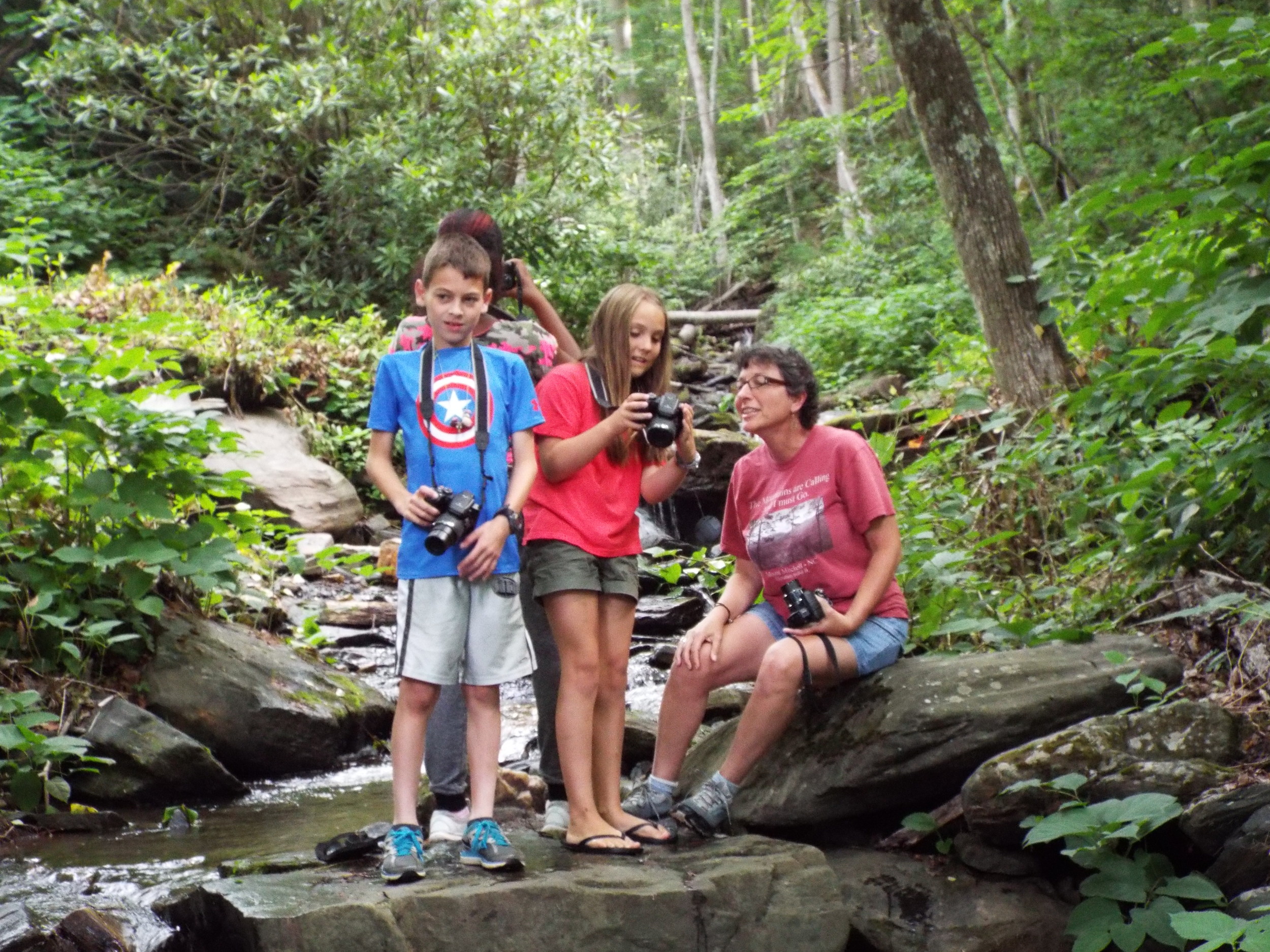 In case you're wondering who this Sue Wasserman is whose name has begun appearing on Facebook and in the blog, I'm Camp Spring Creek's new Communications/Public Relations Director. While we're sad to see Katey leave, we're excited that her writing career has reached new heights and is demanding more and more of her time. We're grateful, too, that she's helped Camp Spring Creek reach new heights.
I've actually known Susie and Steve since being a volunteer for their first camp painting party some 13 years ago, and have been in love with Camp Spring Creek's mission since before they opened the doors. I have a diverse background in advertising, public relations, corporation communications and freelance writing. I've written for publications such as The New York Times, Southern Living, Atlanta Journal Constitution, American Style, etc. Most recently, I self-published my first book, which combines my photography with a little inspiration courtesy of Mother Nature.
In case you're wondering who this Sue Wasserman is whose name has begun appearing on Facebook and in the blog, I'm Camp Spring Creek's new Communications/Public Relations Director. While we're sad to see Katey leave, we're excited that her writing career has reached new heights and is demanding more and more of her time. We're grateful, too, that she's helped Camp Spring Creek reach new heights.
I've actually known Susie and Steve since being a volunteer for their first camp painting party some 13 years ago, and have been in love with Camp Spring Creek's mission since before they opened the doors. I have a diverse background in advertising, public relations, corporation communications and freelance writing. I've written for publications such as The New York Times, Southern Living, Atlanta Journal Constitution, American Style, etc. Most recently, I self-published my first book, which combines my photography with a little inspiration courtesy of Mother Nature.
Community service is important to me - I took it upon myself in my latest corporate position to create an outreach program that involved 26 offices and more than 700 volunteers around the country.
Susie and Steve and I reconnected this past summer when they asked if I'd be interested in teaching writing for two weeks at camp. Having spent my high school and college summers as a camp counselor, I thought it would be right up my alley. I combined writing with photography, something I'm passionate about, thinking the images might help inspire the children.
Let's just say I was hooked that first morning after breakfast as I watched the counselors, tutors and campers reading together. It didn't take long for Susie to ask me to lend a hand. I knew I was where I was meant to be.
In addition to writing and editing all that needs to be written and edited, I'll be promoting our work to the community, doing research to find new grants and working to build new relationships locally and regionally to generate new funds for camper scholarships, teacher training programs, and one-on-one training with children. I'm grateful for any ideas or suggestions you may have that can help me do my part in enabling children with dyslexia to become confident adults. Simply forward your thoughts my way at suewasserman@campspringcreek.org.
Here's to the possibilities.
Week 8 Photos, 2015
(Sorry these are posted late and out of order...our beloved camp photographer Nina was packing for college!






























































































